

Tao Te Ching
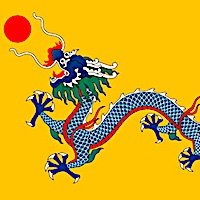
Qing dynasty flag
Qing dynasty (1644 – 1912 CE)
The 4th largest empire in world history, last Chinese imperial dynasty, and territorial base for modern China; The Qing Dynasty formed a truly multi-cultural base that lasted almost 300 years. It included included the Jurchen, Han Chinese, and Mongol melded into a newly named group called Manchus. They quickly seized power after rebels conquered Beijing and a Ming general famously opened the northern gate to them but it took almost 40 years to bring the rest of China into their territory. Governing with the Confucian system and patronizing Tibetan Buddhism, they successfully and wisely ruled for over 100 years before corruption and financial difficulties set in leading to a gradual but consistent decline. Suffering though the Opium Wars, the Taiping Rebellion, the “Boxers,” war with Japan, and finally the Xinhai Revolution; the Qing valiantly tried to deal with these crises but finally ended with the abdication of Puyi, the last emperor. During their reign though, arts and culture flourished, literacy reached unprecedented levels, porcelain—“the sculpture of the Chinese”—reached new levels of beauty, and Kangxi rebuilt cloisonné factories. Will Durant describes this artistic flourishing as “one of the noblest things that men have done to make their species forgivable on the earth.”
Sages (308)
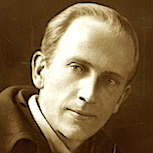
A.A. Milne (Alan Alexander Milne)
1882 – 1956 CE
Student of H. G. Wells, friend of authors J. M. Barrie and Arthur Conan Doyle, military propaganda writer during World War I and peace advocate afterwards; Milne resisted the selling out of authors for monetary gains saying he would rather write a telephone directory at his own inspiration than a Blank Verse Tragedy at others’ direction. Made famous after his death by Walt Disney productions, his Winnie the Pooh imagery - second only to Mickey Mouse - inspired $6 billion worth of products. His “children’s” books (especially Now We Are Six) open psychological doors into direct experience of nowness and appreciation of the sacred quality of simple, everyday perception.
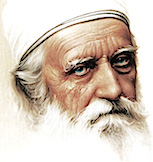
Abdu’l-Bahá' ' عبد البهاء
1844 – 1921 CE
Left in poverty and exile at 8 years old when his father, Bahá'u'lláh (founder of the Bahá'í faith), was imprisoned and all his family’s possessions looted; Abdul Baha grew up in a Palestinian prison colony and after 40 years of imprisonment at age 64 was released giving him the opportunity to more effectively spread these teachings of social service, racial and gender equality, environmental protection and a universal unification of religion, politics, science and government. He was knighted by the British government for his humanitarian work during WWI and today Bahá'í has grown to over 8 million followers, become the world’s fastest growing religion during the last 100 years, the second-most geographically widespread religion after Christianity growing at least twice as fast as the population of almost every UN region.
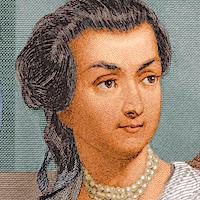
Abigail Adams
1744 – 1818 CE
One of the most exceptional women in American history
The first USA Second Lady and second First Lady, wife and advisor to president John Adams, mother of president John Quincy Adams, and one of the most exceptional women in American history; Abigail Adams became instrumental in the founding of the United States. A powerful influence for women’s rights, she emphasized the need for their education. A strong voice against slavery, she believed it was evil and a threat to democracy. Opposed to dogmatic, superstitious religious belief, she advocated for a heart-felt connection with a wisdom beyond words rather than a rote belief. Her accomplishments become more impressive when you consider the culture of her time when women’s roles were mainly domestic and educating women was considered foolish. Abigail never went to school but her self-education made her the most wise and influential in an extremely influential family.
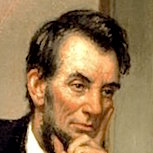
Abraham Lincoln
1809 – 1865 CE
Greatest American president, iconclast, skeptic, self-educated lawyer and congressman opposed to the Mexican–American War whose opposition to the expansion of slavery caused 7 slave states to form the Confederacy when he was elected president; Lincoln skillfully maneuvered between “War and Anti-War Democrats” who wanted to compromise with the South, “Radical Republicans” who wanted to harshly punish the South, fixated secessionists, and British interventionists. His oratory and common sense helped guide the USA through its biggest political and moral crisis while abolishing slavery, preserving the Union, and modernizing the economy. Using the army to protect escaped slaves, he closely supervised the war and planned a compassionate rebuilding of the South until his assassination.
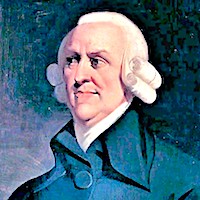
Adam Smith
1723 – 1790 CE
''The Father of Economic Capitalism"
Economic pioneer, moral philosopher, professor, and major influence on the Scottish Enlightenment; Adam Smith helped create the "cult of the free market" when he published The Wealth of Nations—one of the or the most influential books on economic theory ever written. Unlike many famous and influential books that were virtually unknown during the author's life, the Wealth of Nations went through 5 editions while Smith was still living. A close friend and advisor to David Hume, Smith also had frequent conversations with Benjamin Franklin, Gibbon, Burke, and knew Voltaire. He put his economic theories into practice converting his home town of Glasgow's business leaders to his policy of free trade. Kidnapped by gypsies when young, Smith refused the expected ordination after 6 years studying at Oxford, and turned conventional morality upside down by proclaiming being rich as the same thing as having integrity.
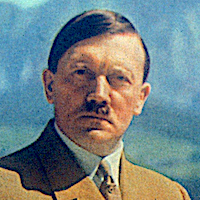
Adolf Hitler
1889
the most immoral and cruel conqueror in human history
German dictator for 12 years and instigator of both the Holocaust and World War II (the deadliest conflict in all of human history); Hitler rose to power by promoting anti-semitism, German pan-nationalism, and anti-communism. His impassioned and charismatic speeches served Nazi propaganda well hypnotizing followers into unthinking true believers. His racially motivated policies led to the killing of c. 19.3 million civilians and prisoners of war, the genocide of 6 million Jews and millions of others considered "socially undesirable." His regime is almost universally associated with the word evil, he as the most immoral and cruel conqueror in human history.

Albert Einstein
1879 – 1955 CE
Although he made his name synonymous with genius as the father of modern physics and his E = mc2 became ”the world's most famous equation,” Einstein remained humble and unassuming. Although winning a Nobel Prize and writing over 30,000 documents, he didn’t let himself be seduced by fame and fortune but championed civil rights, non-violence, and - like Chuang Tzu and other famous Taoists - refused political honors including becoming the president of Israel. He worked hard for checking the power of nation states with a democratic global government, believed in a pantheistic god, and as an avid violin player said, “I often think in music.”
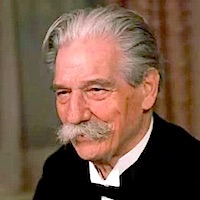
Albert Schweitzer
1875 – 1965 CE
An authentic Christian who didn't hesitate to criticize Christian extremism and hypocrisy, who genuinely practiced his faith by effective humanitarian work in Africa, and who realized a mystical and scientific union of individual and environment; Albert Schweitzer conveyed a deep reverence for all life and taught how destroying our environment is also destroys ourselves. Considered the greatest humanitarian of his day, he gave up a comfortable life as a professor and scholar to become a medical missionary in some of the world's most poverty-stricken places in Africa. After receiving the Nobel Peace Prize in 1952, he gave what many consider one of the best speeches ever given. His work against developing the atomic bomb, however, brought him under FBI/CIA scrutiny, public criticism, and the loss of financial support.
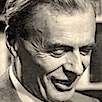
Aldous Huxley
1894 – 1963 CE
With deep insight and keen intelligence, Aldous Huxley for decades using almost every form of media to provide a penetrating commentary on contemporary civilization. Described as “the prophet of the 20th century,” he was nominated for the Nobel Prize in Literature 7 times. He brought into spotlight a vivid image of both the unconscious dark and potential brightness of our evolving technology, social, and political forms animating the dangers of consumption, conformity, technology dependence, indulgence, and pleasure-seeking as well as the potential of the perennial philosophy, finding deep meaning, understanding the sense and not just the words, experiencing the sacredness of each moment.
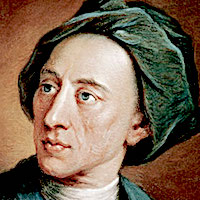
Alexander Pope
1688 – 1744 CE
Second most quoted English writer
Second most quoted English writer after Shakespeare, anonymous and profound influence on culture, compassionate commentator on humankind’s foolishness; Pope foresaw and criticized the growing materialism and consumerism of his era. His critiques were so pointed and insightful, they aroused such hatred that he was viciously slandered with lies and was forced to carry a pistol when he went for walks. From a Catholic family in England when Catholics were banned from teaching or going to a university; Pope’s aunt had to teach him to read and he was largely self-taught with help of sages like Homer, Horace, Virgil, Shakespeare, and Chaucer. Suffering ill health from an early age, he had a kind of tuberculosis from age 12 that turned him into a severe hunchback and limited his height unto only 4 feet, 6 inches. Transmuting his difficulties into art, he completed impressive translations, critical essays, and poems that created new forms as well as inspiring both people of his times and ours.
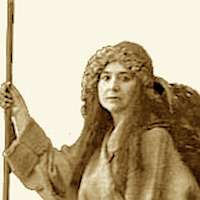
Alexandra David-Néel
1868 – 1969 CE
Author of over 30 books on Eastern religion, explorer, opera singer, and anarchist; Alexandra David-Néel became an important influence on the beat writers like Jack Kerouac and Allen Ginsberg as well as Eastern philosophy popularizers like Alan Watts. Only daughter of an exiled French political activist, she became serious about esoteric spiritual practices at an early age and by 15 was practicing austerities, fasting, and following the practices of ascetic saints. When 21, she became a Buddhist. A fearless explorer, she disguised herself as a beggar/monk, smeared her face with soot, and visited the highly forbidden city of Lhasa in 1924. Like Marco Polo, upon her return she became famous but unbelieved.
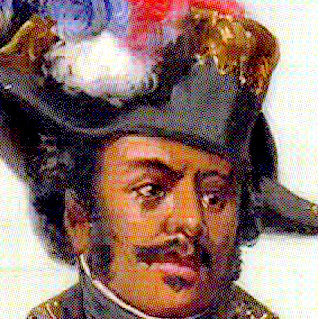
Alexandre Dumas
1762 – 1806 CE
The first black to become a French general, the highest-ranking one ever in a European army, and until 1975 the highest ranking one in all the Western world; Alexandre Dumas’ mother was a slave, his father a nobleman who sold him but then bought him back and provided an exceptional education. Dumas became a pivotal leader during France’s Revolution Wars, greatly respected by Napoleon Bonaparte, but known by his enemies as the ”Black Devil.” His grandson, also named Alexandre Dumas used him as an inspiration for his most famous characters and became one of France's most popular writers of all time. Sarah Bernhardt promoted his memory and symbolism of breaking shackles.
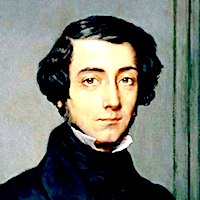
Alexis de Tocqueville
1805 – 1859 CE
Pioneering researcher into the conflicts between freedom and equality
French diplomat, historian, political scientist, and one of the founding theorists of sociology; de Tocqueville analyzed social conditions, living standards and the relationship of the individual to the state. Active in politics and strong proponent of political freedom, he traveled through the United States in an effort that produced one of the most influential books of the time—Democracy in America—as well as helping Europe transition from an aristocratic to a more democratic political order. Although the rallying cry of the revolutions he supported was “Freedom and Equality”, he described the conflict between the two and the need for balance. Pointing out the potential of a tyranny of the minority, the dangers of individualism, materialism, and majority rule leading to mediocrity; he predicted many of the social issues we grapple with today.
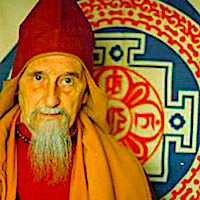
Anagarika (Lama) Govinda (Ernst Hoffmann)
1898 – 1985 CE
Pioneer of Tibetan Buddhism to the West
Poet, painter, and brave explorer of both our internal and external worlds; Lama Govinda—when only 16 years old—discovered Buddhism through the writings of Schoepenhauer. This led to a lifetime of traveling, discovering, practicing, and teaching Buddhism, and in particular, Tibetan Buddhism. An early Western initiate into Tibetan Buddhism, he traveled there in 1932 and became ordained in 1933. His writings and teachings became seminal for Tibetan Buddhism's entry into the west. Robert Thurman described him as, "one of the West's greatest minds of the 20th century. He believed he was a reincarnation of Novalis and died laughing.

Anais Nin
1903 – 1977 CE
A writer since 11 years old and after sharing a bohemian lifestyle with Henry Miller in Paris while she was married to her first husband; she married her second husband while still married to the first. A radical feminist long before it became popular, her renown grew quickly during the 1960’s feminist movement. With a “degree in erotic lore,” she was the first well-known woman in the West to write erotica and is widely considered the best at it although she began writing it as a joke without intention to print. Close friend and in some cases lover to many of the main literary figures of her day including Henry Miller, John Steinbeck, and, Gore Vidal; Nin bravely looked deeper than the thin shell of politically correct, respectability, and status quo.
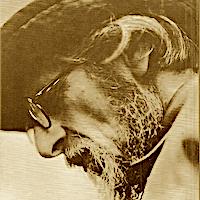
Ananda Coomaraswamy குமாரசுவாமி
1877 – 1947 CE
Perennial philosophy's Citizen of the World
Pioneering Tamil historian and philosopher, prolific author, geologist, metaphysician, and early translator of Indian culture into western terms; Coomaraswamy worked with Rabindranath Tagore, helped with the Indian struggle for independence, and provided an influential and cross-cultural view on becoming citizens of the world. Continually fighting against all forms of racism, he had to leave England because of encouraging Indians to not fight during World War I. Highly critical of Carl Jung and Theosophy for over-simplifying Eastern and indigenous traditions, he became a bridge between East and West, coined the term "post-industrial" and helped define and promote the idea of a perennial philosophy.
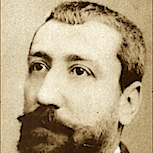
Anatole France (Jacques Anatole Thibault)
1844 – 1924 CE
Son of a bookseller and true bibliophile, librarian for the French Senate, and modern lineage holder of Epicurean thought; Anatole France was venomously attacked by Nazi collaborators but defended and admired by George Orwell. His entire set of writings were banned and prohibited by the Roman Catholic Church but in 1921 awarded the Nobel Prize in Literature "in recognition of his brilliant literary achievements, characterized as they are by a nobility of style, a profound human sympathy, and grace.” Journalist, poet, social commentator, historian, playwright, and famous novelist; he became the model for a narrator in Proust's In Search of Lost Time.
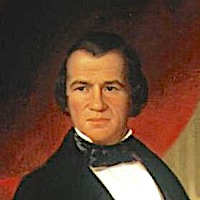
Andrew Johnson
1808 – 1875 CE
The first impeached and one of the most egregious of the white supremacist US presidents
First US president impeached in trials that became the country's biggest entertainment focus with color-coded, prized tickets going to the likes of Walt Whitman and Anthony Trollope; Andrew Johnson—who never attended school—openly embraced white supremacy, defied Congress and the Constitution, tried to assume king-like powers, turned the attorney general into his spin doctor, and obstructed justice in every direction. Claiming the US as a "country for white men," he vetoed the Civil Rights bill, gave amnesty to more than 7000 Confederate war criminals, and yelled speeches advocating for the execution of his political opponents, and helped create much of the South's post-war problems.
Born in poverty and uneducated, he attempted to reestablish slavery with a different name by encouraging laws like the "black codes," laws that made it illegal for former slaves to rent or buy land, and stealing land given to former slaves which was then given to the former plantation owners.
After Mark Twain called Congress "damned cowards" for not impeaching him, the House voted 126 to 47 for impeachment but it failed in the Senate by one vote, the vote of Edmund Ross who was believed to have been bribed but became one of Kennedy's "Profiles in Courage."
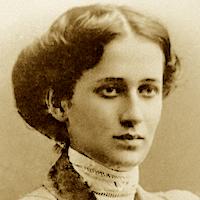
Anna Akhmatova Анна Ахматова (Andreyevna Gorenko)
1889 – 1966 CE
Russia's most loved female poet
One of the most famous Russian poets, strikingly original and courageous critic, powerful and legendary Russian heroine; Anna Akhmatova's chose to remain in her country rather emigrate when her work was condemned by Stalinist censors, her first husband was killed by Soviet secret police, and her son and common-law husband were thrown into the Gulag. During this time her poetry was circulated on scraps of paper that were read once and then immediately burned.
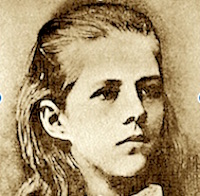
Anna Grigoryevna Dostoyevskaya ригорьевна Достоевская
1846 – 1918 CE
The woman behind the man and clear example of “better half,” Dostoyevskaya started helping Dostoyevsky as a 19-year old secretary when he was 44 and soon became not only his devoted and energetic wife; but also, his very capable business partner who helped him through extreme poverty, illness, and gambling addiction that at one point lost not all their money but her clothing as well. Not remembered very well by history but essential to Dostoyevsky’s success, she took charge of all their financial issues, publishing and business affairs, made him Russia’s first self-publish author liberating him from a lifetime of poverty and debt. To disprove one of his disparaging remarks about women, she became one of the first female Russian philatelists and worked on her collection for over 50 years while she wrote two biographies; saved his manuscripts, letters, and photographs; and set up a display of them in a State Historical Museum.
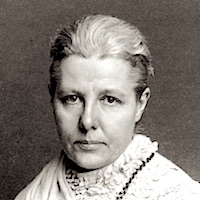
Annie Besant
1847 – 1933 CE
Leader of the theosophy movement after Helena Blavatsky died, political and women’s rights activist, persuasive speaker giving up to 60 public lectures a year; Annie Besant had a direct and deep influence on major 20th century political and religious changes. Friend and supporter of George Bernard Shaw and his socialist agenda, she championed causes from birth control to workers’ rights. She campaigned for Indian independence, became president of the Indian National Congress, and supported her friends Mohandas K. Gandhi and Jawaharlal Nehru. Discoverer, step-mother, and promoter of Jiddu Krishnamurti; she began by educating him into the theosophist role of "World Teacher,” remained close even after he rejected this direction, and attempted following his teachings of rejecting the superstitious and spiritually materialistic aspects of theosophy.
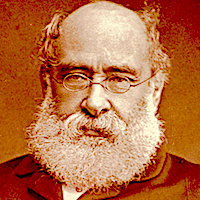
Anthony Trollope
1815 – 1882 CE
Novelist as teacher
Victorian novelist, political aspirant, writer of 47 novels and many short stories; Trollope focused his popular stories on everyday, householder events—situations average people could identify with and learn from. He understood and vividly described the role of money and materialism in the daily business of common people, officials, and institutions. They examined the time’s social, political, and cultural issues like the unfortunate role of women in Victorian society. His influence spread through his fans—people like Prime Ministers Harold Macmillan, Sir John Major, and John A. Macdonald; John Kenneth Galbraith, W. H. Auden, George Elliot, Sue Grafton, Edward Fitzgerald, and David Mamet. Alec Guinness liked his books so much, he never traveled without one and Siegmund Warburg said "reading Anthony Trollope surpasses a university education.”

Antoine de Saint-Exupéry
1900 – 1944 CE
French war hero, famous writer, poet, journalist, pioneering aviator, and an international inspiration for social aid and humanitarian projects; Antoine has the unique distinction of having his books banned by both Nazi occupied France as well as de Gaulle’s “Free” France. Modern France though voted The Little Prince the best book of the 20th century and holds him in such high esteem that his image and several of his drawings were printed on paper money, coins, and the stamps of more than 25 countries. Translated into more than 250 languages and full of deep but simple wisdom, The Little Prince is the 4th most-translated and one of the best selling books of all time.
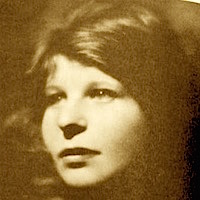
Ariel Durant (Chaya Kaufman)
1898 – 1981 CE
Brilliant conversationalist, champion of women’s rights, student, lover, wife, muse, and equal to Will Durant; Ariel emigrated with her mother to America from the Ukraine when 3 and grew up on the New York streets learning to fight and take care of herself. Will married her when she was 15 and he was 28 and her teacher. They spent the next 68 years together on an intellectual, contemplative, and literary journey writing The Story of Civilization and many other books and articles. Named "Woman of the Year,” she shared a Pulitzer Prize and the Presidential Medal of Freedom with her husband. Constantly introducing him to radical artists, poets, and free-spirits from Greenwich Village to Woodstock, she balanced Will’s pedantic, scholastic personality with love-of-life adventurism. Although running away several times during the early days of their marriage, they came to represent the depths of close relationship, the joining of the two halves of the complete being described by Plato, and the possibilities for marriage.
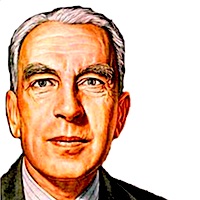
Arnold Toynbee
1889 – 1975 CE
Philosopher of history, international affairs expert, research professor, and prolific author; Toynbee was the the world’s most translated, read, and discussed scholar for much of the 20th century. He wrote hundreds of books and articles translated into more than 30 languages. Applying his insights from studying history to modern political problems, he became a delegate to the 1919 Paris Peace Conference, worked in the British Foreign Intelligence Office, and held a long-term position at the London School of Economics. His historical studies led to persuasive theories about how civilizations arise as a response to extreme challenges by "creative minorities" and how these solutions change the course of cultural evolution. Believing that civilizations most often die from suicide rather than invasion or natural causes, he describes the process of how civil-success leads the people and leaders to a kind of complacency full of nationalism, militarism, and oppressive tyranny.
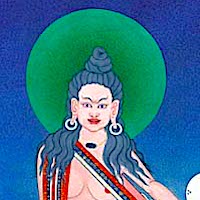
Aro Lingma, Khyungchen
1886 – 1923 CE
Profound female lineage exemplar
Terton discoverer of spiritual treasures, manifestation Yeshé Tsogyel, Nyingma lineage holder, and inheritor of the Mother Essence Lineage; Aro Lingma grew up wandering around the caves where her parents meditated in retreat. Trained from the earliest age in the most advanced Vajrayana practices like Tumo and Yantra Yoga, she wandered alone for days and described profound meditation experiences when she returned. When she was 16, her parents died and she began her life as a wandering yogini. She avoided “religious” people as much as possible often pretending that she was dumb so she wouldn’t have to talk with them. Quickly attracting numerous disciples, she continued and advanced this female lineage.
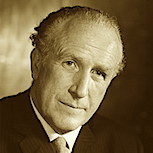
Arthur Desmond
1859 – 1929 CE
Arthur Desmond (c. 1859 – 1929), aka Arthur Uing, Ragnar Redbeard, Richard Thurland, Desmond Dilg, Gavin Gowrie
Bank-bashing heroic reformer, “The Poet of Revolution,” author, and politician; Desmond started a political organization dedicated to “emancipation from poverty, competitive commercialism, industrial wage slavery, tyrannical authority, and mental bondage." Like Machiavelli and his satirical book The Prince, Desmond was slandered by the rich and powerful plutocrats of his time as an immoral, satanic figure, advocating Social Darwinism, racism, and fascism. His book, Might Is Right, however, was called by fellow labor movement collaborators, “one of the greatest books ever written." He promoted land reform, the nationalization of large estates and banks, single taxation and called bank directors "scoundrels", large estate owners "blood-sucking leeches" and the local press as "hirelings of monopoly.”

Arthur Schopenhauer
1788 – 1860 CE
Though mainly unnoticed during his life, after he died Schopenhauer’s work had a huge impact on psychology, literature, art, philosophy, music and science. He was one of the first Western thinkers to affirm major aspects of Eastern philosophy. He called himself a Buddhist and compared his philosophy to basic Buddhist teachings. Einstein extolled Schopenhauer’s life-long influence and he was also respected and emulated by people like Nietzsche, Tolstoy, Freud, Jung, Joseph Campbell and Thomas Mann. His influence continues today into fields like modern evolutionary psychology.
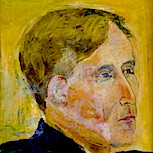
Arthur Waley
1899 – 1969 CE
East to West ambassador, remarkable Chinese and Japanese translator called a "great transmitter of the high literary cultures of China and Japan,” sinologist, and poet in his own right; Waley’s poetic translations based on understanding not just the words but the sense as well, pioneered a new understanding and appreciation of oriental philosophy in the west. His Tao Te Ching translation, The Way and Its Power is one of the best older version translations with clear and insightful commentaries.
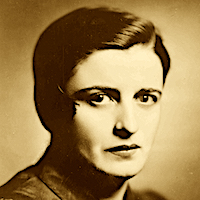
Ayn Rand (Alisa Zinovyevna Rosenbaum)
1905 – 1982 CE
, (1905–)
Tea-Party saint
American conservative, libertarian, and Tea-Party saint; Ayn Rand ridiculed altruism, praised selfishness, and promoted personal and national egoism. She championed laissez-faire capitalism and helped firmly establish a philosophical foundation for raising the 1% richest to unimaginable heights of prosperity, decadence, and materialism. Her book Atlas Shrugged—which became a conservative Bible—described the most rich, wealthy, and powerful ("the 1%") as victims of welfare-surviving children and social programs like social security, unemployment insurance, and medicare.
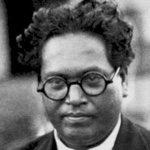
B.R. Ambedkar (Babasaheb)
1891 – 1956 CE
While Gandhi unjustly holds international fame and respect; Ambedkar remains almost unknown outside India. Unlike Gandhi who supported the caste system and held deeply racist and anti-feminine views, Ambedkar campaigned for the Dalts (Untouchables), the rights of women, and labor. Independent India's first law minister, main writer of the first Constitution, and considered by many a true Bodhisattva, he criticized Hinduism as being the foundation of the caste system and began a Buddhist revival. When he formally became a Buddhist in 1956, 500,000 at once followed in his footsteps. In 2012 almost 20 million people voted him the “Greatest Indian.”
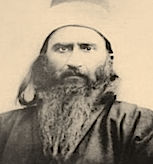
Bahá'u'lláh بهاء الله, ("Glory of God")
1817 – 1892 CE
Founder of the Bahá'í Faith, persecuted, tortured, exiled and imprisoned for 40 years, considered a manifestation like Moses, the Buddha, Jesus and Muhammad; Bahá'u'lláh continued and expanded a tradition that had broken from Islam and started a new religion based on a Shambhala-like myth of a hidden good rising up in the future to overcome corruption and evil to establish a great golden age. He taught the unity of all mankind, all genuine religions, the equality of men and women, the compatibility of science and religion and that it is time now to create a global society with universal education, a bill of rights, respect for diversity, a democratically elected world government and collective security based on justice and equality with a world police force, language and currency.

Balthasar Gracian
1601 – 1658 CE
Spanish Jesuit, philosopher and prolific writer, Gracian amplified the slogan/quote tradition of Aesop, Yang Xiung, the Dhammapada, Atisa and continued by Erasmus and Ben Franklin. At times highly respected, he was also exiled by outraged superiors for his provocative philosophy and lost his teaching tenure. An important influence on Nietzsche, Voltaire, Schopenhauer and Winston Churchill; his book Art of Worldly Wisdom - translated into many languages – continues today as a best seller and exceptionally valuable resource of helpful advice.
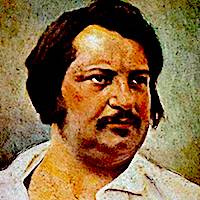
Balzac (Honoré de Balzac)
1799 – 1850 CE
(–1850)
Novelist, playwright, journalist, founding influence on European realism; Balzac only lived 51 years but wrote 92 novels, many short stories and plays. Famous for his 2000+ morally ambiguous and multi-faceted characters, he called himself a “Secretary of Society” and thought of his novels as a kind of history. He pioneered and made popular both the “novel of ideas” and the multi-generational, sequencing novel that carried characters from one story and period of their life to another. A dramatic failure in most of his life, he ran for a political office but only received 20 votes while just one of the other candidates had almost 160,000. No matter how much money he made, he was never self-supporting because of an insatiable appetite for luxuries and he had to frequently change homes and names to hide from creditors. Multiple business ventures failed miserably but his money-making optimism didn’t fade. His influence extended to luminaries like Émile Zola, Charles Dickens, Jack Kerouac, Henry James, Akira Kurosawa and Friedrich Engels among many more.
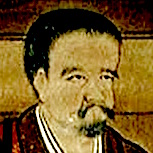
Bankei 盤珪永琢 (Bankei Yōtaku)
1622 – 1693 CE
Along with Dogen and Hakuin, one of the most influential Japanese Zen masters, Bankei developed a teaching he called “Unborn Zen” - a refinement D. T. Suzuki called “one of the most original developments in the entire history of Zen thought.” As a student, Bankei traveled widely, studied Confucian texts, practiced
Shin Buddhism, studied with many famous scholars, became a monk, but remained unsatisfied. Seriously ill and with a fatal prognosis, a near-death experience led to his enlightenment and return to health. Refusing a senior position in his monastery, he instead worked in the kitchen and then moved to the mountains living as a hermit and developing his teaching of seeing into the true nature of existence.
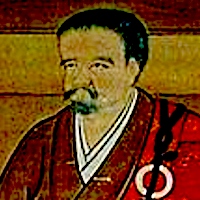
Bankei Yōtaku 盤珪永琢
1622 – 1693 CE
Zen Master of the unborn
Along with Dogen and Hakuin, one of the most influential Zen masters, Bankei developed a description of realization he called "Unborn Zen." D. T. Suzuki thought this one one of the most important and original descriptions in all the history of Zen. A rebellious child always getting into trouble, his early studies with Confucian and Buddhist scholars led to frustration for both Bankei and his teachers, to him getting expelled from his family home and having to live in a neighbor's tiny hut. He practiced so long and so hard that his health deteriorated to an extent causing his doctor to predict an imminent death. Healed by his realization however, he lived another 48 years. Refusing a high status position in his monastery, he worked in the kitchen and later lived alone in the mountains.

Baruch Spinoza
1632 – 1677 CE
One of the most important, radical, and influential philosophers in the modern era, Spinoza established a strong foundation for democratic political thought, the 18th-century Enlightenment, and a view beyond sectarian religion. Known as ”the prince of philosophers” and one of our greatest thinkers, Spinoza was born Jewish but was excommunicated at an early age. Criticized and ridiculed during his life, he was an important inspiration for Karl Marx, Nietzsche, Goethe, Santayana, Borges, and the deep ecology movement. Albert Einstein said Spinoza was the biggest influence on his world view and Will Durant called him his "favorite philosopher."

Benjamin Franklin
1706 – 1790 CE
Beginning his adult life as a penniless runaway, Franklin became one of the world’s most admired people. He was a founding father, diplomat, scientist, philosopher, businessman, inventor, and the politician most responsible for winning the Revolutionary War. His inventions included the lightning rod, bifocals, the Franklin stove, and he helped start many new civic organizations including voluntary fire departments and paid police forces. He recreated the slogan/quote tradition of Aesop and Atisa that we continue in our “Comments” link.

Benjamin Lay
1682 – 1759 CE
Benjamin Lay (1682 - 1759)
Physical dwarf but moral giant, “the world’s first revolutionary abolitionist,” inspiration for generations, wild, confrontational, and uncompromising opponent of slavery; Benjamin Lay wrote over 200 polemics against slavery, sweatshops, over-consumptions, capital punishment, the prison system, decadent rich elites, and for vegetarianism, animal rights and sustainability. Living a lifestyle of almost complete self-sustenance, he grew his his own food, made his own clothes, lived in a cave eating only fruits and vegetables, and wouldn’t use anything that came from the killing of animals. Unconstrained even when abandoned by his fellow Quakers (who later commonly kept pictures of him in their homes), he became the prototype of a class and race-conscious, environmental ultra radical and pioneered ways of protesting still used today.

Bertrand Russell
1872 – 1970 CE
“20th century Voltaire”
Bertrand Russell (1872 - 1970)
Nobel laureate for championing “humanitarian ideals and freedom of thought,” famous logician, polymath, historian, writer, and social critic; Russell promoted a world government and a "scientific society.” From one of the UK’s most prominent aristocratic families, he dedicated his life to political and social activism trying to abolish war, poverty, prejudice, and imperialism. A prominent anti-war activist, he went to prison during World War I. In his early 70’s he recreated himself; continued a strong, active and relevant life being arrested and jailed for 7 days because of an anti-nuke protest when he was 89; and persevered using his considerable political influence up until days before he died at 97. A major influence on the development of computer science and artificial intelligence, he worked for nuclear disarmament, gay rights, and world peace.
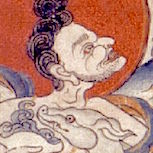
Bhikṣanapa བྷི་ཀྵ་ན་པ། ("Siddha Two-Teeth")
940 CE –
Mahasiddha #61
Bhikshanapa བྷི་ཀྵ་ན་པ། “Siddha Two-Teeth” (10th century CE)
Low caste and very poor, Bhikshanapa unexpectedly inherited some wealth. Like most people today winning a lottery or inheriting unaccustomed riches, he quickly lost it all along with his fair-weather friends. This led to a period of intense self-loathing and depression but also an openness to meeting and hearing a teacher and new way of experiencing the world. Seeing through his consumerism andspiritual materialism, he metaphorically (and possibly physically too), lost all but two of his teeth which became symbols for the balance and harmony of wisdom and skillful means. Resuming his external life style of roaming from village to village, he transformed from a miserable, needy beggar only thinking about himself into a wonderful teacher constantly dedicated to helping others. Mahasiddha #61
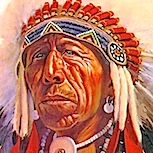
Black Elk (Heȟáka Sápa)
1863 – 1950 CE
Holy Sioux Medicine Man, Heyoka (sacred clown), wounded warrior, seer of wisdom-visions; Black Elk was spiritual but pragmatic - he became Catholic because “My children had to live in this world,” but later told his daughter, “The only thing I really believe is the pipe religion.” He went to England with Buffalo Bill's Wild West show in 1887, got lost, and traveled through Germany, France, and Italy where he saw that “The Holy Land is everywhere,” and returned with insight that inspired both the American Indian Movement and some of the best elements within European-American culture: civil rights, organic farming, renewable energy, sustainable living, and the environmental movement.
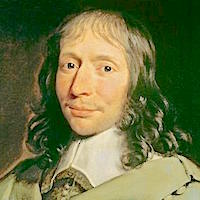
Blaise Pascal
1623 – 1662 CE
One of the greatest French writers of all time
Theologian, inventor, physicist, philosopher; Pascal invented the mechanical calculator, set up the first bus line moving passengers, became one of the greatest French writers, and developed probability theory which has become critical to economics, actuarial science, and the way we understand decision-making and risk. Although he identified with Jansenism which emphasized original sin and human depravity and frequently fixated on religious dogma, his understanding extended to a deep realization of our strong propensity toward projection and self-deception as well as a philosophy of cutting through this kind of deceit and duplicity. His significant scientific contributions led to attaching his name to a programming language, a unit of pressure, and a hydrostatic law. Will Durant called one of his writings, "the most eloquent book in French prose.”
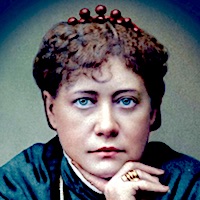
Blavatsky, Helena Еле́на Петро́вна Блава́тская
1831 – 1891 CE
Co-founder of Theosophy
Mystic, medium, philosopher, co-founder of Theosophy; Blavatsky traveled widely and claimed to meet many “Masters of the Ancient Wisdom.” She studied and practiced in Tibetan monasteries, became one of the first Westerners to ever become a Buddhist, worked closely with Hindu reform movements, and criticized the spiritual materialism of the spiritualist traditions she became linked with. She worked hard to bridge religion to and with philosophy and science but the scientific community characterized her as “one of the most accomplished, ingenious, and interesting imposters in history.” She wrote about ancient giants she believed made Stonehenge, the history of Atlantis, and many tenants of esoteric spiritualism. Her efforts became a major influence on the spread of Hinduism and Buddhism in the West as well as on Rudolf Steiner’s Anthroposophy and the New Age Movement.
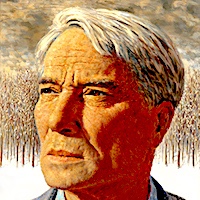
Boris Pasternak Бори́с Леони́дович Пастерна́к
1890 – 1960 CE
Russia's greatest poet
Poet, translator, composer, and novelist; Pasternak wrote some of the most popular poems ever written in the Russian language. Leo Tolstoy was a close family friend and Pasternak's father illustrated his books. Other family friends included Rachmaninoff and Rainer Maria Rilke. Family connections and literary status kept him alive during the Stalin years but even during the Khrushchev era his books were censored. At great personal risk and fearing a firing squad he published Doctor Zhivago in Italy. With the support of the the British MI6 and the American CIA, the book found a wide audience, won a Nobel Prize that Pasternak was forced to reject, and initiated family persecutions that continued until Gorbachev in the 1980s. Since 2003 however, it is read by all 11th grade Russian high school students.
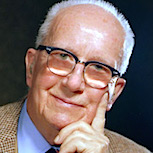
Buckminster Fuller
1895 – 1983 CE
“One of the greatest minds of our times," pioneering solution-solver doing "more with less,” poet, engineering and inventor-genius with 25 patents; Bucky developed a comprehensive and practical perspective on ways to solve world problems. Expelled from Harvard in 1913 and also in 1915 (he later received 47 honorary doctorate degrees) and on the verge of suicide in 1927 when his construction company failed, he went into a 2-year reclusive retreat emerging as one of our greatest global thinkers. His inventions include a winch to rescue boats, a way to better produce concrete buildings, the World Game, the Dymaxion™ house, car, bathroom, grain bin, and many as well as the geodesic dome with now more than 300,000 in use everywhere from African villages to remote radar stations to children’s playgrounds. Advocate of "a one-town world,” seeing ourselves on "spaceship earth,” and the world as one living system; he inspired tens of thousands of sustainability pioneers.
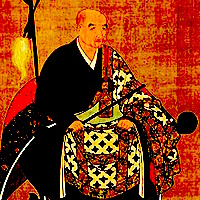
Bunan 至道無難 (Shido Bunan Zenji Munan)
1603 – 1676 CE
When young and known as the “Kana-writing boy” because of his skills, Bunan started practicing Zen and became a married innkeeper but also an addicted gambler and alcoholic. A chance encounter with a teacher, Gudo led to a radical life change, his enlightenment, and a recognition of the corruption that had entered the Rinzai Zen tradition. He became a famous poet, the teacher of Shoju Etan, teacher to Hakuin who revitalized Japanese Zen, and started many of the modern lines of Zen masters. Bunan eschewed fame and fortune, conventionality, rules, and following the words of the teaching rather than the sense.
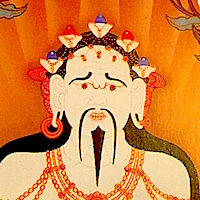
Campaka ཙ་མྤ་ཀ (“The Flower King”)
820 CE –
Mahasiddha #60
Extremely wealthy, powerful, caught up in pleasure, and sitting on a throne made from sweet-smelling flowers; Kampala met a wandering yogi. He tried to impress the sage with the splendors of his kingdom and the beauty of his flowers but the sage told him the truth, that his flowers smelled great but his body not so much, that his realm was wonderful but before long it and he would be gone. Realizing the superficiality and meaninglessness of his life, Kampala began a spiritual path but only shifted his physical materialism into spiritual materialism. Directed to focus his meditation on “the flower of pure reality,” he practiced and finally realized the empty essence of his mind. Mahasiddha #60

Carl Jung
1875 – 1961 CE
Insightful shamanistic scientist
Psychic adventurer, fearless explorer of the unconscious, uncompromising guide to realms beyond conventional mind; Carl Jung ransacked visions, penetrated to the heart of obscure symbols, brought world culture further along the path of evolutionary consciousness. Bringer of eastern wisdom into Western culture, Jung influenced psychiatry, anthropology, archaeology, philosophy, literature, and religious studies and wrote introductions to books like the I Ching, Secret of the Golden Flower, and D. T. Suzuki’s An Introduction to Zen Buddhism. He founded analytical psychology based on what he considered the central process of human development and a central theme in the Tao Te Ching: integrating opposites.
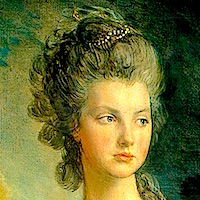
Catherine the Great Екатери́на Вели́кая (Catherine II)
1729 – 1796 CE
Russia’s longest-ruling female leader, “enlightened despot,” author, great patron of the arts, flamboyant and powerful; Catherine the Great helped create and ruled over Russia’s Golden Age revitalizing the institutions, modernizing it’s infrastructure, helping the serfs and emphasizing the arts. She shared more and more power with the nobles, tried to help the peasants, but the rapid expansion of the state relied on taking away much of their freedom and land causing their dissatisfaction and rebellions. She enthusiastically supported the The Enlightenment, helped Russia to become one of Europe’s great powers, greatly expanded colonizations that went as far as Alaska but was accused of many unjust wars. She established the first state-financed higher education institution for women in Europe and supported French philosophers like Voltaire and Diderot when his Encyclopédie was being oppressed in Europe. More licentious than most of her male counterpoints, history records 22 male lovers, many much younger, one only 22 when she was 61.
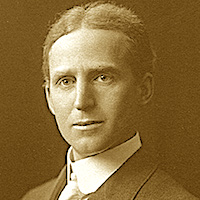
Charles Beard (Austin)
1874 – 1948 CE
Pioneering progressive historian
Historian, professor, and progressive political pioneer; Beard questioned the philosophical motivations of the U.S. founding fathers and described their more influential economic motivations. This view became both highly influential and strongly criticized. He supported US involvement in World War I but opposed it during and after World War II criticizing FDR (although he supported the New Deal) for lying to the American people and tricking them into supporting the war. He thought of the Constitution as a "counter-revolution" established by the rich to prevent an excess of democracy. This became the accepted historical interpretation until it lost favor of the status quo about 1950 but remained influential to less status quo conforming historians.
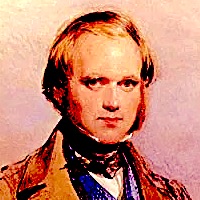
Charles Darwin
1809 – 1882 CE
Revolutionary scientist, one of the most influential characters in human history, and originator of the theory of evolution and natural selection; Charles Darwin generated a scientific consensus that recast humanity’s understanding of itself. Following his father’s decisions, he became a failure in his early academic efforts, a failure in his studies to become a doctor, and a failure in his career as a clergyman because of his intense interesting in beetles and entomology. He traveled to remote islands studying coral reefs, barnacles, animals, fish, insects of all kind and was “struck with the variability of every part in some slight degree of every species.” Unlike Thoreau’s book Walden that didn’t sell enough copies to cover the paper cost, Darwin’s book, The Origin of Species sold out on the first day in print launching a debate that soon led to a dual between scientists and became a controversy that continues today. He studied earthworms for 40+ years and this became the topic of his last book which he wanted to write quickly "before joining them.”
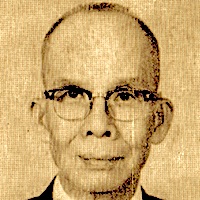
Charles Luk 陆宽昱
1898 – 1978 CE
Upāsaka, translator, disciple of Tibetan Vajrayana,Taoist and Chán meditation masters; Charles Luk began translating famous Chinese texts into English before most people in the West had had even heard of these traditions. He translated Buddhist Sutras, important books on Daoist Neidan meditation, and wrote many commentaries and biographies.
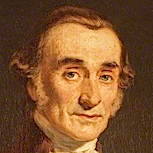
Charles Mackay
1814 – 1889 CE
English journalist in the US covering the civil war, Scottish poet, songwriter and novelist; Mackay used Gracian’s insight that “all fools are fully convinced” as a foundation for much of his writings. He described the Middle Ages mania called the Crusades, the 17th century Dutch tulip phenomenon as one of many economic/financial bubble manias, 16th- and 17th-century witch trials when thousands of people were executed as witches, and other national and philosophical delusions. A strong proponent and eloquent “apostle of doubt,” he wasn’t taken seriously during his lifetime but is still a big influence today referenced by stock traders, Forbes magazine, BusinessWeek, Neil Gaiman, Financial writer Michael Lewis, and many others.
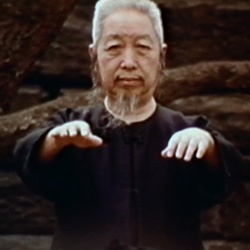
Cheng Man-ch'ing
1902 – 1975 CE
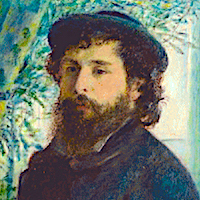
Claude Monet
1840 – 1926 CE
"the driving force behind Impressionism"
A founder, instigator, and vivid example of Impressionist painting; Monet brought Boudin's dictum of preserving "one's first impression" to artistic near-perfection. It was only shortly after his birth that the discovery of metal-tubed pigments made painting outdoors practical. This new technology opened up an expansive world of light variation and Monet—like ancient explorers of uncharted new lands—launched exploratory journeys into these new visual countries. He frequently painted many times the same scene under differing light conditions.
Beginning his commercial artistic career at only 15 selling popular caricatures, this initial success disqualified Monet from the acclaimed art schools and sent him on a road of his own including years on the move avoiding creditors and seeking a home and place to paint. Unlike the majority of pioneering artists, however, he was recognized during his lifetime and died both prosperous and famous. During the last half of his life, he traveled less and less while cultivating the gardens of Giverny which—like his paintings—included bright patches of color in a messy but balanced whole.
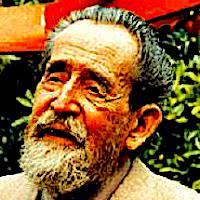
Dane Rudhyar ( Daniel Chennevière)
1895 – 1985 CE
Agent of cultural evolution
Modernist composer, transcendental artist, science fiction writer, philosopher, and founder of transpersonal astrology; Rudhyar thought of himself as a “seed” spreading a new era of cultural evolution. Prolifically creative his entire life, scholars consider his most fruitful period beginning when he was 74. During the next 10 years, he published several books a year including many insightful works on planetary consciousness. After performing one of the first original polytonal orchestral pieces in the United States, he met a Zen teacher and began studying Eastern philosophy. This led to an emersion in Theosophy, Jungian psychology, humanistic astrology, and the New Age movement. Living and teaching in 1960’s San Francisco, he became a major influence on the counter culture. He helped transmute much of the time’s superstitious allurements into symbolic interpretations and psychological insights.
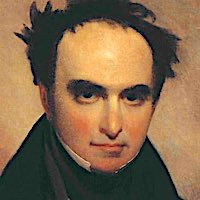
Daniel Webster
1782 – 1852 CE
America's greatest orator
Two-time US Secretary of State and presidential candidate, leading Supreme Court attorney, and Senator; Daniel Webster was named as one of the five greatest senators in history, gave "the most eloquent speech ever delivered in Congress,” and his style—for at least 75 years—became the main exercise for students of oratory. A key supporter of President John Quincy Adams and leading opponent of Andrew Jackson, historians consider him instrumental in maintaining United States union over the Southern efforts of creating a states-rights Confederacy. In John F. Kennedy’s book Profiles in Courage, he described one of his positions risking denunciations and his presidential ambitions, one of the “greatest acts of courageous principle in the history of the Senate.” On the other hand however, he supported wars against Native Americans, the Fugitive Slave Act of 1850, war against England because they wouldn’t return fugitive slaves, and opposed the Dorr Rebellion. In many ways, Webster represents the art of compromise—both the positive and negative aspects of giving away something important for something even more important. For example, he supported the Fugitive Slave Act of 1850 which made it easier for slave owners to recapture runaway slaves; but, in exchange, California was admitted into the Union as a non-slave state tipping the balance to more non-slave than slave states.
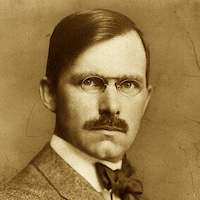
David Grayson (Ray Stannard Baker)
1870 – 1946 CE
One of the most insightful journalists, historians, and biographers of his time
A pioneering muckraker in the late 1800's, Grayson's book, Adventures in Contentment became popular worldwide selling millions of copies. The Atlanta Race Riot in 1906 inspired him to write a book called Following the Color Line which was the first in-depth and influential examination of the racial divide in America. It became knows as, "the best account of race relations in the South." A close friend and supporter of president Woodrow Wilson, he traveled to Europe on his behalf and became his press secretary during the peace negotiations after World War I. He later published 15 books about Wilson, two of which won Pulitzer Prizes. Buildings at the University of Massachusetts, Michigan State University, and an Elementary School in Waterford, Michigan are named after him.
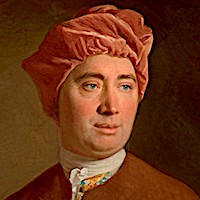
David Hume
1711 – 1776 CE
"One of the most important philosophers"
Hume's father died when he was two and his mother encouraged his education which developed him into a true polymath in philosophy, mathematics, science, economics, history and literature. His writing career began when he was only 16 but—popular with the ladies and aristocratic society—he kept most of his controversial, influential writings secret and they weren't printed until after his death. Mainly recognized as an historian during his life, his post-mortemly published philosophical works became a major influence on thought leaders like Francis Bacon, Descartes, Newton, Locke, Berkeley, Adam Smith and all who came after them. Kant said that Hume woke him up from his "dogmatic slumbers."
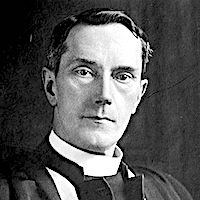
Dean Inge
1860 – 1954 CE
Christian mystic and philosopher
Although a prolific writer of 35+ books and nominated 3 times for the Nobel Prize in Literature, Inge isn’t a very well known historical figure. His insight, however, was deep and his influence on modern—at least Christian—culture profound. Author, priest, professor of divinity, passionate animal rights supporter, and Dean of St Paul's Cathedral; he criticized the Roman Catholic Church, disapproved of democracy, promoted nudity and eugenics. A serious, preaching Christian but on the mystical side, he advocated the philosophy of Plotinus and a kind of autonomous religion based on personal experience rather than external authority.
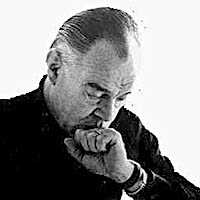
Denys de Rougemont
1906 – 1985 CE
Non-conformist leader, influential cultural theorist
Cultural theorist, prolific writer of 32+ books, and Swiss defender against Nazi propaganda; de Rougemont was an influential non-conformist of the 1930's, opponent of his era's totalitarian movements, and advocate for European federalism. His ground-breaking book, Love in the Western World, questioned and criticized Western Civilization's fascination with romantic, unrequited love. A paramour of Saint-Exupéry's Salvadoran wife, Consuelo ("The Rose"), he modeled for a Little Prince painting, wrote a Saint-Exupéry biography, and later helped Consuelo write her own autobiography.
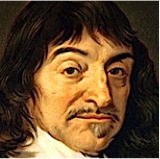
Descartes (René Descartes)
1596 – 1650 CE
Though remaining a Catholic, solidifying the dualistic view in Western thought as well as "Cogito ergo sum" belief in a separate self; Descartes emphasized methodic doubt and the impossibility of externally based intellectual certainty undermining faith in belief and Church doctrine. This sparked a thought revolution that created the modern era. He developed analytic geometry (using x, y, and z for unknowns) and using superscripts for powers or exponents, discovered the law of reflection, and the basis for the development of calculus. Known as the “father of modern philosophy,” he changed the course of Western philosophy and his influence continues to this day.
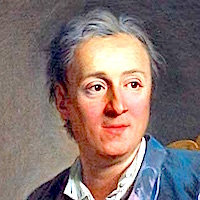
Diderot
1713 – 1784 CE
Philosopher, art critic, scientist, and writer; Diderot was imprisoned in solitary confinement for his philosophical views and mainly only known for his plays and encyclopedia during his lifetime. His rival Rousseau though believed posterity would give him the same respect as Aristotle and Plato and he was later admired by Goethe, Schiller, Balzac, Zola, and Schopenhauer. He was Karl Marx’s favorite prose writer and Comte called him the “foremost intellectual of an exciting age.” He worked on the Encyclopédie as a way of giving power to the common person and emphasized religious tolerance, freedom of thought, the value of science, and—threatening the French aristocracy—maintained that the main purpose of government should be benefiting the common people.

Dietrich Bonhoeffer
1906 – 1945 CE
Theologian, prolific and influential author, anti-Nazi double-agent spy, martyr, and non-thought lineage holder; Bonhoeffer worked against Hitler and the Third Reich when almost everyone around him was either seduced, bullied or exterminated and his fellow pastors were preaching, "Christ has come to us through Adolph Hitler." Leaving a safe home in America; he helped smuggle Jews into the neutral Switzerland, vocally and secretly opposed the Nazis, and was tortured and killed in a concentration camp. A deeply religious Christian, he taught a “religionless Christianity” without a metaphysical God confused by concepts and belief.
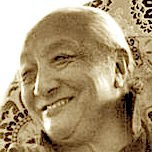
Dilgo Khyentse Rinpoche དིལ་མགོ་མཁྱེན་བརྩེ།
1910 – 1991 CE
"Mind" incarnation of Jamyang Khyentse Wangpo
Vajrayana master, poet, terton, scholar, and head of the one of Tibet’s main traditions; Khyentse Rinpoche became a major resource and driving force during Tibetan Buddhism’s transition out its 1000 years of isolation into the rest of the world. A descendent of Tibet’s legendary king, Trisong Detsen and a political minister father; he began an intense meditation practice and religious philosophy training when only 7 years old and then spent 13 years in caves and remote hermitages doing solitary retreats. An “archetype of spiritual teacher” and root teacher to hundreds of Tibet’s young lamas and to most of Tibet’s important modern teachers including Chogyam Trungpa, Dzongsqr Khyentse, the Dalai Lama, and Pema Chödrön; Khyentse Rinpoche’s wisdom and compassion continues to spread throughout the world.
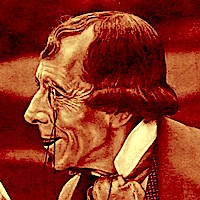
Disraeli, Benjamin (Earl of Beaconsfield )
1804 – 1881 CE
Political balance between mob rule and tyranny
Highly accomplished two-time UK Prime Minister (and only one ever born Jewish), active novelist, poet, close friend of Queen Victoria, and one of the most influential European statesman; Disraeli led a complex and difficult to categorize life. Many saw him as an eloquent charlatan; many as a strong, capable, and patriotic leader. Countering the status quo attitude toward Jews as being inferior, he redefined Judaism as race rather than religion and described Jews as superior in talent and influence. This ironically, may have led to the later fear and resentment toward Jews that culminated in programs and concentration camps. A founder of the modern Conservative party, he brought an isolationist Britain into collaboration with Europe. After the failed Indian Mutiny of 1857 (caused by pig and cow greased bullets) and the annexation of India to Britain, he proclaimed Queen Victoria “Empress of India.” Although he promoted a kind of paternalistic monarchy and imperialism, his voice remains relevant in the ever-challenging balance between overly democratic mob rule on one side and autocratic tyranny on the other.
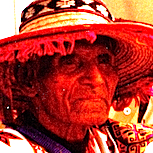
Don José Matsuwa
1880 – 1990 CE
Wounded healer, farmer, Huichol shaman, master ceremonial leader, window into our mysteriously inter-related and sacred world; Don José Matsuwa devoted his life to completing the sacred path of the shaman, to healing as a way of life and an art form restoring both individual and planetary balance. An important influence on Joan Halifax, she said, “I loved this old man. He was very funny, wise and crazy.” He visited Northern California and inspired the Dance of the Deer Foundation and the “Planetary Dance” that since 1980 has been performed each year and now in dozens of countries.
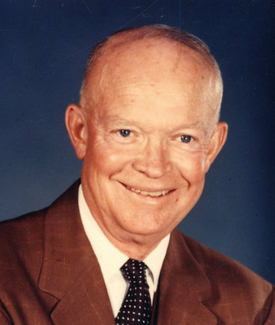
Dwight D. Eisenhower
1890 – 1969 CE

E. F. Schumacher
1911 – 1977 CE
The “People's Economist”
While working in Burma during the mid ‘50s, Schumacher developed a set of principles he called “buddhist economics” — emphasizing the idea that people need good work for proper human development. Traveling through many Third World countries, he helped governments create self-reliant economies based on local resources and needs. A pioneer and instigator in creating a philosophy of “appropriate technology,” and known as the “People's Economist,” his economic theory based on wisdom instead of only materialism, became one of the most serious alternatives to the dominant economic theories based on Adam Smith and John Maynard Keynes.
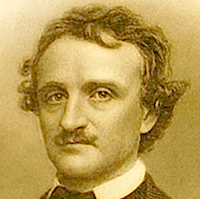
Edgar Allan Poe Edgar Allen Poe
1809 – 1849 CE
Edgar Allan Poe (1809 – 1849)
Inventor of the detective genre, founding father of modern science fiction, central figure in the Romanticism movement, poet, fearless "tomahawk man" critic, and first well-known American writer to live on writing alone; Edgar Allan Poe influenced literature here and around the world as well as television, music and movies still popular today. An orphan at two, often troubled by gambling and gambling debts, forced to drop out of college after one semester because of financial problems that plagued him his entire life, “Mad genius" and "tormented artist;” Poe’s influence extended into the the worlds of cryptography, physics and cosmology as one of his theories foreshadowed the Big Bang theory by 80 years.
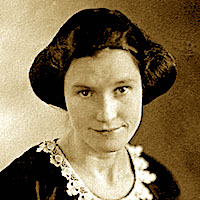
Edith Hamilton
1867 – 1963 CE
Historian, professor, translator, mythologist, and classicist; Edith Hamilton wrote insightful, best-selling books on mythology, Greek, and Roman culture. Her younger sister became the first woman on the faculty at Harvard University and Edith received Greece's highest honor, the Golden Cross. John F. Kennedy consulted with her and Robert F. Kennedy quoted her in his speeches. An educator most of her life in change of the only private US high school for women that prepared all of its students for college, she began her second career as an author publishing her first book, The Greek Way, when she was sixty-two. A biographer, her life was "ruled by a passionately nonconformist vision.. her strength and vitality, her appeal as public figure and author."
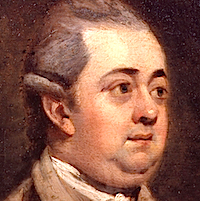
Edward Gibbon
1737 – 1794 CE
One of history’s most important historians, Gibbon made groundbreaking contributions to our understanding of not only the Decline and Fall of the Roman Empire but to the factors that help or hinder the rise and fall of all countries, governments, and civilization itself. From an objective perspective that appreciated the civilizing influence of religion while maintaining a skeptical, non-believing openness; he examined the impact of Christianity and organized religion on a free. healthy, diverse society. His conclusion was that while they addressed deep psychological needs, they easily become subservient to political power and their main influence undermined the evolution and establishment of a sane and just society.
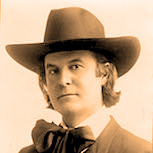
Elbert Hubbard
1856 – 1915 CE
Traveling soap company salesman who invented the “leave on trial” technique, philosopher, artist, trouble-maker and writer; Hubbard identified with the Thoreau, Whitman, Tolstoy lineage and distilled this philosophy in his famous essay, A Message to Garcia. Often mocked for "selling out,” convicted for circulating "obscene" material but pardoned by Woodrow Wilson; he seemed to live his famous adage, “When life gives you lemons, make lemonade.” He blended philosophy and business, idealism and practicality stretching into the wisdom beyond words. Survivor of the Titanic sinking, he died along with his wife in stoic acceptance on a different ship sunk by a German submarine.
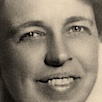
Eleanor Roosevelt
1884 – 1962 CE
Longest-serving First Lady in the history of the United States, Eleanor was mentor and guiding influence behind her powerful and famous husband, blending his charisma with her wisdom. Though a terrified introvert, she was the first First Lady to be on talk radio, address a national convention, hold a press conference, write a newspaper column and averaged 150 lectures a year throughout the 50’s. She championed civil rights, women’s rights, helped write the Universal Declaration of Human Rights and became chairperson of the UN Commission on Human Rights. Called the “First Lady of the World” by Harry Truman, she received thirty-five honorary degrees and two of her speeches are on the Top 100 Speeches of the 20th Century.
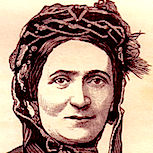
Ellen Craft
1826 – 1891 CE
A slave secretly married to a slave with a different master and fearing their forced separation, Ellen (at least ¾ European) cut her hair short and disguised herself as a white man traveling with his servant who was really her husband. The elaborate disguise included facial bandages and a sling so she wouldn’t have to sign papers since she couldn’t read or write. She had to act a different gender, race, and social class. After many days traveling by train and steamer they arrived safely in the north and then - fearing slave hunters - went on to England where they wrote a popular account that became an important influence for abolition. After the war, they returned to Georgia and started an agricultural school.
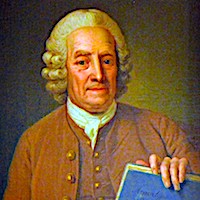
Emanuel Swedenborg
1688 – 1772 CE
Scientist, mystic, influential philosopher
A scientist, philosopher, theologian, inventor, and mystic; Swedenborg began his career as a genius-level scientist and later—detesting the materialism of his academic life—experienced visions and became a highly influential and mystical theologian. He was the first to identify nerve cells, identify the brain's cortex, and pioneered many discoveries in magnetism, phosphorescence, and brain function. His mystical visions described visits to heaven and hell, conversations with spirits from the moon, the planets in our solar system as well as with those from planets further away. His influence spread throughout Europe and into modern times through figures like William Blake, Coleridge, Emerson, Browning, and several Christian denominations.
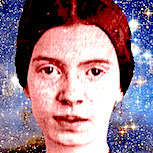
Emily Dickinson
1830 – 1886 CE
Though now considered one of the greatest figures in American literature and one of the most important poets, only a few of Dickson’s poems were published during her lifetime and those were significantly edited and changed by publishers. Her first collection wasn’t printed until years after her death and a complete collection wasn’t published until 1955. A serious student of botany, she made and maintained a vast collection of plants; highly introverted, creative, unique, and challenging the assumptions of her time; she seldom left her house but wrote 40 volumes of almost 1800 poems.
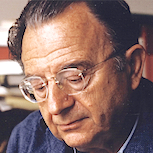
Erich Fromm
1900 – 1980 CE
One of the most powerful voices of his era promoting the true personal freedom beyond social, political, religious, and national belief systems
One of the world’s leading psychoanalyst-philosophers, “forefather of socialist humanism,” civil rights activist, and anti-Vietnam protestor; Fromm was born Jewish, became a rabbi but then came to believe that religion only breeds hatred, inequality, and discord. Becoming another “apostle of doubt,” he criticized political ideologies, cultural convictions, and all authoritarian value systems. Escaping Hitler and the Nazis in Germany, he came to the US where his talks and writings initiated the beginning of political psychology and explored the modern influences toward fascism, irrational behavior, consumerism and the “escape from freedom.” As most of our wisdom holders, he focused on unifying opposites, in particular as in his last book, paradox between “having” and “being.”
Interview with Mike Wallace
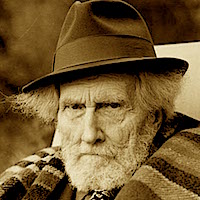
Ezra Pound
1885 – 1972 CE
Major influence on modern poetry, developer of Imagism, critic of international capitalism to the extent of supporting Hitler and Mussolini; Pound helped to discover, animate, and promote literary figures including Ernest Hemingway, T. S. Eliot, James Joyce, and Robert Frost. The depth and genius of his writing was tarnished by his political views and actions which resulted in being convicted of treason, solitary confinement and probably torture in a US military prison that caused a mental breakdown and 12 years of incarceration in a Washington, D.C. psychiatric hospital. Considered by Arthur Miller “worse than Hitler” and called a "National Monster" by many; Hemingway wrote that his writing “will last as long as there is any literature" and Carl Sandburg that "All talk on modern poetry, by people who know, ends with dragging in Ezra Pound somewhere.” In later life he confessed to his Jewish protege Allen Ginsberg his confused belief in ideologies and that, “Any good I've done has been spoiled by bad intentions […] But the worst mistake I made was that stupid, suburban prejudice of anti-semitism.” Although sages warn against flattery and recommend welcoming criticism, Pound’s anti-semitism and support for fascism make it extremely difficult although increasingly important to openly hear his valid criticisms of our culture and state of civilization. The smartest people learn from smart people’s mistakes.
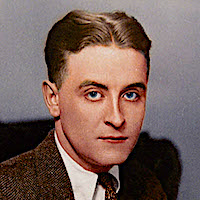
F. Scott Fitzgerald
1896 – 1940 CE
Prototype of "Jazz Age" exuberance
One of the greatest American writers, prototype of "Jazz Age" exuberance, and symbol of the "Lost Generation"; Fitzgerald became popular and successful during his lifetime but not respected in the literary world until after his death. His passion for writing interfered with his college pursuits and he had to drop out of Princeton and join the army where he became a student of Dwight Eisenhower whom he passionately disliked. During this time he met his future wife, Zelda Sayre who was the daughter of a state Supreme Court justice but she wouldn't marry him until his first novel became famous and he finally had an income steady enough to support her opulent lifestyle. Her later mental illness, his alcoholism, health and financial problems plagued his later years and he died from a heat attack when only 44.
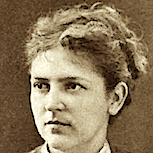
Fanny Osbourne Stevenson
1840 – 1914 CE
The inspiration and strength behind Robert Louis Stevenson, we can thank Fanny for such literary treasures as Kidnapped, Strange Case of Dr. Jekyll and Mr. Hyde, The Black Arrow, and Treasure Island. Following her first husband to the silver mines of Nevada traveling by wagon and stage-coach, she lived in a rugged mining camp shooting a pistol and rolling her own cigarettes. After leaving her gold and prostitute-chasing husband, she met a struggling Robert Louis Stevenson in Paris, saw his writing genius and began a fierce love affair that inspired, encouraged, and supported him. This provided a strong platform on which he built some of the world’s most endearing characters and stories. In her later life she was described as "the only woman in the world worth dying for."

Florence Nightingale
1820 – 1910 CE
The founder of modern nursing, she started the first secular nursing school in the world, emphasized preventive medicine and holistic health, improved healthcare for all classes as well as hunger relief in India. She helped abolish harsh prostitution laws and expanded acceptable roles for women. A strong Christian, she was critical of organized religion, appreciated pagan and eastern religions, and strongly opposed discrimination of all kinds. She inspired worldwide health care reform and her work improved the situation for women everywhere. Her influence remains strong and the Florence Nightingale Declaration has been signed by over 18,500 nurses from 86 countries.
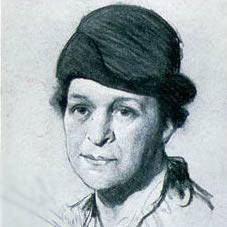
Frances Perkins
1880 – 1965 CE
One of the most influential champions for worker's rights
First woman cabinet member, close friend of FDR, and fierce advocate for worker's rights; Perkins helped create unemployment insurance, social security, the minimum wage, the Civilian Conservation Corps, and laws to regulate child labor. The longest serving Secretary of Labor (1933-1945), she became essential in establishing and enacting the New Deal as well as the Immigration and Naturalization Service. During the challenging times during World War II, she mediated strikes, balance labor vs. war needs, and helped the transition of women moving into traditionally male-only jobs. Her skill and influence were profound but without much charisma she mainly stayed in the background without much public attention. Her honors include the National Women's Hall of Fame, the Labor Hall of Fame, the 31 Icons of a LGBT History Month, and the 2019 Government Hall of Fame. Senator Elizabeth Warren uses a podium built from wood recycled from her homestead.
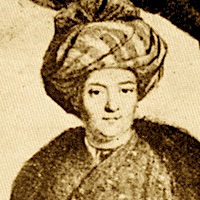
François Pétis de la Croix
1653 – 1713 CE
Early and influential orientalist
Translator, orientalist, interpreter, diplomat, and extensive traveler; Pétis de la Croix knew and spoke Arabic, Persian and Turkish. This led him into pioneering oriental studies of Sufism, the Masnavi Philosopher's stone, and the Muslim Qur'an. Much of his work however needed to be discrete and unpublished because his era was constrained by Catholic censorship, the witch craze, and extreme penalties for unorthodoxy. His influence did, however, inspire other works including Carlo Gozzi's The King Stag and Turandot. Benjamin Franklin popularized his publication of Genghis Khan's biography which became an influence on Thomas Jefferson and his Virginia Statute for Religious Freedom.
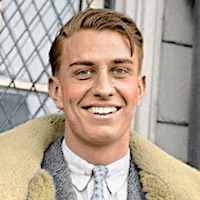
Franklin Roosevelt (FDR)
1882 – 1945 CE
Champion and creator of a more just and equitable society
32nd president of the United States, winner of a record 4 terms, widely considered one of the 3 greatest presidents and one of the of the 20th century's most influential politicians, and champion of the New Deal; Roosevelt met and successfully responded to some of the USA's most challenging problems including the Great Depression, Prohibition, and World War II. He helped establish the United Nations, Social Security, a minimum wage, and made child labor illegal. Like all of us though—in particular politicians—he has a shadow/dark side which manifested in the incarceration of Japanese-Americans during WWII, a subtle support for white supremacy, and a tremendous expansion of presidential powers.
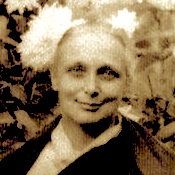
Freda Bedi, Sister Palmo
1911 – 1977 CE
Freda Bedi, Sister Palmo (1911 – 1977)
First Western woman to become a Tibetan Buddhist nun and married to a Sikh from Guru Nanak’s clan; Freda Bedi spoke before hundreds of thousands of people helping Gandhi and his national independence movement, was arrested and and spent months in prison held along with her children. People came to her by the thousands just for her blessing and she later worked for the United Nations Social Services, the Ministry of External Affairs, and the Tibetan Refugees Commission. Nehru asked her to be in charge of the Social Welfare Board in 1959 when the Dalai Lama and thousands of Tibetans arrived in India and she began studying with the 16th Karmapa. She helped establish the Young Lamas Home School and asked Chogyam Trungpa to train and become spiritual advisor to young monks there.
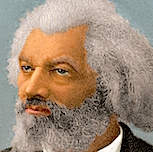
Frederick Douglass
1818 – 1895 CE
International symbol of social justice
Escaped slave, most influential 19th century black leader, adviser to Abraham Lincoln, champion of the working class, author, orator, and newspaper editor; Douglass eloquently agitated for the abolition of slavery, racism and capital punishment; for women’s rights, free public education, and land reform. Calling racism a “diseased imagination,” he convinced Lincoln to let blacks fight in the Civil War and helped enlist troops. Internationally famous, author of an American classic autobiography, a father of liberation theology, and the first African American in many political positions; his memory symbolizes and inspires the spirit of people everywhere to resist oppression and work for social justice.
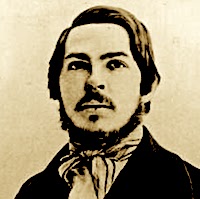
Friedrich Engels
1820 – 1895 CE
Businessman-philosopher, political theorist
Co-author of The Communist Manifesto, polyglot speaking 9 languages, businessman, poet, journalist, philosopher; Engels grew up in a wealthy family that owned and operated large factories. He saw the horrible, slave-like working conditions, long hours, environmental degradations, and child labor from a very clear, first-hand perspective. He financially supported Karl Marx, edited his writings, and wrote influential books of his own. Together they organized workers, envisioned egalitarian societies, and developed communist theory. In spite of his dedicated, political activism, in order to finance Marx’s work, he reengages in many successful business ventures. Risking imprisonment, hiding from police, and participating in armed rebellions; his efforts to create a more equitable world went far beyond theory and speculation. Although claimed as inspirational founder of Stalin’s Soviet Union, his emphasis on individuality and the appreciation of literature, music and culture set his true philosophy in direct odds against Stalin. While most of the credit for Marxist theory went to Marx, Engels—behind the scenes editing, filling in gaps, and amplifying—may have had a more important influence. He lived with the fierce, Irish radical Mary Burns for over 20 years until her death; but, because they both considered state and church-controlled marriage a form of oppression, never married.
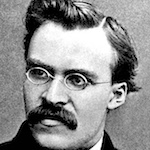
Friedrich Nietzsche
1844 – 1900 CE
Philosopher, scholar, poet, unifier of opposites and courageous critic of Western Civilization, Nietzsche proclaimed that “God is Dead,” that Christianity is “one great curse, one great intrinsic depravity,” and then started a “campaign against morality.” With a deep appreciation for Buddhism and rejecting external authorities like a “God” or a Church, he extolled the ability for people to discover their own morality grounded in reality rather than following herd-based ethics and beliefs. With a dedication to the sense over the words, people as diverse as D. H. Lawrence, Mishima, Rilke, Jack London, Hermann Hesse, Martin Heidegger, Carl Jung and many others described him as a most important influence on themselves personally as well on as society and the evolution of consciousness.
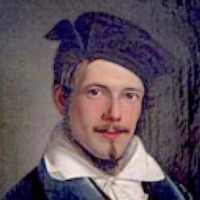
Friedrich Viktor Strauß
1809 – 1899 CE
First German Tao Te Ching translator
Theologian, poet, minister, translator, and scholar; Strauß published the first German Tao Te Ching translation in 1880. He also translated Chinese classic poetry, wrote novellas and gypsy romance. Sill popular today, his Tao Te Ching translation's 11th edition was published in 2004. His translation of the Shijing (Book of Songs) in 1880 became the first German translation. An ambassador and minister, he also translated his insight and understanding of Chinese wisdom into Western culture. Some of his hymns are still sung in churches and for weddings.
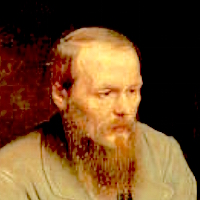
Fyodor Mikhailovich Dostoyevsky Фёдор Миха́йлович Достое́вский
1821 – 1881 CE
One of history’s most influential novelists and one of the greatest psychologists in world literature; Dostoyevsky led a tortured life that included being arrested for discussing banned books, being sentenced to death, spending 4 years in a Siberian prison camp, 6 years of forced/exiled military service, and struggling with a gambling addiction that made him have to beg for money. His second wife who he met when she was 19 and he 25 years older, helped turn his life around and produce some of the world’s best literature. His books have been translated into more than 170 languages and he was admired by Hermann Hesse, Ernest Hemingway, James Joyce, Kafka and Sartre. Albert Einstein called him a "great religious writer,” Nietzsche “among the most beautiful strokes of fortune in my life", Sigmund Freud called The Brothers Karamazov "the most magnificent novel ever written,“ and Virginia Woolf said, "Out of Shakespeare there is no more exciting reading.” His influence in modern time extends to the existentialists, surrealists, and the Beat generation.
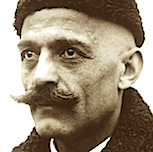
G. I. Gurdjieff
1866 – 1949 CE
Philosopher, mystic, composer, ragged wanderer, successful entrepreneur, and deep spiritual teacher; Gurdjieff emphasized the hypnotic, dull, and asleep quality of our lives and - like the Buddha and many others - that we can “wake up.” His intense curiosity led him on extensive travels through Tibet, Russia, India, Iran, Egypt, North America and throughout Central Asia in a search for "seekers of truth,” people like we include on these lists. He felt that our religious and philosophical traditions have migrated from understanding the “sense” to mindless belief and adherence to the forms, to only the “words.” He sought to revitalize ancient wisdom traditions (Socratic, Stoic, Vedic, Buddhist) making them alive and relevant to contemporary life. His popular teachings on the enneagram remain influential today.
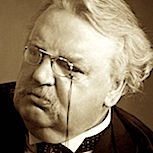
G. K. Chesterton
1874 – 1936 CE
Social critic, theologian, and philosopher turning popular proverbs inside out with deep insight and laugh-out-loud humor; Chesterton was called both the best writer and best thinker of the 20th century, “the most unjustly neglected writer of our time,” and the "prince of paradox.” One of the most prolific authors of all time, he wrote more than 100 books, hundreds of poems, plays, short stories and over 4000 newspaper articles. Over 300 pounds and 6’4,” normally wandering around lost with a cigar in his mouth, writing many of his articles in train stations after inadvertently missing his train; he criticized both capitalism and socialism predicting the modern polemic stalemate of progressives “continually making mistakes” while conservatives continue to “prevent the mistakes from being corrected." He influenced atheist C.S. Lewis’s conversion to Christianity, the movement for Irish Independence, and Gandhi’s movement to end British colonial rule. He “changed the life” of Marshall McLuhan and inspired the novels and writings of Neil Gaiman, Terry Pratchett, Ernest Hemingway, Graham Greene, Agatha Christie, Jorge Luis Borges, George Bernard Shaw, H.G. Wells, E.F. Schumacher, Bertrand Russell and many more.
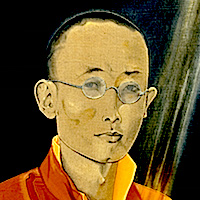
Gendün Chöphel དགེ་འདུན་ཆོས་འཕེལ།
1903 – 1951 CE
Child prodigy, iconoclast, artist, master debater, greatest Tibetan poet of the 20th century, Buddhist monk from an early age, modern Tibet’s first historian, and one of the most influential modern Tibetan intellectuals; Gendun Chopel kept a non-sectarian view throughout his life and challenged cultural, religious, and political dogmas. He lived with Nicholas and Helena Roerich for 2 years helping their son translate the Blue Annals which became a 1275 page book. He abandoned his monastic vows, drank alcohol, practiced and wrote the first Tibetan guide to love and sex. Having traveled and studied widely, he realized the importance of abandoning blind superstition and integrating Tibetan culture into the modern world. Instead of heading his warnings and developing Tibet in this way however, the conservative, status quo establishment had him whipped and imprisoned, ignored his message until the Chinese army arrived in Lhasa.
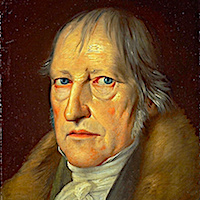
Georg Hegel (Wilhelm Friedrich)
1770 – 1831 CE
Dialectical Philosopher
influential philosopher, developer of "absolute idealism," and political theorist; Hegel worked to integrate history, religion, and art into his philosophy. This led to an integration of dualisms and an amplification of Fichte's thesis-antithesis-synthesis triad. His methods became deeply influential on both contemporary and later schools and thought leaders—even for those who strongly disagreed with his philosophy like Kierkegaard, Marx and Engels—existentialism, Historical materialism, and British Idealism. His writings—rejected and banned by both right wing and left wing politicians—became an incipient influence on many or most of the philosophical schools that came after him: Marxism, phenomenology, German existentialism, and even psychoanalysis
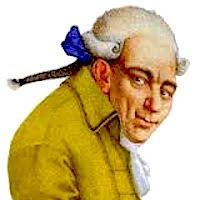
Georg Christoph Lichtenberg
1742 – 1799 CE
One of history’s best aphorists
Youngest of 17 children, scientist, professor of physics, satirist, and hunchback; Lichtenberg had a major influence on the culture of his times that extends into the modern world. He discovered tree-like electrical patterns now called Lichtenberg figures or fractals, the basic principles used now for copy machine technology, a “Compass of Motives” praised by Freud and also standardized the paper sizes now used in most of the world. Considered one of history’s best aphorists, he was read and admired by wisdom lineage holders like Arthur Schopenhauer, Friedrich Nietzsche, Sigmund Freud, Leo Tolstoy, and even Chinese scholars like Qian Zhongshu.
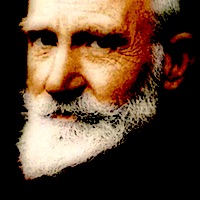
George Bernard Shaw
1856 – 1950 CE
UK playwright second only to Shakespeare
Playwright second only to Shakespeare, political activist, provocative idea generator, theatre and music critic; Shaw wrote over 60 plays, won a Nobel Prize in Literature, and an Academy Award. He promoted, popularized, and evolved the ideas of luminaries like Nietzsche, Samuel Butler, Marx, Shelley, Blake, and Dickens while using his plays to advocate for political and religious ideals as well as many controversial topics like promoting eugenics, opposing organized religion and vaccinations, criticizing both sides during World War I, and expressing esteem for dictators like Mussolini and Stalin. An insatiable originator, he frequently and intentionally proposed contradictory views, controversial political stands, and declined all public honors. He worked hard encouraging people to think for themselves
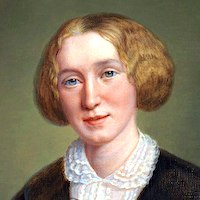
George Eliot (Mary Anne Evans)
1819 – 1880 CE
Pioneering literary outsider
Poet, journalist, translator, novelist, agnostic humanist, political agitator, and courageous follower of her own path; George Eliot wrote what some consider the best novel ever written in the English language (Middlemarch). Known for their psychological insight, her novels reflected her personal experience on the edges of the social, religious, and political fringe. Using a male pen name to escape the strong, feminine stereotypes of her era, this strategy also helped shield her from personal life scandals arising from norm-breaking situations like her adulterous relationship with philosopher George Henry Lewes and her marriage to John Cross who was 21 years younger. Her father didn't consider her beautiful enough to ever find a husband but clearly saw her high intelligence and financed a classical education for her far beyond what was normally available for women. Her father's wealth and high social status also gave her a clear perception of the extreme contrasts between the rich landowners and impoverished people living on those estates. This became a frequent theme in her books.
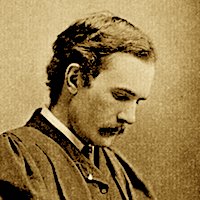
George Gilbert Murray
1866 – 1957 CE
Leading ancient Greek scholar, pioneering humanist, and psychic researcher; Murray was friends with or worked closely with Bertrand Russell, H. Hg. Wells, and George Bernard Shaw. Closely involved with liberal politics, he became Vice-President of the League of Nations Society and a major influence on the creation of the poverty alleviation organization, Oxfam.
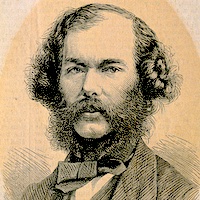
George Henry Lewes
1817 – 1878 CE
English philosopher and soul mate to George Eliot
Lewes' writings emphasized the collaborative potential between metaphysics and science and the creative freshness of his views helped evolve his era's understanding of both philosophy and psychology. His main influence though may have come anonymously through his discussions with his lover, George Eliot.

George Mason
1725 – 1792 CE
First American abolitionist, founding father, and Constitutional savior
American Founding Father, author and primary advocate for the original Bill of Rights, George Washington friend and neighbor, and “the first known abolitionist”; George Mason helped create the American political foundation. Although he wrote many of the clauses and points in the Constitution, he was one of only 3 delegates who refused to sign it because of it sanctioning slavery. Recognizing defects in the Constitution and the inevitable need to change it, he became instrumental in bringing into the constitution provisions for changing it (Amendments) and for adding new states. This made it easy to make changes without violence while creating a strong foundation for the trajectory that became a transoceanic federal republic. The primary force for including articles of impeachment into the Constitution, he wrote the phrase, “other high crimes and misdemeanors.” Because he remained a contrarian and because most of his papers were lost in fire, history doesn’t remember him well and he became "a prophet without honor in his own country.” The results of his efforts, however, brilliantly support modern political freedoms.
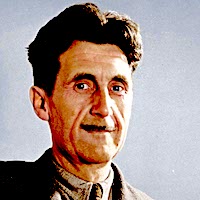
George Orwell
1903 – 1950 CE
English, poet, humanist, apostle of doubt, and powerful political influence
George Orwel, Eric Arthur Blair (1903–1950)
Novel-writing journalist, one of the best English essayists, ranked second on a list of "The 50 greatest British writers since 1945,” insightful literary critic, humanist, poet and powerful political influence; Orwell transformed a life filled with failure, poverty, and humiliation into literary genius and cultural influence. Originator of many words and phrases that have become part of popular culture—"Thought Police", "Big Brother", “Cold War,” "memory hole", "doublethink", “Orwellian,” and "thoughtcrime”—his writing exposed intellectual hypocrisy, social injustice, totalitarian and authoritarian influences, and turned his difficult experiences into great literature.

George Sand (Amantine Lucile Aurore Dupin)
1804 – 1876 CE
Intriguing, inspiring, and subversive; France's most famous 19th C. woman writer; friend to Franz Liszt, Balzac, Henry James, Browning, Dostoevsky, and Turgenev; famous lover of composer Chopin, and famous actress Marie Dorval, George Sand was a cross-dressing, cigar and hookah smoking, rebellious and scandalous dramatist and campaigner for important political reforms. Not the most likely person for this list, her creative courage and compassionate kindness make it an easy choice. As she wrote, “Know how to give without hesitation, how to lose without regret, how to acquire without meanness.”
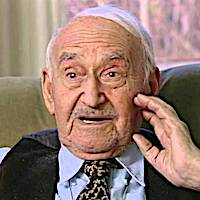
George Seldes
1890 – 1995 CE
Pioneering investigative journalist and champion of the exposé
Star investigative reporter, muckraker, contrary-minded journalist, author, philosopher, and true citizen of the world; George Seldes lived a 104-year life full of adventure in dangerous countries, political challenge on the edge, and philosophical insight threatening the status quo. There and reporting on Hitler’s Berlin, Lenin’s Moscow, Mussolini’s Rome, and Franco conquering Spain; he was often characterized as too radical. Criticized and censored by newspapers, foreign and U.S. governments; one of his censored interviews with the supreme commander of the German Army could have prevented the rise of Nazi power before World War II. Expelled from the Soviet Union after interviewing Lenin and “not showing enough respect,” and from Italy after he implicated Mussolini (who had worked for Seldes before gaining power) in the murder of an opposition leader; he wrote exposés on the Roman Catholic Church, the global arms industry, and the complicity of the press with the tobacco industry in suppressing information on the bad effects of smoking. Toward the end of his life, he spent 20 years gardening and gathering material for a book of the world’s most influential thoughts.
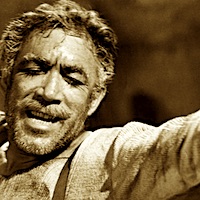
Georgios Zorbas Γεώργιoς Ζορμπάς (Alexis Zorba)
1865 – 1941 CE
"Zorba the Greek"
The Greek miner Nikos Kazantzakis befriended, admired, and used as the inspiration for his book, Zorba the Greek; Georgios Zorbas grew up as the son of a wealthy sheep farmer. He tended flocks, worked in the fields, cut wood for people, and became a miner. He eloped with his boss' daughter who had 8 children with him before tragically dying. He then decided to become a monk on Mount Athos where he met Kazantzakis and began a partnership to develop a mine together. His great-grandson, Pavlos Sidiropoulos, became a famous rock star who founded the band, Spiridoula and produced an record considered the greatest Greek rock album of all time.
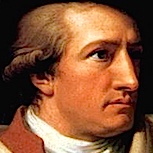
Goethe, Johann Wolfgang von
1749 – 1832 CE
Though a literary celebrity at 25 and most well known for his novels and poems, Goethe was also a natural philosopher, diplomat, civil servant, geologist, and scientist who developed a theory of color, inspired Tesla’s discovery of alternating current and whose early work on evolution influenced Charles Darwin. A freethinker who blended Christianity with pantheism, humanism, and other esoteric traditions, he became a major influence on Hegel, Schopenhauer, Kierkegaard, Nietzsche, Hesse and Jung. He authored some of the greatest novels ever written and his poems were set to music by Mozart, Beethoven, Schubert, Brahms, Liszt and many others. Continuously creating for 82 years, his wisdom deepened and merged into a culture we take for granted today.
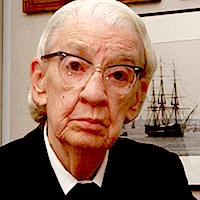
Grace Hopper (Grace Brewster Murray Hopper )
1906 – 1992 CE
Computer programming pioneer "Grandma COBOL,” US Navy admiral nicknamed "Amazing Grace,” IT goodwill ambassador, and recipient of 40 honorary university degrees; Hopper balanced a disciplined and conventional external with a fiercely independent, irreverent, and creative inner force. Her work and belief that computer code could be written in English led to the development of the early programming language, COBOL that’s still in use today. One of the oldest active duty officers in the US Navy’s history, she served for over 42 years and received the National Medal of Technology, the Presidential Medal of Freedom, and numerous awards and honors. While her team was working on an early computer in 1947, they discovered a problem caused by a moth in a relay. This was the physical source of the symbolic term, "debugging."
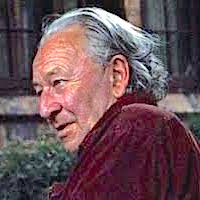
Gregory Bateson
1904 – 1980 CE
Poet-philosopher, deep thinker, anthropologist, and developer of a "meta-science;” Bateson established double-bind theory, helped apply systems theory to the social science, and was part of the core group that developed cybernetics. While married to Margaret Mead, he worked in South Pacific islands on anthropology and during World War II on black propaganda which led to a marriage-fatal disagreement with his wife on the use of science and technology in social planning. Describing 20th century history as a malfunctioning relationship based on betrayal and hate, he posed the development of cybernetics as a direction toward the creation of healthy relationships through the healing of paradox and the non-dual combination of thought and emotion.
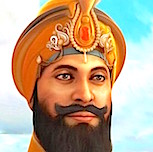
Guru Gobind Singh ਗੁਰੂ ਗੋਬਿੰਦ ਸਿੰਘ
1666 – 1708 CE
Philosopher, poet, spiritual master, warrior, and last living Sikh Guru; his father was beheaded for refusing conversion to Islam and Guru Gobind Singh became Sikh leader when 9 years old. He introduced the Five Ks – the articles of faith that Sikhs always wear, founded the Khalasa warrior community, wrote important texts, and inspired his tradition to always stand up to tyranny and injustice. A great warrior who warned against aggression justifying it only as a last resort, he was betrayed by attacking Hindus but helped by loyal Muslims. Escaping this and other traps, he helped a new prince become emperor giving the Sikhs political support and transferred the succession on to a Holy Book instead of a personal guru.
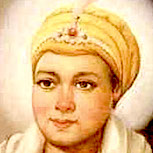
Guru Har Krishan ਗੁਰੂ ਹਰਿ ਕ੍ਰਿਸ਼ਨ (the “Child Guru”)
1656 – 1664 CE
Eighth and at 5 years old, youngest to become one of the 10 Sikh Gurus, Guru Har Krishan died when only eight years old. Chosen by his father because his older brother was in collusion with the Moghal Empire and because he had a soft heart, his youth didn’t seem to diminish his understanding, wisdom, or compassion. It was said about him, “The early morning sun looks small in size, but its light is everywhere.” During a smallpox epidemic, he helped take care of patients from different communities, religions, and castes; caught smallpox himself and died less than 2.5 years after securing his place in Sikh history.
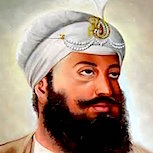
Guru Har Rai Ji ਗੁਰੂ ਹਰਿ ਰਾਇ
1630 – 1661 CE
A sensitive child disturbed when his robe accidentally hurt plants when he walked by, this seventh of the Sikh Ten Gurus remained a man of peace but continued the military tradition of his predecessor and kept over 2000 mounted soldiers at all times. He followed in the Sun Tzu tradition and won battles with strategy rather than aggression and violence. He stopped and prevented corruption, set up a medical research center, and established an Ayurvedic hospital. Herbs from these centers cured a serious and what was thought an incurable medical condition of the Mughal emperor’s son.
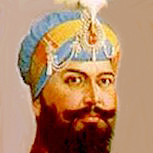
Guru Hargobind ਗੁਰੂ ਹਰਿ ਗੋਬਿੰਦ (Saccha Badshah ("True Emperor"))
1595 – 1644 CE
Founder of Kiratpur, builder of the Akal Takht, liberator of Hargobindpur, sixth and longest reigning Sikh guru, Guru Hargobind introduced weapons and martial arts into the Sikh tradition and in an effort to defend freedom of religion and defend against Islamic persecution, became the first Sikh Guru to engage in warfare. Persecuted, imprisoned and poisoned; he overcame obstacles, defeated superior Moghul forces, and united the practical and the spiritual, defense and compassion helping to establish the independence of Sikhs as their own political and religious force.
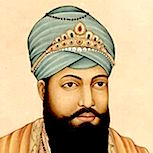
Guru Tegh Bahadur ਗੁਰੂ ਤੇਗ਼ ਬਹਾਦੁਰ
1621 – 1675 CE
Publicly beheaded by the Mughal Emperor after being tortured for many weeks because of refusing to convert to Islam, Tegh Bahadur’s father predicted when he was born, “He shall protect the weak and relieve their distress.” He sacrificed himself to protect the Hindus and Sikhs of Kashmir who were being persecuted and forced to convert to Islam and this event further condensed the Sikh community’s resolve to resist Muslim rule. He became a symbol for religious freedom and the protection of human rights while turning the tide of history for Sikhs, India and the Panjab setting the stage for a government based on social justice without prejudice based on color, caste, or religion.
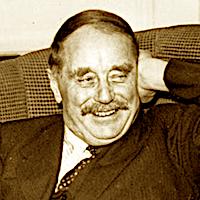
H. G. Wells
1866 – 1946 CE
A father of science fiction and One World Government apostle
Social critic, journalist, prophetic futurist, and “A father of science fiction”; Wells—a prolific writer of novels, social commentary, and history—wrote more than 100 books. He envisioned the World Wide Web, nuclear weapons, satellite television, mass surveillance, and many other un-invented but now common technologies. He also explored both the positive an negative ways of integrating them into civilization. An outspoken socialist and proponent of equality and human rights, Wells had a strong influence on his friend Winston Churchill who peppered his speeches with Wells-quotes. Nominated for the Nobel Prize in Literature four times, his influence extended to almost all modern science fiction writers. A strong believer in the need for us to become citizens of the world under a One World Government, he helped create the UN-adopted Universal Declaration of Human Rights. He worked hard on the creation of the League of Nations but disappointment with its effectiveness and inability of politicians to elevate the common-world good over their personal benefits led to his conjecture that it might be better for another species to replace humanity.

Hakuin Ekaku 白隠 慧鶴
1686 – 1769 CE
A monk at just 15, Hakuin soon became dissatisfied with the teachings available, left the monastery, began wandering and met a Taoist hermit, Hakuyu. One of the most influential figures in the Zen tradition, Hakuin included teachings from many different traditions and brought these to the illiterate. Although not beginning to paint until almost 60, he’s now recognized as one of the greatest Zen painters with works displayed in some of the world's leading museums. In a famous story, when unjustly accused of fathering a child and also when the mother later confessed to the lie and the child was taken away from him, his only comment was “Is that so?”
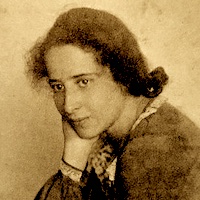
Hannah Arendt
1906 – 1975 CE
Fearless researcher into the darker reaches of the human psyche
An influential philosopher, historian, and deep thinker; Arendt developed some of the most important political theories of the 20th century. An early, 1932 critic of the Nazi Party; she was arrested the year Hitler came into power, imprisoned, escaped, and her German citizenship was taken away in 1937. Arrested again in France, she escaped again and eventually came to the USA in 1941
Influenced by and a major influence on Martin Heidegger, she studied under him and had a four-year affair when she was 17 and he 35. She also studied with Karl Jaspers who became her doctorate degree supervisor.
Her research and thinking focused on the formation of nationalistic, fascist, and totalitarian systems and how ordinary people become controlled into following them. She applied these theories in covering the trial of Adolf Eichmann for the New Yorker in 1961 which created one of the biggest controversies of the era.
Instead of accepting the common depiction of Eichmann as an evil monster, she described him as a victim of an unwillingness to think clearly and instead mindlessly take orders. This refuted the dualistic understandings and accepted ideas of the time about unquestioning obedience to superiors. These were some of the most relevant issues in preventing more totalitarian take-overs but brought about intense criticism of her from many sides.
Perhaps Jung's ideas about projection were at play here: people not seeing or admitting the pulls toward this kind of evil in themselves and projecting it out completely on Eichmann whom she described as only "banal," ordinary, fixated on the duty of obedience, and abandoning critical thinking — qualities possibly shared too closely by the critics.
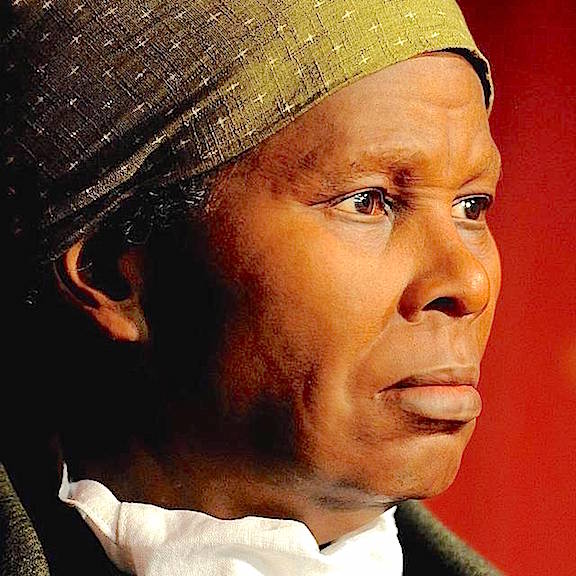
Harriet Tubman (Araminta Ross)
1822 – 1913 CE
Beaten, whipped, and escaped slave; US armed army spy, nurse and scout during the Civil War; and soon to replace on the $20 bill slave-owning Andrew Jackson who illegally broke treaties with native Americans and refused to support Supreme Court rulings in their favor; Tubman was the first woman to lead an armed war campaign (that freed 700+ slaves), used the Underground Railroad to secretly rescue over 70 slave families, found work for the newly freed slaves, and became an important part of the women's suffrage movement. A devout Christian considered by many a saint, although living in constant poverty, she never stopped her humanitarian work and is now a shining symbol for courage and freedom.
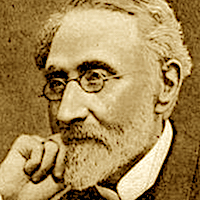
Heinrich Graetz
1817 – 1891 CE
Pioneering Jewish historian
Although Graetz became the most esteemed 19th century Jewish historian and one of the first to write a major Jewish history from a Jewish perspective, he was sued for libeling the Jewish religion and later accused of heresy. In spite of that, his history became very popular and influential. It was a ground-breaking effort and brought to the world a new interest in Jewish history. Later historians accused him of presenting a too weepy view of this history, an over-emphasis on the tragic suffering, and an ignoring of the more positive and joyful events; however, his deeply difficult and pioneering works remain.
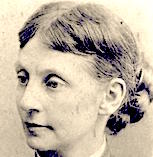
Helen Pitts Douglass
1838 – 1903 CE
Descendant of Mayflower Pilgrims, Helen Pitts Douglass was a dedicated abolitionist active in the women’s rights movement. Putting her philosophy into practice, she went against her parents, friends. neighbors and subjecting herself to both white and black scorn, married an African American, Frederick Douglass. After he died, she spent years traveling and lecturing for social justice and established the Frederick Douglass memorial now administered by the National Park Service.
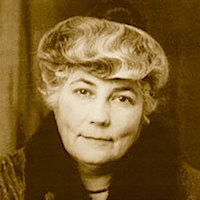
Helena Roerich Елéна Ивáновна Рéрих
1879 – 1955 CE
Theosophist, translator, archeologist, adventurous traveler to unknown inner and outer realms, founder of the Institute of Himalayan Studies, co-creator of the "Agni Yoga" practice of “Living Ethics”; Helena Roerich with her husband Nicholas fearlessly explored remote regions of Mongolia, Tibet, India, China, and the Altai regions of Russia. During these travels, they discovered rare manuscripts, enclaves of wisdom, and many insights into the cultural unity of diverse people. This led to her writing 20 books including the 1926 "Foundations of Buddhism" that helped spark an early Western interest in Buddhism. She co-authored an international treaty signed by heads of 22 countries that helped protect historical monuments, scientific and artistic institutions. A frequent correspondent with president FDR and VP Henry A. Wallace, she was at first a positive influence but then a political liability that led to Wallace’s defeat by Harry Truman.

Heleni Kazantzakis
1903 – 2004 CE
Orphaned at 15, Heleni Samiou met—and fell in love with—Nikos Kazantzakis when she was 21 and he was 41. They lived together for 20 years before marrying in 1945. Although writing several books herself and even winning literary awards, she mainly dedicated herself to supporting her husband's writing career by transcribing his manuscripts. For example, using only a small typewriter, she typed and re-typed his 33,330 verse epic poem, The Odyssey, seven times. Many of her suggestions and ideas became integral parts of his work. After Nikos died, Heleni moved to Geneva where she created a welcoming environment for literary circles, Kazantzakis fans, and Greek freedom fighters. She was persecuted by the Greek military dictatorship, captured as a prisoner of war by Turkish soldiers, and escaped with the aid of British helicopters. She donated the profits from Nikos' books as relief aid to the families of political prisoners after the Turkish invasion of Cyprus in 1974.
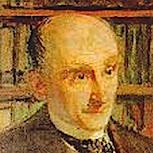
Henri-Louis Bergson
1859 – 1941 CE
The Plotinus of our era, proponent of the Lucretian tradition, awarded the 1927 Nobel prize in Literature and France’s highest honor the Grand-Croix; Bergson developed an open and nonsystematic philosophy based on mystical experience and a revolutionary concept of Multiplicity to replace dualism and Hegel’s dialectic. Close friend and collaborator with William James; Nikos Kazantzakis studied under him, his ideas on creative evolution influenced Teilhard de Chardin, and his ideas were provocative enough to be condemned by the Vatican and criticized by Bertrand Russell, Heidegger, Sartre, T.S. Eliot, Julian Huxley, Einstein, even Virginia Woolf. A Jew converted Catholic, he emphasized immediate experience and intuition over reason and science — the sense over the words.
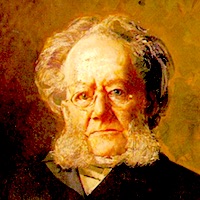
Henrik Ibsen
1828 – 1906 CE
"The world's 2nd most-performed playwright"
One of his time's most influential dramatists, Ibsen became—after Shakespeare—the world's most performed playwright. Considered a founder of theatre modernism and realism, he became on of the most influential playwrights of the 19th century. Examining the dark underside of his contemporary culture, many thought his works scandalous and they were both intensely loved and hated. The hated side forced him into poverty, self-imposed exile, and the wrath of critics. Nominated for the Nobel Prize in Literature 3 times, he became a strong influence on other influential writers like Eugene O'Neill, Oscar Wilde, Arthur Miller, James Joyce, and George Bernard Shaw. One of his plays, the 1879 A Doll’s House, became almost universally popular and was still the world's most performed play in 2006
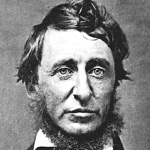
Henry David Thoreau
1817 – 1862 CE
Father of environmentalism and America's first yogi
Dedicated abolitionist, "America's first yogi," champion of nature and the natural, “father of environmentalism;” Thoreau brought a little Lao Tzu into 19th Century America. Instead of following in the pattern of his piers leading a life of “quiet desperation,” Thoreau followed much more in the Tao Te Ching’s style of Wu Wei. His non-violent approach to opposing slavery and the Mexican-American War inspired future leaders like Gandhi and Martin Luther King. Although one of America's most famous writers, during his lifetime his most famous book, Walden didn’t sell enough copies to pay for the paper it was printed on.
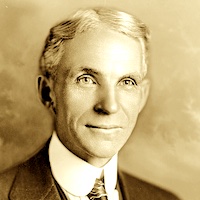
Henry Ford
1863 – 1847 CE
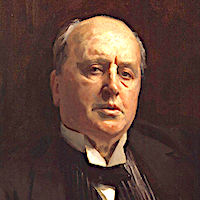
Henry James
1843 – 1916 CE
One of history’s greatest novelists, brother of William James, and 3-time Nobel Prize nominee; Henry James pioneered experimental literary techniques that deepened characters from overly simplistic caricatures to realistic depictions of ambiguity, paradox, and contradiction. Breaking from the romantic tradition of Charles Dickens, he experimented with literary styles and introduced more realism trying to involve readers more personally and influence them emotionally rather than just as distant and uninvolved observers. This attracted much criticism but also evolved literary styles to include more emphasis on psychological states of mind and the ability to inspire.
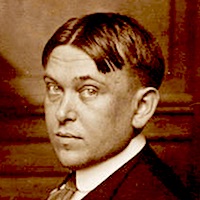
Henry Louis Mencken
1880 – 1956 CE
alt.right founding father
Racist, anti-Semitic white nationalist and alt.right founding father; Mencken was the first to publish Ayn Rand who took him as the greatest representative of her philosophy, individualism. He strongly opposed representative democracy which he described as a way for the inferior to dominate the superior. Hiding his more hate-filled and racist view in a secret diary that could not be published until 25 years after he died, he wrote influential and respected articles and books for over 40 years — influential and respected because people didn't understand the malignant foundations for his views. Revered by many writers and journalists for his insightful writing and sometimes brilliant political commentary, the National Press Club in Washington named a library in his honor and the Baltimore Sun still gives an annual writing award named after him. He was also a serious scholar well-known for his research on American language, how English is spoken in the US.
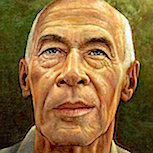
Henry Miller
1891 – 1980 CE
Banished from the UK, literary bohemian in 1930’s Paris, painter of over 2,000 watercolors, author of over 50 books (many banned for a generation), anti-Vietnam War voice, “one of the most iconoclastic literary spirits of our time,” legendary lover from Anaïs Nin to Playboy magazine star Brenda Venus when he was 84 years old; he pioneered new literary forms, attacked respectability, broke cultural taboos, and in one of the main events in 1960’s sexual revolution, won a Supreme Court decision on obscenity. Continuing a tradition from Dostoyevsky, Balzac and Nietzsche; he was an important influence on Jack Kerouac, Philip Roth, Alan Ginsberg and Norman Mailer who called him “the writer’s writer.”
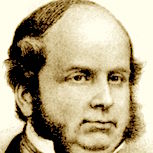
Henry Thomas Buckle
1821 – 1862 CE
“The Father of Scientific History,” son of a wealthy London merchant and shipowner, one of the world’s best chess players of his time, and winner of the first British chess tournament; Buckle was homeschooled with only one year of formal education. He loved reading, collected over 22,000 books, and taught himself eighteen foreign languages saying, “I was never much tormented with what is called education.” Though with good reason, his works were highly criticized; he pioneered an approach toward history and a scope of vision later taken up and accomplished by Will and Ariel Durant.
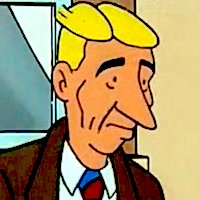
Hergé (Georges Prosper Remi )
1907 – 1983 CE
Intrepid reporter of world culture
Hergé translated world culture—from the past and future, from Native American, African, European, Mid-Eastern, South American, Chinese, and Tibetan—to a world only beginning to open its eyes to a new political and social consciousness just beginning to transcend nationalism. He created a visually engaging, highly entertaining, and wisdom transmitting art form that became one of the 20th century’s most popular publications. Although the early Tintin cartoons and books were used as propaganda by a conservative Catholic newspaper, steered away from political views during the German occupation of Belgium, and although Hergé himself was accused of racism and arrested four times; his positive impact on international consciousness steadily increased as more than 120 million Tintin books were sold and translated into 40+ languages. His travels introduced him to Asian thought which deeply influenced his message. He described his political views by quoting Chuang Tzu.
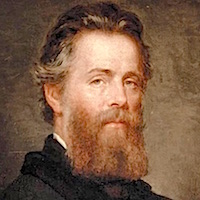
Herman Melville
1819 – 1891 CE
One of the best and most influential of all American writers but almost forgotten and unknown during the last 30 years of his life when he had to take a job as a Customs Inspector; Melville brought myth, scripture, philosophy, and mystical imagery to his haunting novels. Drawing on his adventurous ocean travels, he wrote Moby Dick which was a commercial failure and strongly criticized when first written but became a world classic described by D. H. Lawrence as "the greatest book of the sea ever written" and "one of the strangest and most wonderful books in the world.” Portraying the delicate dance between truth and illusion, the impossibility of deep and mutual communication, and the search for the absolute in the relative; his works gave a deep and powerful color to world literature.

Hermann Hesse
1877 – 1962 CE
Guiding light for a world-wide cultural transition, spiritual teacher to the Beat generation, poet at heart and in life, soul of his age; Hesse was expelled from a Protestant seminary, denounced by the German media when he protested German’s involvement during WWI, and his books were banned and destroyed by Hitler. The 20th century’s most widely read European author, his books personify the balance between freedom and equality, the individual and society and the integration of opposites extolled by the non-thought lineages. After writing Nobel Prize-winning book, The Glass Bead Game, he devoted his life to mentoring young people and collaborating with peers like Thomas Mann and Carl Jung. He wrote over 30,000 letters to hundreds of different correspondents
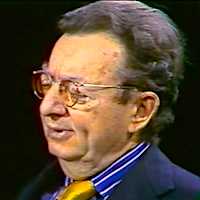
I. F. Stone
1907 – 1989 CE
One of the greatest 20th century reporters
Investigative journalist, author and political commentator; Stone's newsletter was ranked 2nd highest 20th century journalism publications and 16th on top 100 U.S. journalist works. He became a strong and influential voice against McCarthyism, the Vietnam War, and racism in the military. He graduated high school 49th in a class of only 52 students but during that time launched a 65+ year journalist career investigating corruption and exposing how "All governments lie."
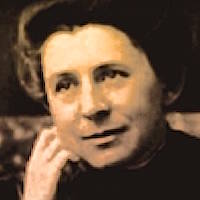
Ida Tarbell
1857 – 1944 CE
Journalist, author, teacher, and leading authority on Abraham Lincoln; Ida Tarbell invented a new kind of reporting now called investigative journalism. She developed new techniques like researching public documents scattered across the country and then, based on this research, interviewing executives, academics experts, and government regulators. With a little help from Mark Twain, she applied these new methods to an exposé on the Standard Oil Company and John D. Rockefeller who she described as viciously money-grabbing, miserly, and harming the country with his monopolizing of oil. This ushered in what’s now called the “the era of muckraking journalism,” brought down one of the world's worst tycoons, broke up the Standard Oil monopoly, and inspired a play with 686 continuous performances setting the record for any New York play.
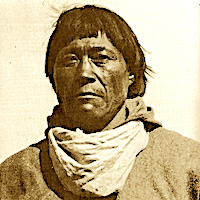
Igjugarjuk
(1885-??)
Eskimo healer, Caribou teacher, great Inuit shaman
Inuit shaman, great Caribou teacher, Eskimo healer of great wisdom; Igjugarjuk came into his powers when only a small child. His process of becoming his tribe’s shaman began with 30 days fasting alone in a tiny igloo without a blanket in a remote place where temperatures could drop to -40° F. Without lying down the entire time, he meditated and focused on only becoming a shaman which he experienced with “a fit of mysterious and overwhelming delight.” Later, teaching that the key to knowledge and power is suffering and deprivation, he led a life of “seeking for knowledge,” spirit journeys, and guiding his people. When older, he told his story to the famous explorer Knud Rasmussen who recorded it in his 10-volume series, The Fifth Thule Expedition.
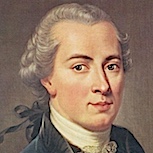
Immanuel Kant
1724 – 1804 CE
Credited with creating a paradigm shift responsible for much of modern philosophy, psychology, metaphysics, sociology, linguistics, and political theory; Kant was a quiet and introverted philosopher whose daily schedule was so precise that neighbors were said to set their watches by it. Child of the Enlightenment and father of the Romantic movement, he barely traveled but became “the central figure of modern philosophy,” inspired the American transcendentalism of Emerson and Thoreau, and a profound influence on many important thinkers like Hegel, Novalis, G. K. Chesterton, Schopenhauer, Bertrand Russell, Max Weber, Jean Piaget, and Noam Chomsky.

Inayat Khan
1882 – 1927 CE
Grandson of famous musician and “Beethoven of India,” Ustad Maula Bakhsh and married to the cousin of Christian Science founder Mary Baker Eddy; Inayat Khan joined together esoteric mysticism with the magic of music and brought Sufism to the West. He warned against any blind belief systems and inspired visions of beauty, harmony and love. He taught that nature is the only holy book, self-realization the only truth, “unswerving progress in the right direction” the only religion, and all the children of earth our only true family. He traveled widely spreading his vision of seeing through the identifications separating people and harmonizing the East and the West.
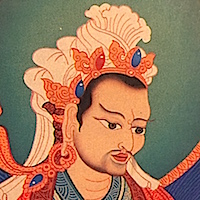
Indrabhūti ཨིནྡྲ་བྷཱུ་ཏི། ("The Enlightened Siddha-King")
892 CE –
Mahasiddha #42
Indrabhuti ཨིནྡྲ་བྷཱུ་ཏི། The Enlightened Siddha-King (late 9th century)
“The first tantrika,” archetypal tantric king, and inspiration for several tantric lineages; Indrabhuti for political reasons pledged his Buddhist sister Laksminkara in marriage to the prince of a neighboring Hindu kingdom. She went to live with the neighboring prince but soon became disillusioned with the materialism, superstition, and decadence of her new country. Late one night she fled the palace and found a cave in the mountains where she lived and practiced meditation, attained enlightenment and scandalously started teaching untouchables. This greatly upset the Hindu king but inspired Indrabhuti to do the same and leave the comfort of palace life to devote himself completely to his spiritual path. He rejected however a path that rejected sensual pleasure and sex and practiced the Guhyasamaja father-tantra in the Anuyoga Dzogchen lineage. Mahasiddha #42
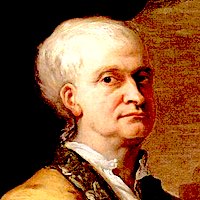
Isaac Newton
1642 – 1726 CE
Natural philosopher, mathematician, astronomer, theologian, author and physicist, and one of the most influential scientists of all time; Newton built the first practical telescope, made critical discoveries in the field of optics, developed calculus, made numerous scientific discoveries and also studied alchemy. He established science over faith as the most profound influence on modern thought and his discovery of gravitation revolutionized the study of astronomy. He established the laws of motion and mechanics that became a platform for the modern miracles of science. Exemplifying Gracian’s dictum, “All giants are really dwarfs,” stories of Newton’s absentmindedness proliferate. Asked to boil an egg for 3 minutes, he put his watch in the water and stared at the eggs. He would do things like go upstairs to change for a formal dinner but instead get undressed and go to bed. Voltaire considered him one of the greatest men who have ever lived.
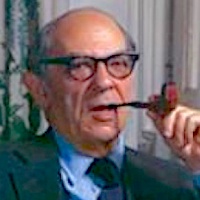
Isaiah Berlin
1909 – 1997 CE
"the world's greatest talker"
Philosopher, political theorist, translator and historian; Berlin lived in Petrograd when he was six during the Russian revolutions of 1917 and then moved to the UK. A star student, he translated famous books from Russian into English and joined the Diplomatic Service during World War II. Highly respected for his lifetime of defending civil liberties, pluralism, and liberal theory; he also became a strong and lasting voice against Communism. With penetrating insight he applied the lessons of history to modern-day problems like nationalism, totalitarianism, racism, and religious bigotry.
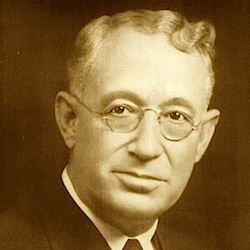
J. D. (Jake) Sandefer
1868 – 1940 CE
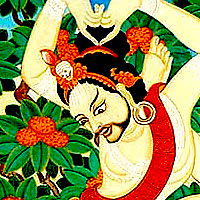
Jālandhara ཛཱ་ལནྡྷ་ར་པ། ("The Ḍākinī's Chosen One")
888 CE –
Mahasiddha #46
Jalandhara ཛཱ་ལནྡྷ་ར་པ། “The Ḍākinī's Chosen One” (late 9th century)
Another wealthy and privileged brahmin who saw through the materialistic values of his culture and renounced it to search for a more meaningful life, Jalandhara left everything to live in a cremation ground meditating. Going on to become an important mother-tantra siddha, one of the nine naths, and guru to 10 of the 84 Mahasiddhas; he founded one of the two main nath lineages (A Hindu tradition favored by Kabir that blended Shaivism, Buddhism and Yoga traditions using Hatha Yoga to transform the physical into awakened perception of “absolute reality”), taught practices that unify the male and female forces, dissolve the subject/object dichotomy, and open the non-dual doors of perception. Mahasiddha #46
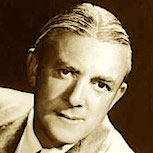
James Hilton
1900 – 1954 CE
Writer of the first paperback novel (PocketBooks #1 said to have started the "paperback revolution"), Academy Award winner, author of 22 books, and creator of the now famous "Shangri-La;” Hilton imagined, populated, and launched into our cultural consciousness his depiction of a happy and enlightened group living in a remote, secret, almost inaccessible, and secret land protecting the best of culture during a dark age. Many cultures have similar myths but his was so powerful Franklin D. Roosevelt used it as name for the presidential retreat now called Camp David and China recently renamed an entire mountain region after it. Many of his characters exemplified a deep wisdom and appreciation for doubt over belief.
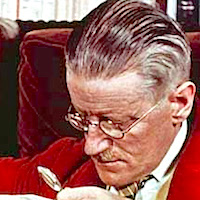
James Joyce
1882 – 1941 CE
James Joyce (1882 – 1941)
Polyphonic novelist, poet, one of the most influential 20th century writers, stream of consciousness avant-garde modernist; Joyce revolutionized modern fiction while - according to a psychoanalyst - using his writing to avoid a complete psychotic break. A huge influence on philosophers and writers as varied as Borges, Rushdie, Beckett, Robert Anton Wilson, Joseph Campbell, and John Updike; his influenced crossed over into the world of science as he became the source of the now popular scientific term, “quark..” Finnegans Wake - considered the most challenging work ever written in the English language - shines as a monument to the possibilities of creative spirit unshackled by regard for public opinion. Although considered one of the greatest novels ever written., controversy and resistance kept his novel Ulysses from being published in the USA until 12 years after it was written. His writing style and content brings out the deeper reality of situations and experiences pointing toward the sense rather than the words.
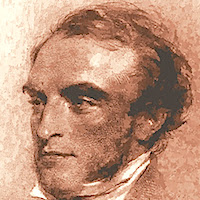
James Legge
1815 – 1897 CE
Prolific translator, editor of the first Chinese newspaper in Hong Kong, publisher of the first major volume of Chinese poetry into English, first Professor of Chinese at Oxford University, Christian missionary to China for 33 years; Legge helped translate the extensive Sacred Books of the East series, 50 volumes of Chinese classics. His purpose in this though was to provide knowledge and understanding to Christian missionaries so that they could better convert Chinese so his translations easily became corrupted by his strong sectarian point of view. In spite of these flaws, his work helped make great strides in helping “West meet East.”
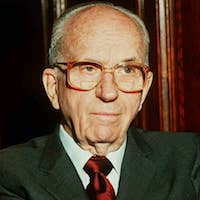
James Michener
1907 – 1997 CE
Historical and Generational Saga Master
Inspired storyteller of the human spirit, Michener created some of our most memorable fictional characters. Often writing for 12-15 hours a day for weeks and weeks, he created books that became best-sellers, movies, Broadway musicals, TV series, and a Pulitzer Prize winner. Because these books were so carefully researched, they became one of the more popular ways of learning about certain historical periods and peoples.
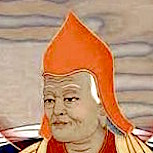
Jamgon Kongtrul the Great འཇམ་མགོན་ཀོང་སྤྲུལ་བློ་གྲོས་མཐའ་ཡས། (Jamgön Kongtrül Lodrö Thayé)
1813 – 1899 CE
Famous scholar, tertön, physician, diplomat, and co-founder of the Rimé non-sectarian, Tibetan Buddhist movement; Jamgon Kongtrul wrote more than 100 volumes of text and compiled the Five Great Treasuries. To counter the herd instinct tendency of identifying too closely with only one narrow tradition or point of view, along with Jamyang Khyentse Wangpo, he compiled the teachings of many different traditions and started the “unbiased” lineage of going to the sense, the root of realization instead of being trapped by the superficial words and identifications with narrow, sectarian, prejudiced religions, political, or cultural points of view.
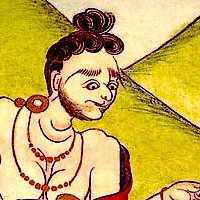
Jayānanda ཛ་ཡཱ་ནནྡ།། ("Crow Master")
11th - 12th century
Mahasiddha #58
A Tantric Buddhist master practicing in Bengal during a time when Buddhism was illegal, Jayananda was exposed by a jealous neighbor and imprisoned by the anti-Buddhist king. Before being captured though, he had befriended and fed a big flock of crows. In Tibetan culture crows are considered bad omens, capable of bringing great harm, and feared. But in a symbol of tantric transformation, Jayananda had made the crows allies. Then—metaphorically as crows or symbolically as an inclusion of the negative—the king was upended, reduced to hiding under his thrown, and as a consequence became a great and influential siddha himself. Mahasiddha #58
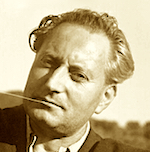
Jean Giono
1895 – 1970 CE
Jean Giono (1895 – 1970)
Son of a cobbler, one of France’s greatest writers, twice imprisoned pacifist, follower of Walt Whitman’s egalitarian pantheism, and grandfather to the modern ecological movement; Giono wrote numerous novels, short stories, articles, and poems. A master of metaphor, his masterpiece work The Man Who Planted Trees was rejected by Reader’s Digest for being too metaphoric. In response, Giorno refused any royalties, surrendered all his rights releasing it into the public domain, and gave free use to anyone who wanted to use it. Within 4 years it was translated into 12 languages and soon became a classic inspiration for everyone concerned with the environment and sustainability. An animated version won an Academy Award in 1988 and it’s considered one of the best animated films of all time.
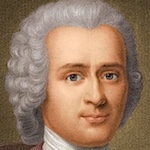
Jean-Jacques Rousseau
1712 – 1778 CE
Motherless from almost birth, abandoned by his father, poor in health and income; Rousseau wandered on his own for 12 years challenging the status quo and rejected by society as a dangerous rebel or insane criminal. Stoned by neighbors when he went for walks, harassed by police, and expelled from countries; he went on to become “the finest thinker of his time,” a main source for Jefferson and the Declaration of Independence, a cause of the French Aid for the American Revolution, and a seminal influence on Tolstoy, Wordsworth, Thoreau, Byron, Shelly, Keats, Schopenhauer, Kant, Goethe, and Marx. He transformed education, inspired the French Revolution and the Romantic Movement, wrote political and social books that became cornerstones of modern thought.
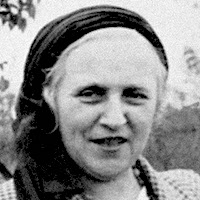
Jeanne de Salzmann (Madame de Salzmann)
1889 – 1990 CE
Follower, preserver, and promoter of Gurdjieff's teachings
Eurhythmics dance teacher, daughter of a famous architect, and married to "former dervish, former Benedictine, former professor of jui-jisu, healer, stage-designer, inventor, and the greatest of living painters," Alexander de Salzmann; Madame de Salzmann met Gurdjieff in 1919, studied with him closely, and continued promoting and organizing his teachings for the next 71 years. She founded, help fund, organized or taught in Gurdjieff Institutes and Foundations in Paris, New York City, London, Caracas, and many smaller groups in many parts of the world.
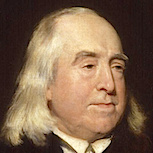
Jeremy Bentham
1748 – 1832 CE
Jeremy Bentham (1748 - 1832)
“The first patron saint of animal rights,” founder of modern utilitarianism, philosopher, and social reformer; Bentham defined “the greatest happiness of the greatest number” as a political strategy and brought the idea of welfare into modern government. A strong voice for individual and economic freedom, he worked hard to end slavery, the death penalty, physical punishment, and was the first in England to argue for decriminalizing homosexuality. He promoted equal rights for women, universal education, the separation of church and state, and animal rights. His secretary was John Stuart Mill’s father and together they tested the limits of education.
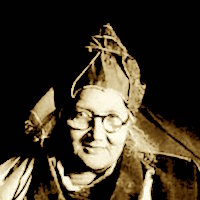
Jetsun Rinpoche, Shugsep ལོ་ཆེན་ཆོས་ཉིད་བཟང་མོ།
1852 – 1953 CE
Considered one of the most influential women in Tibetan history, personification of the great Tibetan women teachers, meditation master with more than 500 disciples; Jetsun Rinpoche when only six years old, began teaching with such insight and understanding that people were moved to tears. Radiating compassion and riding a large goat, she traveled through Tibet teaching, saving animals from slaughter with the money people gave her, and welcomed monks, nuns, laymen, women, and children. Beginning with her father who was extremely disappointed she wasn’t born a boy and later abandoned the family and continuing through her main teacher, Pema Gyatso; Jetsun Rinpoche successfully dealt with the patriarchy and sexism of her time and place.
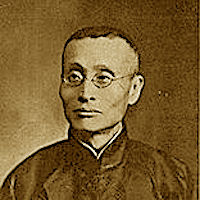
Jiǎng Wéiqiáo 蔣維喬
1873 – 1958 CE
Father of modern Qigong
Professor, politician, and father of modern Qigong; Jiang Weiqiao was desperately suffering from tuberculosis when he discovered an inner-alchemy Taoist text. Following these practices and discovering the “microcosmic orbit,” he healed himself and became inspired to share these healing benefits with more people. Rather than taking a more philosophical or religious approach, he described these practices in scientific and medical terms. This avenue freed the tradition from most of its superstitious trappings and launched a surge of modern popularity. Working for the Chinese Ministry of Education, Jiang helped modernize educational systems throughout East Asia. During this time he discovered more serious Buddhist traditions, blended these with his Taoist understanding and taught this at many colleges and universities.
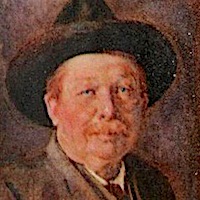
Joel Chandler Harris
1848 – 1908 CE
An outsider born out of wedlock and abandoned by his father, Harris saw the world from two points of view: from the privileged White and from the disadvantaged, under trodden but soulful Black. This led to a dual career: Joe Harris as journalist supporting racial reconciliation and North-South reconciliation as well as the Joel Chandler Harris who wrote 29 books and brought the oral African-American 'Brer Rabbit' stories and more racial respect into the mainstream culture. During the civil war, he worked for a Confederate loyalist on a plantation; but, because of his illegitimacy and red hair, felt more comfortable with the slaves and spent almost all his free time with them. His use of dialect revolutionized literature and was a major influence on Mark Twain, Kipling, A.A. Milne, Beatrix Potter, Faulkner, Ezra Pound, T.S. Eliot, and James Joyce.
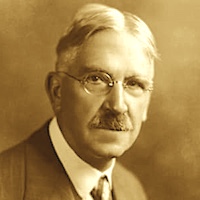
John Dewey
1859 – 1952 CE
The "Second Confucius"
American philosopher, psychologist, one of the original 34 signatories of the first Humanist Manifesto, major voice for progressive education and academic freedom; Dewey is considered the “epitome of liberalism,” “one of the fathers of functional psychology,” leading proponent of hands-on learning, and a powerful advocate for democracy. Writing 40 books and over 700 articles in 140 journals, he helped establish the NAACP, supported immigrants, and the women’s suffrage movement. He worked closely with Albert Einstein, Bertrand Russell, Karl Jaspers, Henri Bergson, Martin Buber, and George Santayana; established a college where the faculty included Buckminster Fuller, Paul Goodman, and the Beat Generation "Black Mountain Poets.” One of his students, B.R. Ambedkar, became one of the founding fathers of independent India. President of the League for Industrial Democracy, he refuted the influential Walter Lippmann views on the need to manipulate democracy by using journalism as propaganda. He lived in China during 1919-1922 giving nearly 200 lectures to thousands Chinese audiences who described him as "Second Confucius.” Returning, he gave lectures in the USA discussing the teachings of Laozi.

John Fire Lame Deer
1903 – 1976 CE
Native Americans have a unique perspective on White, American culture. While not sharing the same values and assumptions, they still live surrounded by this foreign way of life. This makes their commentaries and critiques both more accurate and more personal than those based on a more distant point of view. Lame Deer exemplifies this perspective in a vivid and articulate style – his words are well worth taking to heart.
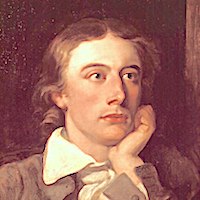
John Keats
1795 – 1821 CE
Writer of "poems as immortal as English"
One of the most popular poets of all time, Keats—in just 25 years of life—wrote what Will Durant called, “poems as immortal as English, and more perfect than Shakespeare.” Borges said that reading him was the most influential literary experience of his life, Tennyson called him the greatest poet of the 19th century, and Shelley wrote that his death was a national tragedy. He studied medicine and received a license to practice as a doctor and surgeon but chose the pure poverty of writing over financial security and social respect. During his lifetime, he published three volumes of poetry but during that time, sold only c. 200 copies. And far from foreseeing his future popularity, shortly before dying wrote, "I have left no immortal work behind me—nothing to make my friends proud of my memory.” His fame quickly grew however and his legend continues today in universities, movies, and books by authors including Dan Simmons, Tim Powers, and Julie Bozza.
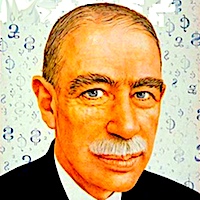
John Maynard Keynes
1883 – 1946 CE
Revolutionary economist credited with saving capitalism
One of the most influential economists of all time, founder of modern macroeconomic theory, most effective strategist in ending the great depression, and leading representative of modern liberalism; Keynes became one of the most important and influential thinkers of the 20th century. Promoting the—at the time—radical idea that governments should spend money they don't have may, he helped jump-start the world’s economies out of depression and into history’s most affluent periods. Challenging the prevalent economic theories of Adam Smith, most of the developed world adopted his theories, government policy focused on demand instead of supply, prosperity spread. Attacked by monetarists like Milton Friedman in the 1970’s his recommended policies fell from favor which led to the the 2007-8 financial crisis until they were re-adopted.
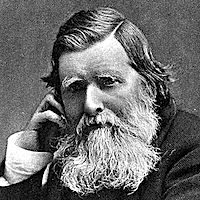
John Ruskin
1819 – 1900 CE
John Ruskin (1819 - 1900)
Strong and continuing international advocate for sustainability and protecting the environment, Christian socialist, leading Victorian era art critic, poet, philanthropist, and social thinker; Ruskin wrote over 250 manuscripts, influencing his contemporaries and many strands continuing today into modern culture. Admired by Proust, Gandhi, and Ryuzo Mikimoto in Japan; Leo Tolstoy called him, "one of the most remarkable men not only of England and of our generation, but of all countries and times.” Emphasizing the unity of nature, art, and culture; he developed principles for an ideal society which were used to set up many “Utopian Colonies.” His ideas helped found the modern Olympic Games, the British welfare state, many kind of social insurance programs, as well as the “garden city movement” that first included "greenbelts" in urban planning.

John Stuart Mill
1806 – 1873 CE
One of the most influential thinkers in history, Mill learned Greek at 3 years old, studied Euclid and Latin at 8, Plato at 10, logic and Aristotle at 12, Adam Smith and political economy at 13, chemistry and zoology at 14, and by 20 was suicidal only to be saved by the poetry and inspiration of William Wordsworth. He promoted individual freedom over state control, economic democracy over capitalism, the environment and quality of life over unlimited growth, taxing unearned income high and earned income not at all. He linked freedom with self-improvement, worked to end slavery, and was one of the first in his time to advocate equality for women.
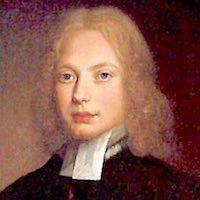
Jonathan Swift
1667 – 1745 CE
"Foremost prose satirist in the English language"
Poet, cleric, satirist, and political essayist; Swift became the most popular Irish author. His book, Gulliver’s Travels became the most popular work of Irish literature in international libraries. Although George Orwell said he disagreed with him on almost every issue, he listed him as one of his most-admired writers. Deeply involved in politics, he published many powerfully influential political pamphlets—all so provacative he had to publish anonymously or use a pseudonym.
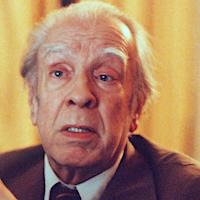
Jorge Luis Borges
1899 – 1986 CE
Literary Explorer of Labyrinthian Dreams, Mirrors, and Mythologies
Argentinian, pioneering poet, translator, librarian, lecturer, and short-story writer; Borges helped begin the magical realism style of literature. A world traveler and completely blind by the time he was 55 years old, his lack of external sight contributed to his vast and colorful worlds of imagination. He wrote many and popularized the style of writing commentaries on imaginary books and biographies of imaginary authors. A harsh critic of Juan Perón and his wife, Evita, he described in detail their private lives of corruption as well as their effective propaganda, "tales and fables made for consumption by dolts." After he died, Peronist leaders wouldn't even accept him as an Argentine.
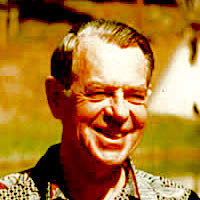
Joseph Campbell
1904 – 1987 CE
Great translator of ancient myth into modern symbols
In his prime, one the fastest half-mile runners in the world, voracious reader, 38-year Sarah Lawrence College professor; Joseph Campbell became a world-expert on mythology and comparative religion. He in part survived the Great Depression by reading 9-12 hours a day. Inspired by Krishnamurti, close friend of John Steinbeck and nutritionist Adelle Davis; he translated and interpreted our ancient and more modern mythologies into language understandable to most people. George Lucas read Campbell’s books and used his ideas in creating the Star Wars and Indiana Jones movies. They were also used in the making of Disney's Lion King, the Matrix, the Batman series, Watership Down, and the Dan Brown books.
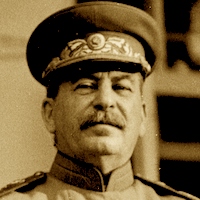
Joseph Stalin Ioseb Besarionis dze Jughashvili
1878
Powerful tyrant who used repression and violence to control almost all of Soviet
Russian life for more than 30 years
Russian revolutionary and totalitarian leader responsible for massive "ethnic cleansing," repression, the execution of hundreds of thousands of citizens, and disastrous famines. His efforts supporting Lenin included kidnapping, robbery, and protection rackets. A fierce dictator holding power in Russia for over 30 years, in 1934 he initiated the Great Purge and imprisoned more than a million people in a forced labor Gulag system that executed more than 700,000. Ruthless, cruel, vindictive, and violent; he became increasingly paranoid, a psychopath who enjoyed humiliating and degrading people. Modern historians report that Stalin caused 6 million deliberate killings including up to 90% of all the elected Russian Central Committee members of the 6th through the 17th Congresses.
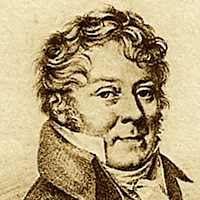
Jouy, Victor-Joseph Étienne de
1764 – 1846 CE
French Dramatist
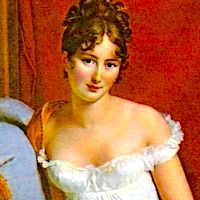
Juliette Récamier (Jeanne-Françoise Julie Adélaïde Récamier)
1777 – 1849 CE
Prototype of beauty, grace, charm, and loyal integrity
Icon of neoclassicism, prototype of beauty and grace who with “a sensuous pliancy stirred a hundred males without any known harm to her virginity,” lover of literature, patron of artists and intellectuals; Juliette led an interesting life that purportedly included marrying her father when she was 15, being exiled from Paris by Napoleon for her liberal views, losing a great fortune but remaining dignified and influential, and turning down a marriage proposal from a Prussian Prince who she deeply loved. Sex is a kind of currency that women have used throughout the ages to get what they want—food, affection, wealth, power, fame, security. Unlike money though that grows with time and interest, this particular kind of currency normally diminishes with age. Juliette however, became so adept at using this natural resource that it continued working for her in spite of old age and even blindness.

Kahlil Gibran
1883 – 1931 CE
After Shakespeare and Laozi, Gibran is the third best-selling poet of all time. His friends included WB Yeats, Carl Jung and Auguste Rodin. Elvis Presley was deeply influenced by Gibran, read passages to his mother, made notes in the margins, and gave away copies of The Prophet to his friends. Johnny Cash was also a big fan and John Lennon adapted lines from his poetry into his songs.
{Maronite Christian, Bahá’í, Sufi}
The Prophet, Sand and Foam, The Earth Gods, The Broken Wings, Love Letters in the Sand.
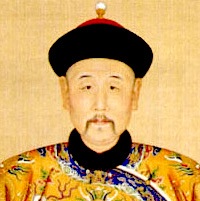
Kāngxī 康熙帝
1654 – 1722 CE
Longest-ruling Chinese emperor, consolidator of the Qing dynasty during the transition from the Ming, first Chinese emperor to play a western musical instrument, inventor of a Chinese calendar, and supporter of bringing Western technology into China; Kangxi administered the normal political and social emperor activities engaging in war, law, economics and having 56 children; but also, he thought deeply about life and realization. A skilled politician who could combine power, flexibility and tact with his Taoist/Buddhist tradition; he traveled extensively, rarely stopped talking communicating and listening to people everywhere, and brought an exceptional openness to his autobiography exposing his faults, uncertainties, and disillusionments as well as his accomplishments and insights.
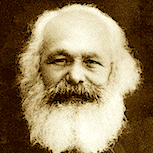
Karl Marx
1818 – 1883 CE
A journalist, philosopher, scientist, and “true founder of modern sociology” and social science; both critics and followers rate Marx as one of the most influential people in all history with a profound impact on world politics, intellectual thought, sociology and economics. A philosopher for the poor and middle classes, he described the economic conflicts of interest that alienate and polarize society between the working classes and the plutocracy. Distorted, corrupted and used by Lenin, Trotsky, Mao, and many other totalitarians; appreciated, developed, and applied by progressive political parties, labour unions, intellectuals, and artists; he brought the scientific method into politics and social theory as well as a powerful alternative to the dehumanizing aspects of capitalistic industrialization. Though questionable in many ways, his work produced a practical and powerful balancing of economic extremes, the exploitation of labor, and the corruption of politicians by the rich. Though more known for his critiques of capitalism, he also appreciated its positive impact on increased productivity, technological progress, and scientific breakthroughs.
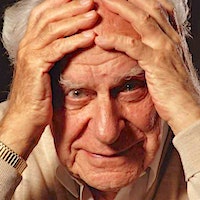
Karl Popper
1902 – 1994 CE
Major Philosopher of Science
Social commentator, philosopher, and academic; Popper grew up in an academic household. His parents were good friends of Freud's sister and his father was a true bibliophile with as many as 14,000 books in his personal library. During his student years, he became very interested and supportive of Marxism until police shot 8 of his unarmed friends. That led him to a life-long support of social liberalism and his creation of an evolved philosophy of science. One of his students—George Soros—became a philanthropic billionaire and now support a think-tank dedicated to Popper's influence. Rather than fixating on just one point of view, he worked to reconcile diverse ideas from socialism, libertarianism, social democracy, traditional liberalism and conservatism.
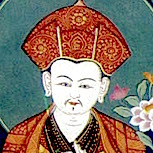
Karma Chagme Rinpoche I ཀརྨ་ཆགས་མེད་རཱ་ག་ཨ་སྱས།
1613 – 1678 CE
Considered a more modern-day mahasiddha, an accomplished scholar, and prolific writer who almost became the 9th Karmapa; at the age of 6, Karma Chagme began studying with his tantric siddha father, Pema Wangdrak, and learned magic ceremonies, geomancy, “white” and “black” astrology. He continued studying with the most realized Nyingma and Kagyu masters of his day, learned the entire cycle of Nyingma teachings, and became famous throughout Tibet while traveling for 1.5 years with the 7th Karmapa. He became a master in both the Mahamudra and Dzogchen traditions, devoted himself to Sukhāvatī practice, and became an emanation of "Red Avalokiteśvara.” His lineage continues and the current tülku lives today in the Kathmandu Valley.
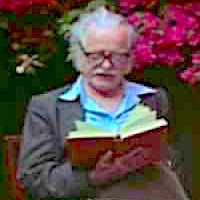
Kenneth Rexroth
1905 – 1982 CE
"Father of the Beats”
A philosophical anarchist, "Father of the Beats,” translator, Chinese scholar and translator; Rexroth introduced Allen Ginsberg to Gary Snyder, mentored Lawrence Ferlinghetti and testified on his behalf in his obscenity trial for publishing Ginsberg’s book, Howl. He appeared as a character in Kerouac’s book Dharma Bums and wrote the article on Literature for the Encyclopedia Britannica. A UC lecturer famously popular with students but cringingly infamous with administrators because of his inflammatory critiques of campus culture, he was a pacifist and conscientious objector during World War II while devotedly helping interred Japanese-Americans. His philosophy condensed into a view of society and culture as a “social lie” maintained to preserve the rich and powerful’s ability to exploit the majority
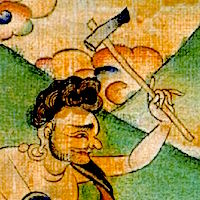
Koṭālipa ཀོ་ཊཱ་ལི་པ། ("The Peasant Guru")
1084 CE –
Mahasiddha #44
Kotalipa ཀོ་ཊཱ་ལི་པ། “The Peasant Guru” (2nd half of eleventh century)

Krishnamurti (Jiddu Krishnamurti)
1895 – 1986 CE
Born into a poor family with 11 children and a mother who died when he was 10, chosen and groomed by the Theosophical Society when he was 14 years old to become the new “World Teacher,” a messianic Maitreya and Cosmic Christ figure; Krishnamurti was showered with financial resources, reverence, publicity and followers. When still young, he renounced this role of guru and mystical belief system, disbanded the organization, and launched a teaching career that emphasized psychological rather than external revolution; going beyond philosophy, nationality, caste, religion; the sense over the words; and freedom from all social, political, or religious conceptual prisons.
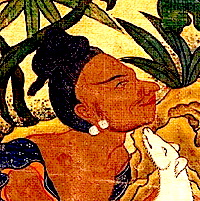
Kukkuripa ཀུ་ཀྐུ་རི་པ། ("The Dog Lover")
915 CE –
Mahasiddha #34
Kukkuripa “The Dog King” ཀུ་ཀྐུ་རི་པ། (10th century CE)
A wandering ascetic, Kukkuripa found and adopted a starving dog brought it back with him to the cave where he lived and meditated. Kukkuripa’s meditation practice took him to pleasurable, psychological god realms but memories of his dog connected him back to the real world where he saw his loyal dog sad, thin, and starving. Spurning the luxury, comfort and extravagance; he returned to the cold, dark, very uncomfortable cave out of compassion for the dog. The dog then became his teacher blending his mind-stream with the deepest insight of all the Buddhas. Naropa sent Marpa to study with him and he became one of Marpa’s most important teachers, famous for his songs of realization, and a “patron saint” for all the downtrodden and oppressed. Mahasiddha #34
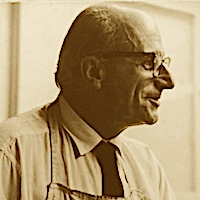
Kurt Seligmann
1900 – 1962 CE
An understanding of magic brought into the modern world
Surrealist painter, engraver, and author; Seligmann brought an openness and appreciation of mystery and magic into his art. Depicting baroque, heraldic imagery, troubadours, knights, and mythic themes; he translated his understanding of scientific magic into the visual world. During World War II, he helped artists hunted by Nazis escape from France to freedom. His art—popular with museums and collectors throughout the world—inspired an annual carnival in his native Switzerland.
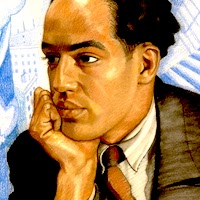
Langston Hughes
1901 – 1967 CE
Pioneering elevator of Black culture
Social activist, people's poet, author, and journalist; Langston Hughes innovated “jazz poetry,” pioneered the cultural renaissance now called “when Harlem was in vogue,” and helped establish the first department of African-American studies. Dramatically representing American culture, both of his paternal great-grandmothers were slaves and both of his paternal great-grandfathers were slave owners. Some of his other ancestors were Native Americans, Speaker of the House Henry Clay, a Jewish slave trader, and white abolitionists. A classmate of Thurgood Marshall and friend of MLK, he challenged racial stereotypes, protested negative social conditions, and elevated African American self-image in the US and around the world. Martin Luther King carefully channeled Hughes’ poems.
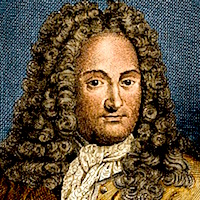
Leibniz (Gottfried Wilhelm (von) Leibniz)
1646 – 1716 CE
Polymath, philosopher, mathematician, scientist, engineer, lawyer, university president and “best-of-all-possible-worlds man”; Leibniz developed calculus, invented components that became the first calculator, and refined the binary number system that became the foundation for digital computers. His writings on law and politics and call for a European confederation inaugurated the European Union. One of the first major European intellectuals to study Chinese culture and philosophy, he read Confucius, studied the I Ching, and integrated Chinese wisdom into both his philosophy and physics. It led to his “law of continuity” that linked the nature of everyone—plants, humans, animals, both the organic and inorganic worlds—, created a theoretical foundation for evolution, and envisioned a non-dual calculus of understanding reality.
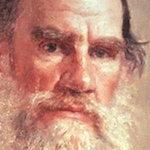
Leo Tolstoy
1828 – 1910 CE
One of the greatest authors of all time, Tolstoy’s dedication to nonviolent resistance had a deep impact on leaders like Mohandas Gandhi and Martin Luther King. His influence on education was opposed and stopped by Tsarist secret police but still became the first example of democratic education. Inspired by the Buddha, Confucius, and Chinese traditions, he was a strong Christian in a style like the early Gnostics and believed in seeing “The Kingdom of God Is Within You” rather than relying on an external church organization or priests. Excommunicated from the Russian Orthodox Church, he revived and inspired an authentic and practical Christian philosophy.
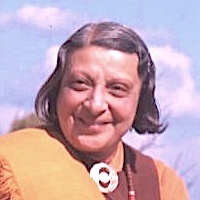
Li Gotami Govinda (Ratti Petit)
1906 – 1988 CE
Pioneering, fearless, artistic woman of wisdom
Photographer, painter, writer, composer, fearless traveler, and wise woman; Li Gotami was born into a wealthy Zoroastrian family in India, studied painting in Europe, became a close student of Abanindranath Tagore, and married Anagarika Govinda. A passionate traveler, she quickly broke out from the narrow boundaries expected of traditional Indian women. For many years, the couple lived near Kasar Devi a bohemian Mecca for their many friends—spiritual seekers like Walter Evans-Wentz, John Blofeld, Allen Ginsberg, Gary Snyder, Timothy Leary, Ralph Metzner, R. D. Laing, and Robert Thurman. Their many expeditions to Tibet included a perilous one to Tsaparang, the ancient capital Guge considered by some historians as the origin location of the Shambhala legends. Here she took photographs, did sketches, and made fresco tracings which preserve a record of how Tibet once was before the devastation of the Chinese invasion and extensive desecrations during the Cultural Revolution. In later life and in ill health, the couple moved to California where they were supported by Alan Watts and Suzuki Roshi's San Francisco Zen Center.
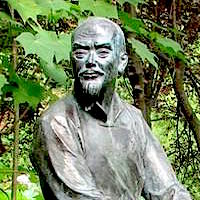
Lǐ Yú 李漁 (Li Liweng)
1610 – 1680 CE
“Artist of Living, playwright, actor, director, poet, novelist and "writer-entrepreneur;” Li Yu dropped out of the imperial exam process and instead of becoming an official traveled through China with his own acting troupe writing plays, acting and directing. A daring and creative writer described by biographers as the “most versatile and enterprising writer of his time,” he wrote the Carnal Prayer Mat which became a Chinese erotic classic, Errors caused by the Kite that endures as a Chinese opera favorite, The Arts of Living that continues its influence on practical wisdom, and translated many popular essays.

Lin Mo Niang 林默娘
970 CE –
Lin Mo Niang (silent girl) 林默娘 akaMa Zhou, Mazu, Matsu, Tian Hou (c. 970)
"Empress of Heaven,”patron of seafarers, Confucian, Taoist and Buddhist adept, rainmaker, and Fujianese shamaness from an impoverished and uneducated fishing village where no one could read; Lin Mo Niang lived during a time of mass migrations from China’s north when refugees blended their culture with her local one. Most popular today in Taiwan but banned in Mainland China, her following called Mazuism has over 1500 temples in 26 countries, and statures as high as 139’ (42.3 meters). Equated with Guan
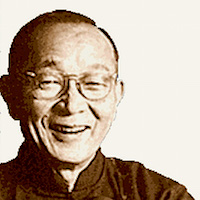
Lín Yǔtáng 林語堂
1895 – 1976 CE
One of the most influential writers of his time, translator, linguist, journalist, inventor, and nominated for the Nobel Prize in Literature; Lin Yutang worked hard to bridge the divides between East and West. He invented and built a Chinese typewriter, romanized the Chinese language, helped publish a Chinese-English dictionary, and brought Chinese culture and wisdom into the Western world’s awareness. Many of his classic Chinese translations became bestsellers helping to popularize Chinese philosophy. A prolific writer, he published magazines, wrote innumerable essays, and his books include more than 14 in Chinese and more than 30 in English. Born into a Christian minister’s family, he later studied and followed Confucianism, Taoism, and Buddhism but returned to a Christian path in his 60’s.
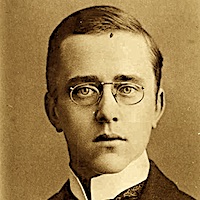
Lionel Giles
1875 – 1958 CE
Victorian "Taoist at heart"
Translator, philosopher, sinologist, and museum curator; Giles followed in his father's footsteps—Herbert Giles who co-created the famous Wade-Giles method of Chinese translation. His translation in 1910 of Sun Tzu's Art of War made monumental strides in accuracy over previous translations. Some of his other translations include The Analects of Confucius, the Sayings of Lao Tzu, the Book of Mencius, A Gallery of Chinese Immortals, and Taoist Teaching of Lieh Tzu.
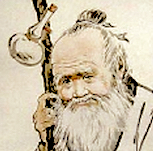
Liu Yiming 刘一明 (Liu I-ming)
1734 – 1821 CE
11th-generation Shanxi Dragon GateTaoist master, doctor, merchant, coolie, builder and main representative of the Neidan school of Internal Alchemy; Liu Yiming alternated travel, seclusion, and intense practice during his early life and then settled into teaching and writing, restoring temples, and helping poor families. He taught the unity of the ”Three Teachings" (Taoism, Buddhism, and Confucianism) and how they complement, enrich, and support each other. He described Lao Tzu’s “non-doing” (wuwei 無為) as the highest form, methods of Confucius as more practical for most people and then the Buddha’s “doing first and then non-doing” as more practical for most people.
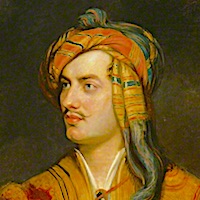
Lord Byron (George Gordon Byron)
1788 – 1824 CE
The first rock-star style celebrity
One of the best English poets, Greek national hero, first modern "rock-star" celebrity, revolutionary, politician, and major Romanticism influence; Lord Byron became renowned for a flamboyant bisexuality during a time when this was highly illegal. A major influence in the Romantic movement and close confidant of Percy Bysshe Shelley, he was known as "mad, bad, and dangerous to know." During his lifetime considered the greatest poet in the world; his fame continues throughout the world in 36 different Byron Societies, in over 40 operas, in his poetry set to music by Beethoven, Schubert, Schumann, Berlioz; and through the legacy of his daughter, a founding force in the first computer programming efforts.
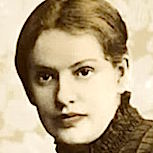
Lou Andreas-Salomé
1861 – 1937 CE
Daughter of a Russian general, icon for 20th century equality-gaining women, erotic pioneer, psychoanalyst student of Sigmund Freud, author of more than 12 books including the first published works on Friedrich Nietzsche, major influence on 19th century intellectual circles, lover and confidant of Rainer Maria Rilke, close friend and/or lover of Nietzsche who she refused to marry, philosopher Paul Rée, Leo Tolstoy, and Boris Pasternak. One of the first female psychoanalysts, in spite of being persecuted by the Nazis and her library destroyed by the Gestapo, she lived a life of intense creativity, freedom, and independence far beyond the status quo of her time.
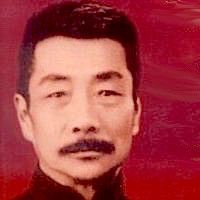
Lǔ Xùn 鲁迅 (Zhou Shuren; Lusin)
1881 – 1936 CE
Insightful satirist representing the "Literature of Revolt"
From an impoverished background, Lu Xun rose to become one of modern China’s most popular and influential writers. He was highly admired by Mao Zedong who called him "the saint of modern China" and the "chief commander of China's Cultural Revolution” but who also misquoted his words, purged his followers, suppressed the intellectual openness and penetrating political insight that Lu Xun represented, and said that if he was still alive, he would have stopped writing or gone to jail. A prolific translator and biting satirist, his works are established classics still popular today, required reading in both Chinese and Japanese schools but were banned in Taiwan for almost 50 years. A penetrating social critic often compared to Nietzsche, he was a "champion of common humanity,” an amplifier and translator of ancient wisdom into modern idiom.
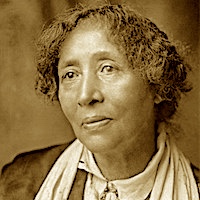
Lucy Parsons (Eldine Gonzalez)
1853 – 1942 CE
Political activist “more dangerous than a thousand rioters”
Born a slave to Native-American/African-American/Mexican-American parents; Lucy became a powerful orator, American radical activist, founder of the Industrial Workers of the World, and labor union organizer. She married a newspaper editor and former Confederate soldier—Albert Parsons—but had to quickly leave Texas because of interracial prejudice. In Chicago they became involved in the labor movement and helped organize a peaceful rally striking for an eight-hour day. An unknown person threw dynamite at police but several organizers including Albert were blamed and executed. This became a galvanizing event on the entire world’s labor movements as well as inspiring Lucy and an active life into her 80’s described by police as, “more dangerous than a thousand rioters.”
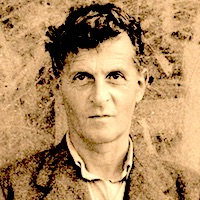
Ludwig Wittgenstein
1889 – 1951 CE
One of the world's most famous philosophers
From one of Europe's most wealthy families, Wittgenstein inherited a vast fortune and then—believing that money hinders philosophy—gave it away to artists, writers, and to his brothers and sisters. One of the world's most famous philosophers, he worked incognito teaching in remote Austrian villages and in hospitals during World War II. He kept most of his writings unpublished until after his death when his books like Philosophical Investigations became recognized as some of the most important books of 20th century philosophy. His strong influence continues today in almost every field of social sciences and the humanities.

Madame Curie (Maria Salomea Skłodowska)
1867 – 1934 CE
The first woman to win a Nobel Prize, to win one twice, and the only person ever to win the Nobel Prize in multiple sciences; Madame Curie’s work was “epoch-making” - a huge influence shaping modern times. Though revolutionizing physics and chemistry, she maintained her honesty and moderate life style often refusing honors, insisting monetary awards be given to institutions rather than to herself, and (like Ben Franklin) refusing to patent many of her inventions so that they would be more widely available. Albert Einstein said she was most likely one of the only people in the world who could not be corrupted by fame.
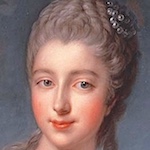
Madame de Pompadour (Jeanne Antoinette Poisson)
1721 – 1764 CE
Called by Will Durant “One of the most remarkable women in history” as “the most cultured woman of her time” and by Voltaire “one of us,” Madame de Pompadour as chief mistress of Louis XV became a brilliant governor of France, protector of Voltaire, savior of Diderot’s Encyclopedie, patron to Rousseau, Montesquieu, and the “Age of Enlightenment” in general. Excommunicated by the Catholic Church and the “Queen of Rococo,” she supported philosophy, literature, music and art as porcelains, hair styles, dresses, chairs, ribbons, beds, and dishes were named after her. Beautiful, charming, and intelligent, she led France to its highest artistic influence on European civilization as well as making her country much stronger economically and politically.
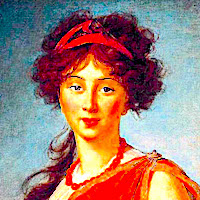
Madame de Staël (Anne Louise Germaine de Staël-Holstein)
1766 – 1817 CE
"The greatest woman of her time"
Powerful political advocate, “first woman of Europe,” fascinating conversationalist, "Napoleon's Nemesis," and preeminent authoress of the time; Madame de Staël inspired and encouraged the political opposition to the Reign of Terror and later to Napoleon and was banished for her efforts. A potent influence on European Romanticism and persuasive advocated of liberty, she sponsored and led salons, wrote novels, and important speeches. Praised by Tolstoy, her political influence advanced representative government, constitutionalism, and women’s rights. Her opposition to dictatorship brought her into intense conflict with Napoleon and she was considered—along with England and Russia—one of the 3 main forces against him. Struggling with opium addiction and suicidal depression, a close friendship with Juliette Récamier enabled her to continue and become—in Macaulay’s phrase—“the greatest woman of her time.”
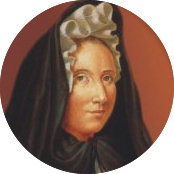
Madame Guyon Jeanne-Marie Bouvier de la Motte-Guyon
1648 – 1717 CE
Madame Guyon, Jeanne-Marie Bouvier de la Motte-Guyon (1648 - 1717)
French mystic, key advocate of Quietism, strong influence on the Quakers and other anti-materialistic Christian traditions; Madame Guyon was widowed at 28 having already borne 5 children. Advocating the ‘prayer of quiet’ and interior realization - teachings of Teresa of Avila and John of the Cross - she ran afoul of the Roman Catholic Church’s emphasis on believing in only external authority, was branded a heretic, and imprisoned in the Bastille for 7 years. Praying all the time and finding her God in every detail of life, she exemplified belief in basic goodness, the sacredness of all experience, and a genuine, European, Wu Wei tradition.
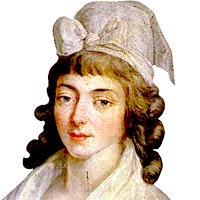
Madame Roland (Marie-Jeanne Phlippon)
1754 – 1793 CE
Revolutionary heroine
Sole survivor of her mother’s 8 pregnancies, Madame Roland became a revolutionary heroine and one of the mainspring influences of the French Revolution. A student of Plutarch, Voltaire, and Rousseau; her clear intelligence, wisdom and drive made her the equal to any of the contemporary politicians proving the capabilities of women in the political realm. Her drive, focus, and radiant intelligence made her the equal in accomplishments of any contemporary male politician. Sacrificing her life for her political beliefs, she died by guillotine during the French Reign of Terror with the famous words, “Oh Liberty, what crimes are committed in thy name!”. Her memoirs written in prison became a testament to the possibility of balancing freedom and equality as well as evolving potentials for a woman’s place politics.
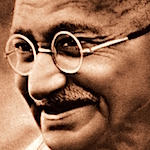
Mahatma Gandhi
1869 – 1948 CE
Mahatma Gandhi (1869–1948)
Leader of India’s independence movement, non-violent civil disobedience advocate, major inspiration for Martin Luther King Jr. and Nelson Mandela; Gandhi followed in his Jain tradition of fasting, meditation and vegetarianism. After an arranged marriage at 13, he studied law in England but was so introverted and shy, he froze during his first cross-examination and couldn’t say anything. Not being able to find work in India, he moved to South Africa where in a Rosa-Parks type moment was thrown off a train for refusing to move to the back. This led to his lifetime passion for fighting prejudice, discrimination, and injustice – political change in S. Africa, Indian independence, and many attempts to establish peace between Hindus and Muslims.
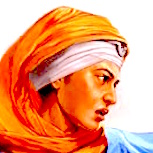
Mai Bhago Kaur
late 1600s - mid 1700s
Listed by the BBC as one of the 3 most badass women in history, the first Punjab woman to fight on a battlefield, and a Sikh saint; Mai Bhago was ingenious and heroic in battle when extremely outnumbered fighting against a large Mughal army. She inspired the male warriors with her bravery, and - dressed as a man - became Guru Gobind Singh’s body guard until he died in 1708. She tirelessly fought against the caste system, tyranny, and prejudice but after being injured in battle, she withdrew into a life of meditation and lived to a peaceful old age. Her spear is still honored in a Sikh museum.
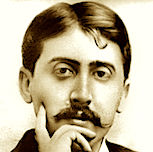
Marcel Proust
1871 – 1922 CE
Apostle of Ordinary Mind
Apostle of ordinary mind, the “Proustian moment,” and one of the world’s greatest novelists; Proust never worked a job, suffered ill health his entire life, lived with his parents, and spent his last years in bed sleeping all day and writing all night. W. Somerset Maugham called his 3200-page novel, In Search of Lost Time the "greatest fiction to date” and - a huge influence on modern writers - it’s Michael Chabon’s favorite book, in lists of top 10 greatest books of all time, and called "the most respected novel of the twentieth century." Abandoning dramatic action and complicated plot, his novels evoke the sacred in the commonplace, wonder and magic of ordinary experience, and propose art in everyday life as the true meaning of life deeper than all fame, fortune, pleasure, power, or even love.
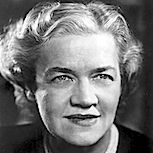
Margaret Chase Smith
1897 – 1995 CE
Called by Khrushchev "the devil in disguise of a woman,” Chase was the first woman to serve in both houses of the US Congress, as chair of the Senate Republican Conference, and the first to be placed in nomination for the presidency. Though an independent Republican, she deeply respected John Kennedy, voted against Nixon proposals, and led the opposition against demagogue Joe McCarthy. She strongly supported civil rights, Medicare, increased educational funding, and the NASA administrator said without here they wouldn’t have been able to land a man on the Moon.
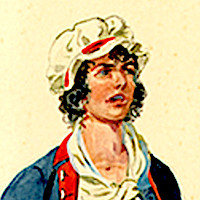
Margaret Cochran Corbin
1751 – 1800 CE
Early American hero
A gruff, smoking, antagonistic camp follower, nurse, and American hero; Margaret Corbin became the first U.S. woman to receive a military service pension. When only 5 years old, her father was killed when their home was raided by Native Americans and her mother taken never to return. This began a difficult life presenting numerous challenges that she enthusiastically and quickly met. In order to join her husband in battle, she dressed like a man and accompanied him to his posts. She took his place firing a cannon when he was killed and continued until she was too injured to continue and lost use of her left arm for life. Her fellow-soldiers called her “Captain Molly” and praised her cannon-firing skills. The highest-honored woman of the Revolutionary War, she was buried with full honors in the West Point cemetery and a monument was built for her.
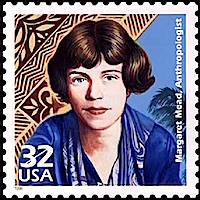
Margaret Mead
1901 – 1978 CE
Cultural anthropologist, creator and exemplar of the Jewish mother stereotype, feminist movement cornerstone, husband of Gregory Bateson, mother of Mary Catherine Bateson; Margaret challenged prevailing views about race and intelligence, about traditional sexual mores, about the false identifications that seemingly separate human unity by fixating on visible but insignificant cultural displays. Her work significantly advanced the evolution of a one-world vision and the importance of us all becoming “citizens of the world.” President Jimmy Carter awarded her the Presidential Medal of Freedom in 1979.

Mark Twain (Samuel Langhorne Clemens)
1835 – 1910 CE
America’s most famous author
Riverboat captain, adventurer, bankrupted businessman, inventor, and America’s most famous author; Mark Twain, with his wit, wisdom, insight, and humor influenced and continues to positively influence the world. A strong supporter of women's, religious, racial, and labor rights; he wrote scathing indictments on war, patriotic, and religious bigotry and published new work in 3 different centuries. Though disliked by his wife Livy, his book The Adventures of Huckleberry Finn ranks among history’s all time best. Ernest Hemingway said, ”All modern American literature comes from one book by Mark Twain called Huckleberry Finn.”
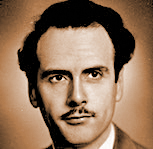
Marshall McLuhan
1911 – 1980 CE
The most controversial and most publicized 20th century English professor, philosopher, founding father of media theory study, visionary “global village” describer who 30 years before it was invented predicted the WWW and coined the term "surfing;” Marshall McLuhan was a popular figure in the 60’s but soon forgotten until the internet proved his predictions and confirmed the ever-increasing cultural influence of technology on culture, business, psychology, and politics. Inspired by G. K. Chesterton to become a Roman Catholic, he credited the Virgin Mary for giving him intellectual guidance. Warning against the dangers of ignoring the consequences of new inventions, his deep historical insights into how new technologies in the past influenced culture give a strong foundation for his analysis of current and soon-to-come technology leading to a “global theater,” a collective identity, "electronic interdependence" ending individualistic print culture, and the creation of a new, global, and ”tribal base.”
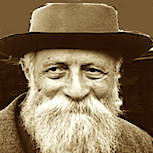
Martin Buber מרטין בובר
1878 – 1965 CE
Influential philosopher, educator, and political activist; Buber challenged materialistic thinking and promoted a deep interpersonal respect and appreciation. Like most of the people in these biographies, he warned against belief systems and advocated a conceptless-mind and open-hearted experience of the world. He inspired Jewish cultural renewal, developed an educational model based on the whole person, and supported a bi-national Israeli-Palestinian state. Related to 16th century rabbi Meir Katzenellenbogen, Helena Rubinstein and Karl Marx; he challenged Hegel, Kant, Kierkegaard and Nietzsche. Not considering Jewish culture or religion necessary, he was criticized by Jewish scholars for this as well as emphasizing direct experience above Jewish law.
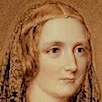
Mary Shelley
1797 – 1851 CE
Caught between her famous father’s Enlightenment political theories (William Godwin) , her famous husband’s allegiance to the ethos of Romanticism (Percy), and her famous mother (Mary Wollstonecraft) who is considered a founder of feminist philosophy; Shelley’s work promoted Taoist-like values emphasizing collaboration over competition, compassion over personal gain, the true civilizing role of the feminine principle. Her novel, Frankenstein foreshadowed our modern era and how easily we can become enslaved and manipulated by our inventions. A voice against superstition and dogma, her books became a beacon for the era of Romanticism, liberal politics, and gender equality.
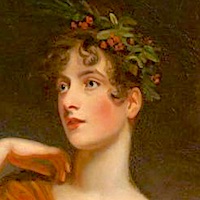
Mary Wollstonecraft
1759 – 1797 CE
Seminal feminist
Founding feminist philosopher, wife of anarchist forefather William Godwin, and mother of famous writer Mary Shelley; Wollstonecraft was one of the first in the West to advocate for women’t equality and rights. She wrote and spoke against the prevailing view that women are inferior to men and argued that women only appear inferior because of a lack of education and opportunity. Although stridently criticized by her contemporary writers and for 100 years by most believing ‘no self-respecting woman would read her work,’ she was a foundational influence on Jane Austen and scholars have traced her ideas in Pride and Prejudice, Sense and Sensibility, and as a character in Persuasion. Her influence expanded with rise of feminism in the 1960s and 1970s and continues today.

Matsuo Bashō 松尾 芭蕉
1644 – 1694 CE
The most famous poet of the Edo period in Japan and still internationally renowned and recognized as the greatest master of haiku, Bashō left his samurai status, urban fame and fortune to wander throughout Japan writing poetry. During periods of history in Japan, criticizing his poetry was considered blasphemous and many of his poems are reproduced on monuments. Some scholars believe he invented haiku and his verse greatly influenced Ezra Pound, the Imagists, and Beat Generation poets.
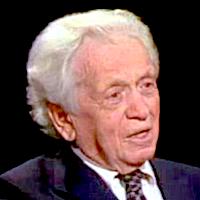
Max Lerner (Maxwell Alan)
1902 – 1992 CE
Journalist, professor, humanist, and controversial cultural commentator; Lerner supported Roosevelt’s New deal, fought against racial discrimination, and gained a high place on Nixon’s hate list. He mainly supported progressive causes but went along with the internment of Japanese Americans during World War II and backed Ronald Reagan. Untied to unthinking political dogma, he was considered a controversial liberal during the 50’s and 60’s but more conservative during the 80’s. A close friend of Elizabeth Taylor, he worked on antiwar efforts, taught at Harvard, Sarah Lawrence, Wellesley, Brandeis, and wrote for the New York Post, the New Republic, The Atlantic, Saturday Review, and many other publications. He applied his dedication to personal responsibility in a struggle with lymphatic cancer which he won and described in a book, Wrestling with the Angel.
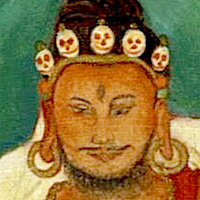
Mekopa མེ་ཀོ་པ། ("Guru Dread-Stare")
1050 CE –
Mahasiddha #43
Mekopa, མེ་ཀོ་པ། Guru Dread-Stare (11th century)
Always cheerful and kind Bengali food merchant taken as a student by a yogin customer, Mekopa saw into the vastness of his own mind, the uselessness of chasing desires, and harmfulness of action based on duality. His realization led him far beyond the limits of status quo, conventional social standards and behavior; into a lifestyle unbound by concern for people’s opinion, wandering about a cremation ground “like a wild animal” and into towns like a mad saint with dreadful, staring eyes. Mahasiddha #43
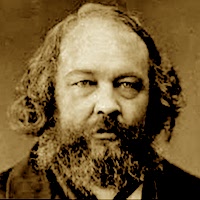
Mikhail Bakunin
1814 – 1876 CE
Romantic rebel, revolutionary anarchist, founding father of modern socialism
Revolutionary anarchist, famous ideologue, and founder of collective anarchism; Bakunin promoted anti-authoritarian Socialism which put him at bitter odds with Marx and his followers who wanted to establish authoritarian people's states. This philosophical disagreement grew into a bitter hatred, a slander campaign by Marx, Bakunin's exile and 12-year imprisonment. When his warnings about Marxist states becoming one-party dictatorships proved prophetic, his influence regained credence and his influence spread into modern times through thinkers like Noam Chomsky, Kropotkin, Herbert Marcuse, Neil Postman, and A.S. Neill becoming—in many ways—more influential than Ma
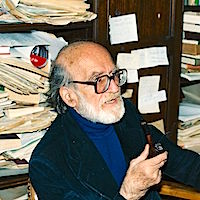
Mircea Eliade
1907 – 1986 CE
Theologian of the Sacred, philosopher, professor, historian of religion, journalist who “never read newspapers,” and novel writer; Eliade became one of the most influential interpreters of religious experience. As a very conservative youth, he supported far right ideologies; but, during his later life, this support shifted toward the non-Marxist Left and the hippie youth movement. Although an admirer of Gandhi and non-violence, he was accused of antisemitism and support of fascism. He was identified with far-right politics but fired from a University position because of an attack by the far-right press. His theories and descriptions of religious experience (in particular hierophanies and the “Eternal Return”) established paradigms for religious studies still accepted today.
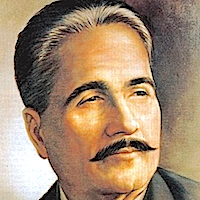
Muhammad Iqbal محمد اقبال
1877 – 1938 CE
Muhammad Iqbal محمد اقبال (1877 – 1938)
"Spiritual father of Pakistan,” politician, "Poet of the East,” scholar, ‘Sage of the Ummah,”and one of the most important figures in all of Urdu literature; Muhammad Iqbal was knighted by King George and praised by US Supreme Court Associate Justice William O. Douglas though also condemned by Western leaders because of his anti-capitalist views. In 1930 he proposed the creation of a Muslim state in Northwest India, and is now considered the ideological founder of Pakistan as well as a main inspiration for the Iranian Revolution. Fighting hard against racial, religious, national social and all forms of oppression, inequality, and discrimination; he promoted democracy, humanism, peace and friendship.
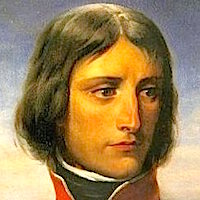
Napoleon Bonaparte
1769 – 1821 CE
Napoleon Bonaparte (1769 – 1821)
Called by historians everything from a megalomaniac worse than Hitler to an enlightened monarch responsible for creating some of the best political and legal systems in the modern world; Napoleon became a French general when only 24, a national hero at 26, and – attributing his success to meditation - one of the most successful commanders in all of history. Father of the European common market, his Napoleonic Code became a foundation for legal systems used today by 1/4 of the world's population, 70+ countries in Europe, the Americas and Africa. Inspired by the liberal vision of the French Revolution, he helped end feudalism, encouraged science and the arts, institutionalized equality before the law, property and religious rights, meritocracy, and our modern educational system. Excommunicated by the Catholic Church, he abolished the Spanish Inquisition and emancipated from ghettos Jews and Protestants in Catholic countries, Catholics and Jews in Protestant countries.
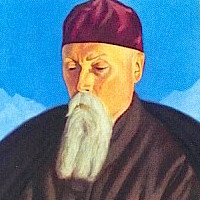
Nicholas Roerich Никола́й Константи́нович Ре́рих
1874 – 1947 CE
Artist, lawyer, archaeologist, theosophist, “enlightener,” and Shambhala pilgrim; Roerich blended mystical understanding with practical work in the world. He actively worked to save art and architecture during wartimes and was nominated for the Nobel Peace Prize many times. Envisioning a future that replaces war and materialism with a flourishing culture of beauty, wisdom and compassion; he established the first modern ecological research station and foresaw the dissolution of isolated, independent countries and the emergence of a Shambhala-like world government. Friend, sponsor, teacher, collaborator with many of the most influential leaders of his day; the list includes Vice President Henry A. Wallace, Ernest Hemingway, Charlie Chaplin, Franklin D. Roosevelt, Gandhi, and Nehru.
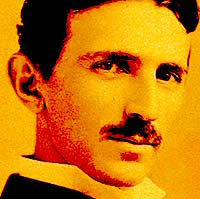
Nikola Tesla Никола Тесла
1856 – 1943 CE
Nikola Tesla, Никола Тесла (1856 – 1943)
Prototype of the “mad scientist,” engineer, futurist, poet, philosopher, linguist, humanist, close friend of Mark Twain, and son of a Serbian Orthodox priest; Tesla and his development of the induction motor helped tip the scale in the “War of Currents,” the AC vs. DC power struggle between Edison and Westinghouse. This made him instantly very rich but he soon spent everything on developing new inventions and he often lived in hotels sneaking away without paying the bills. He invented systems for wireless lighting which didn’t make money but created the foundation for wireless applications used today. He spoke 8 languages, invented radio remote control, a steam-powered oscillating generator, helped design the Niagara falls power system, took the first X-ray image, and received almost 300 patents in 26 countries.
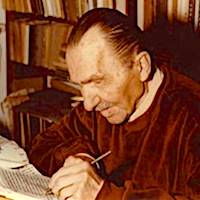
Nikos Kazantzakis
1883 – 1957 CE
Fearless philosopher, poet, translator, prolific writer, and spiritual alchemist; Kazantzakis was condemned by the Catholic Church and the Orthodox Church wouldn’t even let him be buried in a cemetery. He followed in the Zen/Taoist tradition of synthesizing opposites and reconciled Buddhism and Christianity, philosophy and politics, sensuality and a spiritual path. An extensive traveler in both the east and west, he was given the International Peace Award and made great contributions to culture beyond nationalism, religion, and sectarian view.
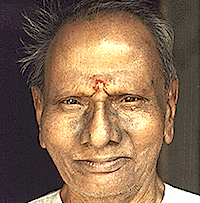
Nisargadatta Maharaj
1897 – 1981 CE
Householder guru of non-duality
Nisargadatta Maharaj (1897 – 1981)
An Indian Guru of nondualism from a householder lineage; Nasargadatta began in life by opening a small store that mainly sold beedis (leaf-rolled cigarettes). He soon expanded this into a string of eight retail shops, married, and had 4 children. After meeting a guru and practicing a sadhana, he traveled across India alone until he realized that "nothing was wrong anymore,” returned home and stayed there maintaining his business and teaching. His exposure greatly expanded when North American and European followers discovered him but he remained unseduced by materialism and continued living in the most simple and unassuming way.

Novalis
1772 – 1831 CE
Poet, philosopher, mystic and civil engineer, Novalis (Georg Philipp Friedrich Freiherr von Hardenberg) only lived 28 years but in that short time still managed to condense his insight and poetic wisdom influencing Emerson, Hermann Hesse, Rilke, C.S. Lewis, Borges, and through George MacDonald, Tolkien, Mark Twain, GK Chesterton, Madeleine L'Engle. the Inklings, and the entire fantasy genre in literature.
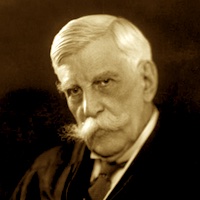
Oliver Wendell Holmes Jr.
1841 – 1935 CE
Game-changing Supreme Court Justice
One of America’s most respected and influential judges of all time, Holmes still holds the record for the oldest Supreme Court Justice. His family was close friends with Henry James Sr. and Ralph Waldo Emerson; he became close friends with William James and Henry James Jr. His often-cited, penetrating comments supported civil liberty, freedom of speech, and progressive, democratic ideals. His legal opinions formed the foundation for Roosevelt’s New Deal.
His book, The Common Law (still in print after more than 140 years), remains a source for heated debates. Opposing attitudes based on opinions about any kind of absolute truth, it describes law as an evolving process based on the changing attitudes and insights of society.
Appointed to the Supreme Court by President Theodore Roosevelt, he became one of the greatest judges but disappointed and alienated Roosevelt when he ruled against an anti-trust case particularly close to him. He approved trade unions and their ability to organize and strike, supported eugenics laws, and earned a reputation as 'The Great Dissenter.'
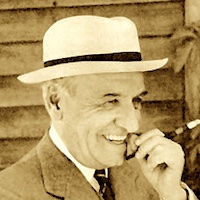
Ortega y Gassett, José
1883 – 1955 CE
Spanish philosopher, historian, and essayist
A professor of Philosophy, Ethics and Logic during his early life, he later began publishing newspaper essays which quickly made him internationally famous. He then branched out into politics supporting socialist candidates but because discouraged by the support for Franko who he strongly opposed. He also opposed the the Spanish Conservative Party, the Spanish monarchy and the Catholic Church but historians still consider him anti-democratic and conservative — a not surprising dichotomy about someone so against rigid belief systems and conformity, someone dedicated to his dictim, "I am me and my circumstance."
Blending another common dichotomy, fate vs. freedom, he explained how fate determines the number of possibilities we have while freedom offers us the possibility of choosing between them creating our own "destiny" instead of hiding behind roles, cultural identities, and conventional ways of living our lives.
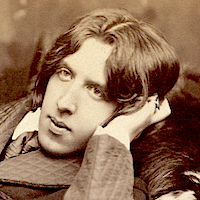
Oscar Wilde
1854 – 1900 CE
Oscar Wilde (1854 - 1900)
Prolific Irish poet, writer, journalist, and one of the most successful playwrights of his time; Wilde rebelled against his moralistic, Victorian environment with an “unequivocal inclination toward the unconventional” favoring passion and sensual pleasure. Strongly influenced by his teacher, John Ruskin, he transformed his more hedonistic tendencies into deep social concerns and wrote against decadence, duplicity, and libel. Married and with two sons, his writings went against popular opinion by describing women as creative and intelligent. His liaisons with men however led to a trial for homosexuality, incarceration, a severe injury in prison after collapsing from illness and hunger, and later death in extreme poverty. In many ways, his life seems to have exemplified his famous aphorism, “No good deed goes unpunished.”
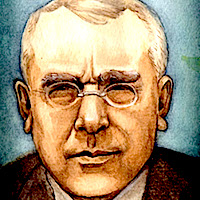
Ouspensky Пётр Демья́нович Успе́нский (Pyotr Demianovich Ouspenskii)
1878 – 1947 CE
Close student, popularizer and critic of Gurdjieff; Ouspensky explained ways to discover the sense beneath the words (“the actual meaning of the thing itself") with a psychological method he described as "a calibration of the tools of human understanding.” Though not religious, he kept one prayer—to at least not during his lifetime become famous. That prayer was granted but he still had a deep impact on many famous people like T. S. Eliot, Aldous Huxley, and many influential writers, psychologists, and journalists. Championing "the esoteric method,” he evolved a philosophy that expanded beyond the Aristotelian logic of A = A to include a more Taoist/Buddhist understanding that A = A and A = not-A. The Buddhist influence extended to his version of mindfulness practice which he described as “being aware of being aware.” His books and influence helped launch what today is called Secular Buddhism but also many New Age versions of spiritual materialism.
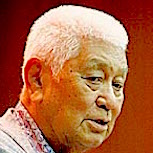
Papa Henry Auwae
1907 – 2001 CE
Although learning herbal knowledge from his from his 107-year-old great-great-grandmother and understanding the use of over 2,500 herbs, how to harvest and ways to use them; Papa Henry Auwae – deeply steeped in Hawaiian culture and spirituality – taught that all true healing is 80 percent spiritual and must treat the whole person. Growing up in Hawaiian schools where he was punished for speaking Hawaiian, he graduated from the University of Hawaii, became a healer for over 40 years treating everything from AIDS to broken bones but refused to take money for his services.

Paul Carus
1852 – 1919 CE
The Teachings of Lao Tzu
Self-described as “an atheist who loved God,” Paul Carus was one of the first Americans with a serious interest in Buddhism. He saw Taoism and Buddhism as complementary and published 75 books and 1500 articles on social issues, history, science, religion, politics, logic, anthropology and mathematics. He worked closely with D. T. Suzuki and corresponded with thought-leaders of his time like Tolstoy Thomas Edison, Nikola Tesla, and Booker T. Washington. He defined his philosophy as, “everything is fraught with life; it contains life; it has the ability to live” and promoted a “Religion of Science,” interfaith dialog, and a “cosmic religion of universal truth.”
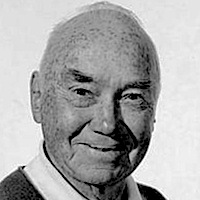
Paul Reps
1895 – 1990 CE
Author, artist, and early Western haiku poet; Paul Reps became a major welcoming influence for Zen coming to America

Pearl Buck
1892 – 1973 CE
Growing up and living in China as the daughter and wife of Christian missionaries, Pearl Buck described their arrogance and manipulation arguing against the benefit of missionaries and an institutional church. Denounced in China during the cultural revolution and prevented from visiting with Richard Nixon, she wrote 60+ books, won a Pulitzer, and became the first American woman to win the Nobel Prize for Literature. Long before they became popular or safe positions, she publicly challenged gender and racial discrimination while founding the first interracial and international adoption agency that placed over 5000 “unadoptable” children.
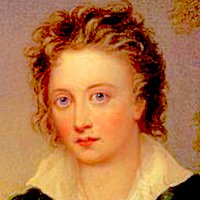
Percy Bysshe Shelley
1792 – 1822 CE
Another culture-transforming sage not recognized or appreciated during his lifetime, Shelley became regarded as one of the English language’s premier poets and transformers of political and social culture. A major influence on Thoreau's views on non-violent protest, political action, and his book, Civil Disobedience; he also inspired Karl Marx’s economic theories, Leo Tolstoy’s approach to non-violent resistance, Mahatma Gandhi, Martin Luther King Jr., and the world’s various Civil Rights Movements. During his 29-year life, most publishers became too afraid of being arrested to publish his work and his readership remained small and underground. From his tiny seed, however, our modern, humanistic culture sprouted.
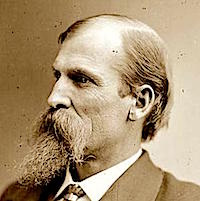
Powell Clayton
1833 – 1914 CE
Powell Clayton (1833-1914)
Politician and diplomat, US senator, governor, ambassador to Mexico, Civil War general, and Radical Republican; Clayton fought against the Ku Klux Klan, worked to establish free public schools in Arkansas for the first time, and for his efforts was impeached.
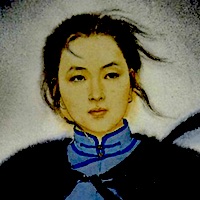
Qiu Jin 秋瑾
1875
"China’s Joan of Arc"
Feminist revolutionary, poet, Chinese national heroine, "Woman Knight of Mirror Lake"; Qiu Jin became a famous and inspiring historical martyr. Involved in a secret society working to overthrow the corrupt Qing Dynasty, she studied martial arts, wore Western male clothes, joined Sun Yat-sen's revolutionary group, and while in Japan edited a popular journal. She wrote and eloquently advocating women's right to education, to choose their own husbands, and the abolishment of foot binding. Her challenge to China’s entrenched patriarchy led to her—when only 31 years old—arrest, torture, and beheading.
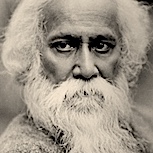
Rabindranath Tagore
1861 – 1941 CE
Author, painter, “the greatest poet India has produced,” and song writer of over 2000 songs including the national anthems for India, Bangladesh, and Sri Lanka; Tagore was the first non-European to win the Nobel Prize in Literature. A universal internationalist, he was strongly against nationalism and introduced Indian culture to the West as well as Western culture to India. A close friend of Gandhi, he renounced his British knighthood and gave voice to the deeper wisdom within all strata of society: rich and poor, powerful and humble.

Rainer Maria Rilke
1875 – 1926 CE
Profound singer of universal music
One of the most popular and best-selling poets of all time, a Catholic who believed that Jesus had a baby with Mary Magdalene, secretary to famous sculptor Rodin, lover and confidant of married Sigmund Freud student, psychoanalyst, and Nietzsche’s love focus, Lou Andreas-Salomé; Rilke’s mystical writings are still frequently quoted on TV, in movies, music, and self-help books. Taking art as religion and the only source of human redemption, he reconciled dichotomies like life and death, suffering and joy, beauty and destruction unifying opposites and finding deep meaning is all experience. He described god as nature, life force, and an evolving consciousness only slowly coming into existence. Hermann Hesse wrote that “through him resounds the music of the universe.”
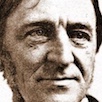
Ralph Waldo Emerson
1803 – 1882 CE
Champion of individualism
Friend and mentor to Henry David Thoreau and godfather to William James, Emerson championed individualism as a counterbalance to society’s conformist pressures. He wrote what Oliver Wendell Holmes considered America's “Intellectual Declaration of Independence” and he summarized his philosophy as “the infinitude of the private man.” The most influential writer of 19th-century America, he was called “the Concord Sage” and became the leading voice of intellectual culture in the United States influencing American religions to become more gnostic, less fundamentalist and conservative.
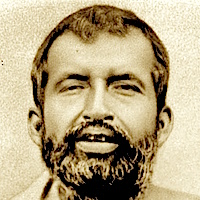
Ramakrishna
1836 – 1886 CE
Ramakrishna Paramahamsa (Bengali: রামকৃষ্ণ পরমহংস (1836 – 1886)
Indian mystic, yogi, inspiration for the 19th–20th century Bengali Renaissance; Ramakrishna became a strong revitalizing influence on Indian culture. His "social service gospel,” disciples like Vivekananda, and organizations do major philanthropic work in education, health care, disaster relief, rural management, and in eliminating tribal welfare. Steeped in Hindu philosophy and practices, he also initiated into and practiced Islam and did the same with Christianity teaching ‘All religions as true.’ His impact on thought leaders extended from names like Gandhi and Nehru to westerner ones like Tolstoy, Dvorak, and Philip Glass.
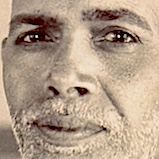
Ramana Maharshi
1879 – 1950 CE
A modern advocate in our non-thought lineage, Ramana Maharshi taught extensively but like Mahākāśyapa insisted in silence as the purest teaching, self-enquiry as the main spiritual method, and never publicized himself as a guru. Worshipped by thousands, he never claimed to have disciples and treated everyone with equal respect, never accepting private gifts. Somerset Maugham used him as the model for the guru in his book, The Razor’s Edge. He was a symbol for India that engendered a respect for their own culture and traditions that inspired independence from Britain.
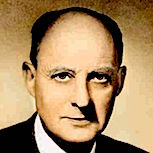
Reinhold Niebuhr
1892 – 1971 CE
Composer of the Alcoholics Anonymous Serenity Prayer, author of a nonfiction book ranked in the top 20 of the twentieth century, "the most influential American theologian of the 20th century,” leading political and cultural commentator for over 30 years; Niebuhr challenged religious conservatives as narrow-minded, religious liberals as naive and taught a middle-way “Christian realism.” Barack Obama’s "favorite philosopher" and a deep influence on Thomas Edison, Jimmy Carter, Martin Luther King Jr., John McCain, and given the Presidential Medal of Freedom by Lyndon Johnson; one of his books was called, "the most important book ever written on U.S. foreign policy.”
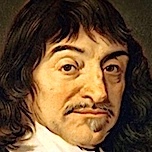
René Descartes
1596 – 1650 CE
Though remaining a Catholic, solidifying the dualistic view in Western thought as well as “Cogito ergo sum” belief in a separate self; Descartes emphasized methodic doubt and the impossibility of externally based intellectual certainty undermining faith in belief and Church doctrine. This sparked a thought revolution that created the modern era. He developed analytic geometry (using x, y, and z for unknowns) and using superscripts for powers or exponents, discovered the law of reflection, and the basis for the development of calculus. Known as the “father of modern philosophy,” he changed the course of Western philosophy and his influence continues to this day.
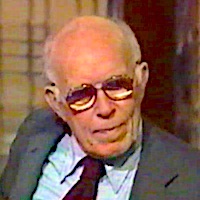
René Dubos
1901 – 1982 CE
Influential scientific environmentalist
Microbiologist, leading humanist and influential environmentalist; Dubos wrote 32 books including a Pulitzer Prize winner. Creator of the famous phrase, "Think Globally, Act Locally," he empowered and entrusted individuals, local, and small organizations making needed changes rather than relying only on large, impersonal, and out-of-touch institutions. He argued that only local, small-scale organizations can clearly see and respond to their "unique physical, climatic, and cultural contexts." He balanced this sentiment, however, with an emphasis on need for communication with a world order conscious of environmental priorities. While not ignoring our immense global challenges, he conveys an optimistic, positive, and realistic approach.
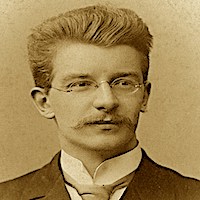
Richard Wilhelm
1873 – 1930 CE
Translator bridging East and West
Theologian, missionary, early sinologist, and personal friend of Carl Jung; Wilhelm gave us two culturally transformative translations: the I Ching and The Secret of the Golden Flower. He moved to China as a young man and lived there for 25 years. During that time, he met a sage driven out of his hermitage by the revolution—Lau Nai Suan who introduced him to the philosophy of Chinese yoga and the I Ching's psychology. This meeting and his studies produced a bridge between east and west but also a deep conflict within Wilhelm between consciousness and unconsciousness, between his Christianity and eastern philosophy.
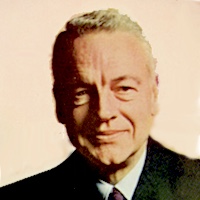
Robert Hutchins (Robert Maynard Hutchins)
1899 – 1977 CE
An educational philosopher whose time has arrived; Robert Maynard Hutchins was University of Chicago president, Yale Law School dean, Editor In Chief of the Great Books of the Western World, and a leading proponent of secular perennialism—nonspecialized and nonvocational
education based on discovering the “sense” rather than relying on just the words, on principles not just facts. Encouraging deeper understanding, prioritizing thinking for ourselves, and attacking superficial focus on entertainment and the narrow “trade school” approach to education; he eliminated varsity football at the University of Chicago and implemented novel educational programs based on the Great Books and Socratic dialogue. In later life he ran the Ford Foundation and channeled huge sums into programs for adult education, to train teachers, and to spread liberal arts. One of these became PBS.
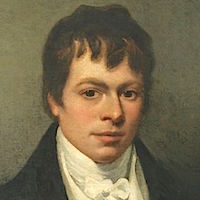
Robert Burns
1759 – 1796 CE
Tenant farmer, tax collector, "The Greatest Scot of all time,” people's poet of Russia, political radical, and writer of one of the wold’s most popular songs (Auld Lang Syne); Burns celebrated everyday life, farming, culture, religious practices, and love. Father of at least 13 children (most born out of wedlock) with at least 5 different women, his affairs were unencumbered even by loves who inspired some of the best love songs ever written. Far beyond it’s place as favorite US New Year’s Eve song, Auld Lang Syne is sung all over the world, was the Korean and Maldive national anthem, popular graduation song in Japan, and sung by troops in the American Civil War and during World War I.

Robert Louis Stevenson
1850 – 1894 CE
Humanist, social and political critic, poet, composer of over 120 complex musical works, 26th most translated author in the world; Stevenson grew up in a religious family of engineers frail, sickly, and alienated. His father once said, "You have rendered my whole life a failure.” Fiercely criticized by Virginia Woolf and early literary critics but praised by Borges, Proust, Arthur Conan Doyle, Hemingway, Kipling, Jack London, and Chesterton; he now ranks alongside Henry James and Joseph Conrad. In spite of physical frailty, he traveled widely and supported his writing with hard labor and a frugal lifestyle often surviving long periods living on less than 40¢/day. He saw himself, his time, and culture with a rare self-clarity that cut to the deep basic goodness manifesting in his unforgettable characters.
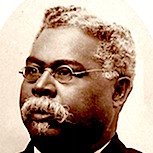
Robert Smalls
1839 – 1915 CE
In a dramatic escape from slavery, Smalls commandeered a Confederate steamer during the Civil War, disguised himself in the captain’s coat, picked up the families of his fellow slave sailors, and made a mad dash for a Union blockade where they were welcomed as heroes. He later helped recruit over 5000 blacks to help in the North’s war effort, served as a captain in the US Navy. After the war he returned to South Carolina, bought his former master’s house, served in the US House of Representatives, founded the Republican Party of South Carolina, and authored the state legislation that gave his state the first US free and compulsory public school system.
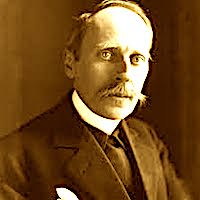
Romain Rolland
1866 – 1944 CE
“The moral consciousness of Europe”
Novelist, historian, dramatist, and mystic; Rolland had a subtle but profound influence on his time. Hermann Hesse dedicated his book, Siddhartha to him and Rolland’s influence shines out through those pages. A student of Swami Vivekananda his understanding and appreciation of Eastern mysticism became an important influence on his friend, Sigmund Freud who began his book, Civilization and its Discontents with a discussion of Rolland’s description of an "oceanic feeling.” Addressing social ills through art and theater, he wrote and staged plays like The Time Will Come, a pacifist drama that explores the cause and effect relationship between capitalism and imperialism as well as exposing the evils of concentration camps and and the inhumane treatment of enemy civilians. He won the Nobel Prize for Literature in 1915.
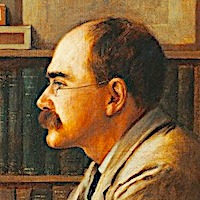
Rudyard Kipling
1865 – 1936 CE
Greatest—in-English—short-story writer
Journalist, poet, novelist, major short story writing innovator, youngest and first Englishman to receive the Nobel Prize in Literature; Kipling was born in India and quickly became one of the most popular prose and verse writers of his era. Accused by critics of racism, misogyny, and imperialism; George Orwell believed that Kipling sold his soul to the British, colonial establishment and he did support a military figure responsible for a massacre. A contemporary Indian writer said he had a much better understanding of animals than of the Indian people he wrote about. However, his fame endures, his children’s books remain popular classics, his poetry is still being recorded, his adult fiction is still in print, and his deep influence on Scouting movements continues.
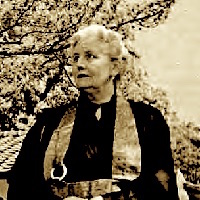
Ruth Fuller Sasaki
1892 – 1967 CE
First foreigner to become a priest in a Japanese Rinzai Zen temple, only woman yet to be a Daitoku-ji temple priest, and pioneering welcomer of Buddhism into the USA; Sasaki was an early student of yoga and Eastern philosophy during the 1920’s. She translated herself and—supervising a team including Gary Snyder—initiated many of the first translations of important Zen texts into English. Student of D. T. Suzuki, mother-in-law to Alan Watts, married to Zen master Sokei-an; she created places for people to practice, provided texts, and helped open the door for most of the early American Zen practitioners.
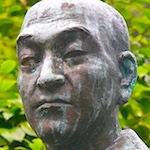
Ryokan 良寛大愚 (Ryōkan Taigu,“The Great Fool”)
1758 – 1758 CE
One of the most popular personalities in all of Japanese history, neither priest or lay person, “unthinkably kind” but strict practitioner, saturated with enlightenment yet calling himself “The Great Fool;” Ryōkan was a scholar, calligrapher, and poet yet spent his time with ordinary people. He took no disciples, gave no sermons, took no positions, and spent his time begging, playing with village children, writing and speaking some of the East’s best poems that bridge the gap between understanding the words and understanding the sense. Non-sectarian, a critic of institutional power and professionalism, and startlingly honest, today Ryōkan is a true Japanese national hero familiar to almost every child and respected by young and old, rich and poor, powerful and humble.
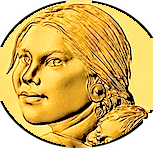
Sacagawea
1788 – 1812 CE
When 12, kidnapped and claimed by a rival tribe after a battle, when 13 won as 2nd wife by a gambling trapper, when 17 hired as guide and translator by the Lewis and Clarke expedition; Sacagawea traveled thousands of difficult miles sometimes surviving on only candles but saving and assuring the expedition’s success while opening communication with many isolated groups and spreading understanding. Immortalized in the names of rivers, mountains, parks, and trails; on a US 1$ coin, in literature, and in music from Phillip Glass to Stevie Wonder; she was considered a hero and taken as an example of strength, independence, and self-worth by the Women’s Suffrage Association.
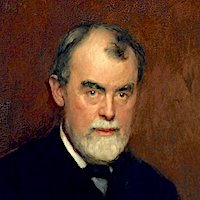
Samuel Butler
1835 – 1902 CE
Iconoclastic philosopher, artist, composer, author, and evolutionary theorist
Friend and student of Charles Darwin, serio-comic satirist, champion of small-is-beautiful everyday experience; Butler composed Handelian-style cantatas and piano pieces, painted works of art hung in London museums, and translated the Iliad and the Odyssey that he believed were written by a Trojan and by a Sicilian woman. In his book Erewhon, crime is considered a disease while disease and physical imperfections are considered crimes. Aldous Huxley thought Butler's ideas transformed Western culture's attitudes toward crime, technology, and 'progress'.
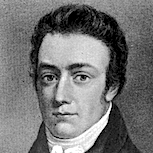
Samuel Taylor Coleridge
1772 – 1834 CE
One of the most influential English poets, co-founder of the Romantic Movement, prominent philosopher, gothic pioneer and leviathan impact on Mary Shelley, William Wordsworth, Thomas Carlyle, Emerson and American transcendentalism; Coleridge paid for his renown with poor health, depression, bipolar disorder, and a lifetime of opium addiction. Rescuing Shakespeare’s play Hamlet from denigration by critics, he established his reputation as aliterary critic. The instigator of "Conversational Poetry,” using common, everyday language to convey deep images and wisdom, he coined many still-used words like soulmate, selfless, pessimism, relativity, narcissism, actualize, and intensify
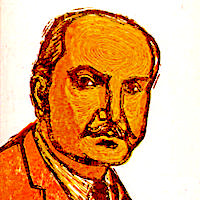
Santayana, George (Jorge Agustín Nicolás Ruiz de Santayana y Borrás)
1863 – 1952 CE
Powerfully influential, true-to-himself philosopher/poet
Poet first, philosopher second, novelist, Harvard dropped-out professor, Christian-atheist, free-thinking cultural critic; Santayana mixed his poetic genius with deep, philosophic insights; beauty with truth. Born in Spain, he brought an old European flavor and aristocratic appreciation to his new but temporary American homeland saturated with the idealism and individualism of Emerson and Thoreau. Many of his aphorisms have progressed from words of wisdom to cliché to truism. ("Those who cannot remember the past are condemned to repeat it") Professor to students like T. S. Eliot, Robert Frost, Gertrude Stein, Walter Lippmann, W. E. B. Du Bois, Conrad Aiken, and Supreme Court Justice Felix Frankfurter; major influence on thought-leaders like Bertrand Russell and Alfred North Whitehead; Santayana’s influence on awakened evolution continues
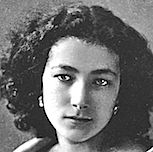
Sarah Bernhardt
1844 – 1923 CE
“One of the finest actors of all time”
“The most famous actress the world has ever known", “one of the finest actors of all time,” “first international entertainment icon,” and “notorious liar;” Sarah Bernhard acted and sang for over 60 years starring in many of the earliest films ever made. Admired by everyone from Sigmund Freud to Mark Twain to Czar Alexander III, her mother was a prostitute and Sarah forged a birth certificate to claim French citizenship. Expelled from her first acting school for slapping a fellow actress, Sarah became mistress to a Belgian prince, to a famous courtesan, and slept in a coffin to better understand tragedy. During a war she converted her theatre into a hospital and took care of wounded soldiers.
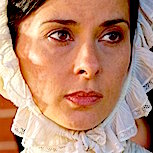
Sarah Grimke
1792 – 1873 CE
Going against her SC Supreme Court chief Justice father who held hundreds of slaves and opposed women’s rights, Sarah supported Abraham Lincoln and her writings fueled and inspired the beginning of the women’s suffrage movement. When she was 5 years old after watching a slave whipping, she tried to leave her state and find a place without slavery. Breaking the law, she taught a slave to read, taught slaves Bible lessons, and against the culture secretly advanced here own "unwomanly” education. One of the first women public speakers in America and under constant criticism and attack, she wrote the first serious essay advocating equality for women and became the first American woman working to end slavery.
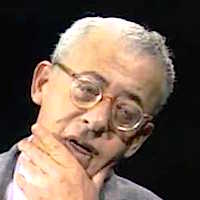
Saul Alinsky
1909 – 1972 CE
Saul Alinsky (1909 – 1972)
“Founder of modern community organizing,” “creator of a backyard revolution in cities across America,” champion of the poor and powerless; Alinsky became a strong influence on Cesar Chavez, Hillary Clinton, Barack Obama and Dolores Huerta but his methods and strategies were also studied and used by Tea Party organizers. Dedicating his own work to improving the living conditions in poor communities, he was active in the labor movement, poverty alleviation across the USA, in black ghettos, and California barrios. Reviled and banned by establishment politicians but admired and imitated by counterculture-era organizers; he was described by William F. Buckley Jr. as an “organizational genius,” by Adlai Stevenson as “a most faithfully reflect[ion] our ideals of brotherhood, tolerance, charity and dignity of the individual,” and according to Time magazine he “altered democracy.”
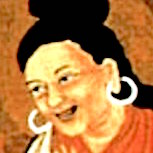
Shabkar Tsokdruk Rangdrol ཞབས་དཀར་ཚོགས་དྲུག་རང་གྲོལ།
1781 – 1851 CE
Prolific writer said to have written over 300 pages per day, famous lama, and student of the Mongolian king Chögyal Ngakgi Wangpo; Shabkar literally means “white feet,” a name given to him because his presence was so inspiration that it wherever he placed his feet became full of virtue and realization. Considered a reincarnation of Milarepa, he spent most of his life in retreats and composed “an ocean of songs.”
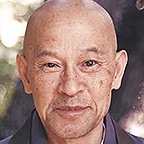
Shunryu Suzuki Roshi
1904 – 1971 CE
In completely in harmony with Lao Tzu, Suzuki Roshi’s teachings, possibly more than almost anyone else – and without saying so – brought a clear understanding of the Tao Te Ching into our modern world. In Japan, he had to deal with the rigidity and aggressiveness of his war time country. He came to San Francisco in 1959 and flourished during the height of the counter-culture influencing poets, artists, religious leaders (like Alan Watts and Chogyam Trungpa), and founded the first Zen Buddhist monastery in the West.
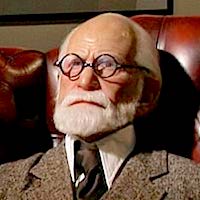
Sigmund Freud
1856 – 1939 CE
Dismissed and laughed at because of his more outlandish theories, it’s too easy to overlook Freud’s many deep insights. Founder of psychoanalysis and inspiration/influence for many of the important psychologists who came after him including Jung, Adler, Erich Fromm, Wilhelm Reich, and Fritz Perls; he developed many techniques and understandings for treating mental illness—ideas like free association, transference, the Oedipus complex, repression, libido, a theory of the unconscious, and an id-ego-super-ego psychic structure. Fromm—though critical in many ways—described Freud (along with Marx, and Einstein) as an "architect of the modern age,” believed he permanently changed the way we understand human nature, but thought psychoanalysis quickly became corrupted. Although such a famous name today, during his lifetime Freud shared some of the obscurity common to most history-changing people. His influential book, The Interpretation of Dreams (1900) only sold 351 copies during the first 6 years after publication.
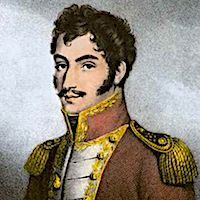
Simon Bolivar Simón Bolívar
1783 – 1830 CE
El Libertador
Major image in Latin American identity, military strategy genius, and liberator from Spanish rule of Venezuela, Bolivia, Colombia, Ecuador, Peru, and Panama; Simón Bolívar became the major hero in the 19th century South American independence movements. Inspired by the idealism of the American and French Revolutions, he fought against factions, created foundations for democracy in Latin America, envisioned and worked toward a kind of United States of South America. These efforts however mainly failed, countries devolved into dictatorships, and Bolivar was almost assassinated. He described these attempts at union a failure and only “plowing the sea.” On the other hand, his legacy remains strong with major monuments to him in the capital cities of Lima, Buenos Aires, Havana, México City, Panama City, Paramaribo, San José, Santo Domingo, Sucre, Algiers, Ankara, Bucharest, London, Minsk, Moscow, New Delhi, Ottawa, Paris, Prague, Port-au-Prince, Rome, Tehran, Vienna, and Washington DC.
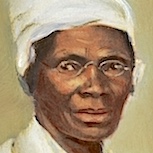
Sojourner Truth (Isabella (“Bell”) Baumfree)
1797 – 1883 CE
Born into slavery and now listed in the “100 Most Significant Americans of All Time,” Sojourner escaped with her infant daughter, went to court trying to get her son back and became the first black woman to win a case like this. She traveled extensively promoting the abolition of slavery, helped recruit black troops during the Civil War and tried to get land grants for freed slaves after the war. A powerful women's rights activist and friend of Susan B. Anthony, she gave one of the most famous speeches on women's rights and is considered a saint by both the Episcopal and Lutheran churches.
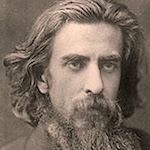
Solovyov
1852 – 1900 CE
Model for Dostoyevsky's characters Alyosha and Ivan in The Brothers Karamazov, major philosophical inspiration for numerous writers from Leo Tolstoy to Rudolf Steiner, Solovyov blended Hellenistic, Buddhist, Kabbalistic, early Christian and Gnostic traditions into a philosophy of Sophia as the merciful unifying feminine wisdom of God evolving consciousness and religion. This philosophy tried to reconcile all bodies of knowledge and understanding in a common ground of absolute unity reconciling all opposites, contradictory ideas, traditions and peoples. Called by the press either a Protestant, Jew, Catholic, rationalist, mystic, or nihilist; he defied categories including place and stable career spending most of his life wandering without a home.
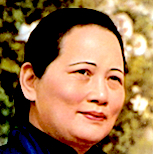
Soong Ching-ling (Madame Sun Yat-sen)
1893 – 1981 CE
The "mother of modern China,” wife of Sun Yat-sen, a Vice President of China and Honorary President of the People's Republic of China; Soong Ching-ling makes up an important part of one of history’s most famous and influential sets of sisters. Daughters of an American-educated Methodist minister/banker, one sister - a power in herself - married the leader of the Kuomintang, Chiang Kai-shek; another married the Chinese finance minister and because the richest woman in China. Soong Ching-ling stayed in mainland China and held important government positions but was persecuted during the Cultural Revolution.
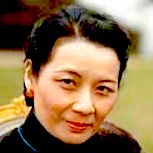
Soong Mei-ling 宋美龄 (Madame Chiang Kai-shek)
1897 – 2003 CE
Called by Life Magazine the "most powerful woman in the world,” by Ernest Hemingway the “empress” of China, and compared by Clare Boothe Luce to Florence Nightingale and Joan of Arc; Soong Mei-ling lived during 3 different centuries, was the Republic of China’s first First Lady, Sun Yat-sen’s sister-in-law, wife and political partner to Chiang Kai-shek. She worked hard fighting against the Japanese invasion of China, toured the USA trying to get support, and started extensive welfare projects and schools for orphans, and worked on many attempts to heal China’s political divisions.
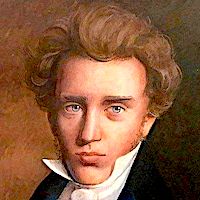
Søren Kierkegaard
1813 – 1855 CE
"The first existentialist philosopher"
Poet, theologian, social critic, philosopher and religious writer; Kierkegaard became a major influence on contemporary world culture. In the world of psychology, he founded Christian, humanistic, and existential schools inspiring therapists and theorists like Viktor Frankl, Carl Rogers, Erich Fromm, and Rollo May. In the field of literature, he influenced and inspired authors like Jorge Luis Borges, Hermann Hesse, W. H. Auden, Franz Kafka, Rainer Maria Rilke, J.D. Salinger and John Updike. His theological/philosophical influence extended to Martin Buber, Karl Jaspers, and Martin Heidegger. Kierkegaard emphasized experience over theory, personal life over "herd instinct," and Christianity as love rather than organization and dogma.
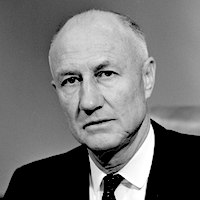
Strom (James) Thurman
1902 – 2003 CE
White Supremacist Hero
Thurman dedicated most of his 48 years as a South Carolina senator fighting against civil rights and racial equality. In 1946 after South Carolina police blinded Black World War II veteran, Isaac Woodard, President Truman proposed legislation to desegregate federal contracting but Thurman led the Southern Racist attempt to stop this by forming the “Dixiecrat” party dedicated to racial segregation.
Before the first civil rights legislations was signed into law by Dwight Eisenhower (The Civil Rights Act of 1957), Thurmond inflicted the longest filibuster by a senator on the the senate floor by speaking 24 hours and 18 minutes. He voted against the 1964 Civil Rights Act, the 1965 Voting Rights Act; and, when Goldwater ran for president, Thurman switched parties becoming Republican and leading the five Deep South states to do the same. In 1968, Richard Nixon made a deal with Thurman promising to not let the federal government enforce Black rights in exchange for Thurman political help which he enthusiastically gave.
Hypocritically, Thurman—after secretly having a daughter (Carrie "Tunch" Butler) with a 15-year-old Black girl—continued his career focusing on cementing white supremacist policies into the fundamentalist Republican strategy. Infamous for regular acts of sexual harassment, he went a little too far when in 1994 at age 91 he attempted fondling the breast of fellow Senator Patty Murray who he hadn't recognized.
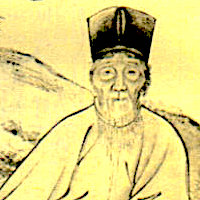
Sun Qifeng 孫奇逢
1583 – 1675 CE
孫奇逢 (1583–1675)
Professor, poet, respected scholar who passed the imperial exams at only 13 years old, and one of the most famous masters of Confucian ethics; Sun Qifeng helped China transition from the Ming to the Ching dynasties. Critical of the Ming control by eunuchs, he followed the neo-Confucian philosophy but emphasized its practicality, the concept of basic goodness, and the importance of nourishing goodness. Often invited to take prestigious governmental offices, he refused preferring a quite life of study. A precursor of—and inspiration for?—Arnold Toynbee, he looked at the rise and fall of dynasties (as well as individual success and failure) through the lens of the I Ching and left a treasury of books including popular commentaries on the Four Books, biographies of 11 famous, Confucian masters, and the history of 146 philosophers and their teachings.
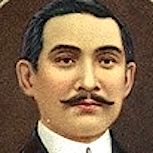
Sun Yat-sen 孙逸仙
1866 – 1925 CE
The Republic of China’s founding father and first president, physician, revolutionary, co-founder of the Kuomintang, and uniquely admired by both Taiwan and Mainland China; Sun Yat-sen grew up in Hawaii and after returning to China endured many exiles and almost constant political struggle. He championed the “Rule of Right over the Rule of Might” and dedicated his life to furthering democracy in China, free trade, tax reform, poverty alleviation, independence from foreign influence, and ethnic equality. He set up the first Chinese Central bank and the foundations for Chinese capitalism.
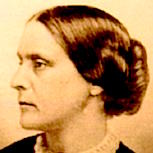
Susan B. Anthony
1820 – 1906 CE
Harshly ridiculed, accused of trying to destroy marriage and the family, arrested for voting; Susan B. Anthony started working to end slavery as a teenager and later ran the largest petition drive against it. Giving up to 100 speeches a year, she organized and campaigned for equal rights leading to the Nineteenth Amendment (popularly called the “Susan B. Anthony Amendment”) giving women the right to vote in 1920. The first woman to be on a U.S. coin, she gave "the most famous speech for woman suffrage,” and her efforts led to legal rights for married women, women being able to attend colleges, and a fundamental, cultural attitude change.
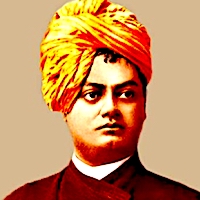
Swami Vivekananda ʃami bibekanɔnd̪o
1863 – 1902 CE
"The maker of modern India"
Patriotic saint and “maker of modern India,” main Ramakrishna disciple, introducer of Vedanta and Yoga into the Western world, important influence on the revival of Hinduism, and force for nationalism in colonial India; Vivekananda taught that all beings are part of a divine self and so serving mankind is the same as serving god. Teaching that all religions and sects within Hinduism are only different paths to the same goal, he saved Hinduism from the irrelevancy of only following antiquated traditions. Gandhi praised him for “cutting down the dead wood of tradition,” Rajaji crediting him for “saving Hinduism,” and Sri Aurobindo said that he “awakened India spiritually.” An inspiration for Aldous Huxley, Nikola Tesla, and Christopher Isherwood; he motivated the establishment of Indian science institutes and universities.
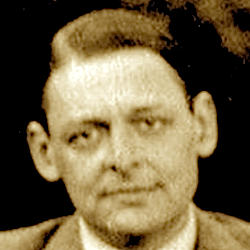
T. S. Eliot
1888 – 1965 CE
T.S. Eliot, Thomas Stearns Eliot (1888-1965)
Literary and social critic, "one of the twentieth century's major poets,” publisher and playwright, Nobel Prize winner and “the poet of the modern symbolist-Metaphysical tradition;” T.S. Eliot wrote some of the best known English poems. Reversing the more common trend, he was more respected during his lifetime, less so after but still almost universally acknowledged as a pioneering and major influence on modern poetry. He emphasized insight and poetry arising from the unconscious mind. Often accused of anti-Semitism, he described himself as a "classicist in literature, royalist in politics, and anglo-catholic in religion".
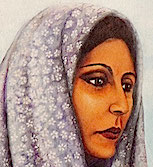
Táhirih طاهره (Fatimah Baraghani, "The Pure One")
1814 – 1852 CE
A genius-deep and curious mind living in a culture and with a husband who didn’t think women should read, be seen, or think for themselves; beautiful, educated, and from one of the most prominent families of her time, Tahirih is said to be the first woman to unveil and question Islamic political and religious orthodoxy which led to her imprisonment and execution. She rose above immense obstacles and became a famous poet, philosopher, and religious leader inspiring and organizing women to reject their oppression. “The first woman suffrage martyr,” her poems are still popular and her influence on Bábí, Bahá’í, and women’s rights are immense and continuing to this day.
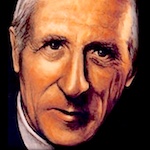
Teilhard de Chardin
1881 – 1955 CE
Philosopher, geologist, Jesuit priest and paleontologist, Chardin traveled extensively across China and helped discover Peking Man. Although frequently condemned and censored by church officials and his writings banned, later popes, cardinals and theologians praised him and his ideas. Similarly reviled and revered by scientists and described as everything from a “charlatan” to “one of the century’s most prophetic thinkers,” his life manifested the cutting edge of consciousness evolution he described so clearly.

Théodore Faullain de Banville
1823 – 1891 CE
French poet, writer, and major influence on the Symbolist movement.
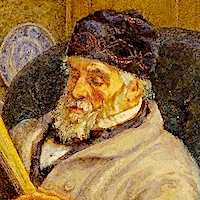
Thomas Carlyle
1795 – 1881 CE
"Great Man” theory of history creator
Historian, philosopher, translator, mathematician, and one of his era’s most influential social commentators; Carlyle developed the “Great Man” theory of history. He postulated and described how the world’s great changes were all caused by the decisions and actions of a very small and elite group of prime movers. He emphasized the essence of heroism as a response to intense challenge and difficulty rather than inherent qualities. In later life, these ego-based theories unfortunately led to a critique of democracy, justifications for fascism, nostalgia for slavery, and support for repressive government. His work in mathematics led to innovative methods still used today and one of his books on the French Revolution inspired Dickens' novel, A Tale of Two Cities.
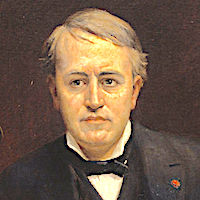
Thomas Edison
1847 – 1931 CE
America's greatest inventor
“America's greatest inventor,” businessman, and entrepreneur; Edison set up the world’s first industrial research laboratory, first film studio, and held in his name over 1,100 US and foreign patents in many fields including electric power, communications, and motion pictures (his film studio made almost 1,200 films.). Some of his most influential inventions include the light bulb, phonograph, motion picture camera, the fluoroscope, the tasimeter, and the nickel-iron-battery. Henry Ford was a neighbor and employee who Edison helped with his business ventures. A victim of nepotistic seductions, Edison had to take his son to court for using their family name to promote scams, snake-oil products, and fraudulent ventures. He joined Blavatsky’s Theosophical Society, became a strict vegetarian, and promoted nonviolence.
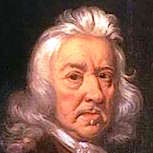
Thomas Hobbes
1588 – 1679 CE
Secretary, student, friend to Francis Bacon; Hobbes established the foundation for most modern political philosophy. Formulating social contract theory, he promoted individual rights, natural equality, government based on the will of the people, only representative government as legitimate, and the freedom to do anything that laws don’t forbid. He described human nature as “self-interested cooperation” and introduced mathematical reasoning to the philosophy of science. Though called “the father of totalitarianism” and fixated on peace and order, his radical shift from religion and belief to applying science for understanding human nature helped undermine that same “order” creating more personal, political freedom.
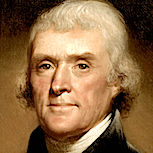
Thomas Jefferson
1743 – 1826 CE
American founding father, main author of the Declaration of Independence, Virginia governor, first Secretary of State, US Vice President and one of America’s greatest presidents; Jefferson negotiated the Louisiana Purchase almost doubling the size of the country and wrote a book considered the most important American one written before 1800. President of the American Philosophical Society, mathematician, architect/designer of the Virginia State Capitol and Monticello, University of Virginia founder, avid horticulturalist and farmer, naturalist deeply interested in birds, inventor of an important new plow design as well as the swivel chair, and speaker of more than 8 languages; he exemplified the ideal of a true Renaissance Man. Although he owned hundreds of slaves, as a young lawyer he defended freedom-seeking slaves, signed an act prohibiting their importation in 1807, and is believed to have secretly “married” and had children with a black woman, Sally Hemings. Always in debt with cash flow problems from continual experiments and pushing on the boundaries of the possible, his creative spirit never died.
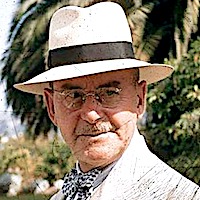
Thomas Mann
1875 – 1955 CE
Deep, psychologically insightful author
Novelist, social critic, philanthropist, and 1929 Nobel Prize winner; Thomas Mann became one of the most effective German refugees writing in opposition to Hitler and the Nazi regime in Germany. He became an American citizen and produced many anti-Nazi radio broadcasts in German for the BBC; but, in spite of that, became a target for McCarthyism, had to testify before the House Un-American Activities Committee, and was forced to stop his work for the Library of Congress, and return to Europe. His commentaries on American culture of the time being similar to "how it started in Germany." Mann carried on the philosophical tradition of Goethe, Nietzsche and Schopenhauer; passed it on to writers like Joseph Heller, Yukio Mishima, and Hermann Hesse.
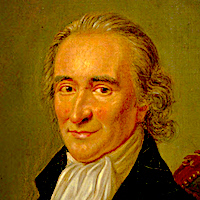
Thomas Paine
1737 – 1809 CE
Fired from his government post in England because of his efforts for the working class and running to escape debtor’s prison, Paine brought a letter of recommendation from Benjamin Franklin to the new world and quickly established himself as a voice for freedom, liberty, women’s rights, prison reform, Newtonian science, and anti-slavery efforts. From a poor family growing up during a time when thousands of small farmers were becoming serf-like factory workers and the gap between super rich and super poor was becoming extreme; he educated himself, became a Founding Father, one of the most essential influences on the Revolutionary War, gave the United States of America it’s name, and wrote the rough draft that Jefferson used to craft the Declaration of Independence. John Adams said that, “Without the pen of Paine, the sword of Washington would have been wielded in vain.” The first to lobby for a Social Security system, his influence extended from American to England, France, South America, and all countries seeking freedom, social justice, and moral equality.
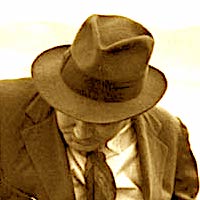
Thomas Wolfe (Thomas Clayton Wolfe)
1900 – 1938 CE
Father of autobiographical fiction
North Carolina's most famous writer, father of innovative autobiographical fiction, novelist, playwright, and major influence on the Beat Generation writers; Wolfe lived a short but creatively influential life. His famous novel, Look Homeward, Angel included more than 200 thinly disguised references to family and friends in his hometown of Asheville, NC. Their outrage to this book basically exiled him for 8+ years but their equally negative response to his next book was caused by them not being included. William Faulkner called him the greatest talent of their generation, Jack Kerouac idolized him, Ray Bradbury was so impressed he included Wolfe as a character in one of his books, Prince of Tides author Pat Conroy credited him with sparking his writing career, and Hunter S. Thompson thanked him for his famous phrase "Fear and Loathing".
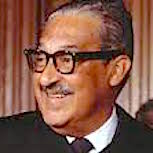
Thurgood Marshall
1908 – 1993 CE
Thurgood Marshall (1908 – 1993) Grandson of a slave, refused admission to a law school because he was black, and first African-American Supreme Court Justice; Marshall was instrumental in the Brown v. Board case that desegregated public schools, helped the United Nations draft the constitutions of Ghana and Tanzania, and - before he became Justice - won more Supreme Court cases than anyone in history. He ruled in favor of Roe v. Wade abortion rights, worked to eliminate the death penalty, and probably more than Malcolm X and Martin Luther King made the Civil Rights Movement successful. He remained a tireless and highly effective voice for human rights, individual freedom, the poor, downtrodden and for all people
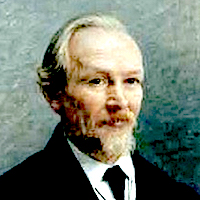
Vasily Vasilievich Rozanov Васи́лий Васи́льевич Рóзанов
1856 – 1919 CE
One of the most controversial Russian writers and philosophers, Dostoyevsky's "Underground Man,” and master of paradox; Rozanov blended criticizing the Russian church to fervent praise, from glorifying Judaism to anti-Semitism, from accepting the naturalness of homosexuality and sex in general to condemning homosexuals and accepting anti-sex Christian views. His open-minded and controversial free thought put him at odds with both the conservative Tsarist government as well as radicals like Lenin. His writings were suppressed and he died by starvation in a monastery shortly after the Russian revolution. He believed politics is obsolete and that "God doesn't want politics any more.” Little know outside Russia and only recently there, he was a deep influence and inspiration for many Russian intellectuals, writers, and philosophers and is now becoming popular with some western scholars.
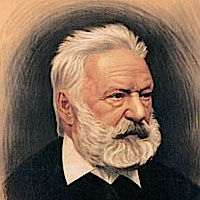
Victor Hugo
1802 – 1885 CE
Literary pioneer, poet, and social justice provocateur
Romantic literature pioneer, poet, artist, and one of the greatest French writers; Victor Hugo’s work influenced most of the social and political issues of his time. His literary success opened doors into the political world and he became more and more involved in politics. He campaigned against capital punishment and social injustice, for more freedom of the press, free education for children, universal voting rights, and a “United States of Europe.” While his books helped create important cultural and social shifts, his political efforts led to exile, a condemnation from Napoleon III, and death threats from mobs outside his house. His political work on ending the death penalty, however, did lead to its abolition in Geneva, Portugal, and Colombia. Two plus million people walked in his funeral procession and today almost all French cities have named streets after him.
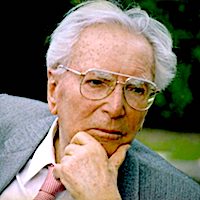
Viktor Frankl
1905 – 1997 CE
Brave and insightful concentration camp survivor
A survivor of multiple Nazi concentration camps that claimed the lives of his mother, wife, and brother; Frankl developed a psychological approach—logotherapy—based on vivid personal experiences rather than hypothetical theories. He watched how people’s ability to survive in the most horrendous situations correlated with the degree of meaningfulness they could discover as well as seeing how this mirrored his own ability to live through and survive this almost unimaginable suffering. Before his concentration camp experiences he had already focused his work on depression and suicide which successfully prevented even one Viennese student suicide in 1931. After the war, he became an important inspiration for the humanistic psychology movement, wrote 39 books translated into 49 languages, received 29 honorary Ph.D. degrees and taught in locations all over the world. He convincingly debunked the still prevalent deception of finding happiness in relaxation, vacations, and retirement; and pointed instead toward the struggles of meeting challenges, working toward goals, and—most importantly—projects that make the world a better place.
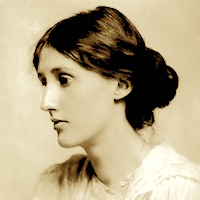
Virginia Woolf
1882 – 1941 CE
Stream of consciousness writing pioneer, one of the most influential 20th century writers, “the major lyrical novelist in the English language,” and “feminist inspiration;” Woolf struggled with mental illness all her life and yet wrote some of the era’s best short stories and novels, some translated into 50 languages. A deep influence on world culture, she promoted universal education, intellectual freedom, class equality, and feminism. Still popular today, the National Portrait Gallery in London sells more of her postcards than of any other. With a deep understanding of inner, psychological struggle, her characters expose the sacred within the ordinary, the profound in the midst of the commonplace.
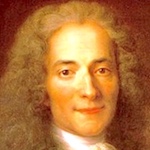
Voltaire, François-Marie Arouet
1694 – 1778 CE
Nemesis to tyrants and fanatics of all styles, powerful fighter for civil rights, separation of church and state, freedom of speech and religion; Voltaire drank up to 72 cups of coffee a day and wrote more than 2,000 books and pamphlets. Admiring Confucian ethics and political theory, his writings inspired the founders of America, the best thinkers of his time, numerous kings, queens and world leaders, millions of people in every generation since. To a large extent we owe to his influence much of the freedoms in the world today; the humane treatment of the insane, sick, and criminal; the number of libraries, schools, and universities for common people. Historian Will Durant wrote, “When we cease to honor Voltaire, we shall be unworthy of freedom.”
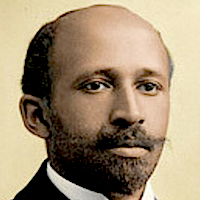
W. E. B. Du Bois
1868 – 1963 CE
W. E. B. Du Bois, William Edward Burghardt (1868 – 1963)
First African American to earn a doctorate (Harvard), co-founder of the NAACP, historian, peace activist,sociologist, and civil rights activist for minorities world-wide; Du Bois led the Niagara Movement which insisted on equal rights rather than accepting Southern white proposals that traded Black political freedoms for economic and educational opportunities. He protested against the commonly accepted lynchings of his time, wrote a foundational set of African-American essays, and one of the first scientific works in the new field of sociology. Blaming capitalism for causing racism, he proposed and promoted many issues that became law in the US Civil Rights Act, criticized American churches for being primary supports of discrimination, and worked hard for nuclear disarmament.
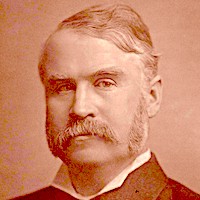
W. S. Gilbert
1836 – 1911 CE
Innovative, influential, inspiring dramatist
Poet, illustrator, and dramatist; Gilbert wrote 14 comic operas with music written by Sir Arthur Sullivan and over 75 plays—many still being performed c. 150 years after they were written. Ridiculing party politics, nepotism, patriotism, and the British class system; they may have not gone out of style because they were never in any kind of conventional style to start. The innovative creativity in their performances came in part from their ability to finance the productions themselves rather than having to rely on conventional funding that required artistic restraints and conformance to traditional methods. Gruff and quick-tempered on the outside, warm and a loyal friend when close, Gilbert set new styles and became an important influence on most playwrights that came after him especially in the line of Oscar Wilde and George Bernard Shaw.
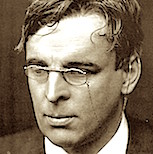
W.B. (William Butler) Yeats
1865 – 1939 CE
Symbolist poet, Irish Senator, and icon of 20th-century literature; Yeats won the Nobel Prize for literature in 1923 which enabled him for the first time to pay off his and his father’s debts. Though dabbling in the occult and automatic writing in his youth, he became a standard-bearer for Irish cultural independence and nationalism. Challenging the Irish Catholic political dominance, he championed divorce rights and confronted religious leaders but later supported aristocratic over democratic rule. Called by Ezra Pound "the only poet worthy of serious study,” his personal evolution of Hindu-based spiritualism helped inspire some of the "most potent images in twentieth-century poetry.”
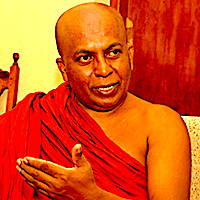
Walpola Rahula Thero
1907 – 1997 CE
“Supreme Master of Buddhist Scriptures”
History professor, Ph.D. in philosophy, active socialist, and first Buddhist monk to hold a chair in a western university; Walpola both brought a more clear conception of Buddhism to the Western world and practical kind of Western politics to Sri Lanka. Given the title, “Supreme Master of Buddhist Scriptures,” he wrote extensively and taught at many universities including UCLA, Swarthmore College, and Western University. He encouraged monks to not only study and practice Buddhism but also to get involved in the political process as a way to translate meditative awareness into a practical influence on society and culture.
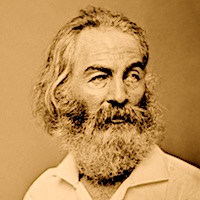
Walt Whitman
1819 – 1892 CE
Premier "poet of democracy" and model for Dracula
“Father of free verse,” one of the most influential American poets, humanist, journalist, Civil War volunteer nurse; Whitman blended realism and transcendentalism and became known as the first "poet of democracy.” His most famous work, Leaves of Grass, was called everything from "trashy, profane & obscene, the author a pretentious ass" to a work more central to American culture than Melville's Moby-Dick, Twain's Huckleberry Finn, and Emerson's The Conduct of Life. Vociferously criticized for being obscene with sexuality themes, it was admired by Thoreau, Ralph Waldo Emerson, Amos Bronson Alcott, and Oscar Wilde. Though biographers assert that Whitman was gay, he always denied it and claimed to have 6 illegitimate children. In a contrast between his poetry and personal views, he promoted equality and true democracy in the former, status quo views of nationalism and racism in the latter. His poetic and vagabond lifestyle inspired the Beat movement, Allen Ginsberg, Jack Kerouac, Gary Snyder, Lawrence Ferlinghetti, Bob Dylan, and Bram Stoker who used him as the model for his character, Dracula.
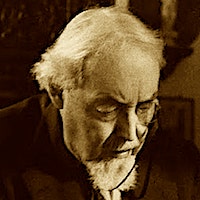
Wei Wu Wei "O.O.O.", Terence James Stannus Gray
1895 – 1986 CE
Skillful translator from Taoist insight into modern, English language
Wei Wu Wei's cousin founded the UK Royal Ballet while he created the Cambridge Festival Theater, produced more than 100 plays, wrote books on ancient Egyptian history and culture, raised his family's racehorses, won 11 major races, and married a Georgian princess and a Russian noblewoman. His wealth, success, and fame, however, left him empty and without meaning. He took on the pseudonym, Wei Wei Wei, and wrote 8 books and numerous articles that brought insight and ancient wisdom into modern language. Befriending Lama Anagarika Govinda, Dr. Hubert Benoit, John Blofeld, and Dr. D. T. Suzuki; he helped translate and bring the insights of Taoist and Buddhist understanding into modern, cultural influence.
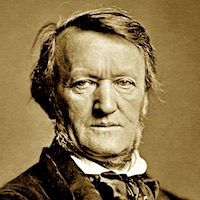
Wilhelm Richard Wagner
1813 – 1883 CE
"Music-drama" composer, revolutionary of opera, prolific writer, and forefather of psychoanalysis; Wagner blended with his music a flare for the poetic, philosophical, visual, and dramatic arts. Although famous and greatly respected, most his personal life filled with poverty, political exile, and dramatically painful love affairs. His research and insight into psychoanalytical themes like dream interpretation, the Oedipus myth, and the relationship between anxiety and sex predated Freud's birth. He became a major influence on luminaries like W. H. Auden, Thomas Mann, Marcel Proust, James Joyce, and T. S. Eliot.
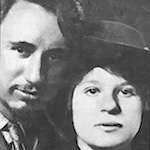
Will (and Ariel) Durant
1885 – 1981 CE
Much more than ivory-tower, intellectual academics, Will and Ariel Durant worked to put the lessons of history into practical lessons useful for average people. He worked for women’s right to vote, equal wages, better working conditions for American labor, and wrote a “Declaration of Interdependence,” that was read into the Congressional Record and started a movement against racial intolerance 10 years before the Civil Rights Movement. Writing “the most successful historiographical series in history,” and awarded a Pulitzer Prize for literature as well as the Presidential Medal of Freedom, he critiqued the West’s “fatal error of perspective:” Eurocentrism, intolerance and provincialism.

Will Durant
1885 – 1981 CE
Philosophy apostle and popularizer of history's lessons
Apostle for philosophy, Catholic priest vocation drop-out, socialist reporter, librarian, professor who quit so he could marry his much younger 15 year-old student who became his 68-year married wife; Durant became not just an ivory-tower intellectual and academic but someone who put the lessons of history into practical lessons useful for average people. He worked for women’s right to vote, equal wages, better working conditions for American labor, and wrote a "Declaration of Interdependence,” that was read into the Congressional Record and started a movement against racial intolerance 10 years before the Civil Rights Movement. Writing “the most successful historiographical series in history,” and awarded a Pulitzer Prize for literature as well as the Presidential Medal of Freedom, he critiqued the West’s “fatal error of perspective:” Eurocentrism, intolerance and provincialism.

Will Rogers
1879 – 1935 CE
One of the most famous and popular, internationally recognized Native American personalities, "Oklahoma's Favorite Son,” humorist, radio and movie star, columnist, and penetrating social commentator; Will Rogers made 71 movies, traveled around the world 3 times, and wrote more than 4000 national newspaper articles. The highest paid movie star of his time and most respected political commentator, he came from a small farm in Cherokee Nation Indian Territory and set an example for Native Americans integrating into White culture and becoming successful without selling out and abandoning their heritage. Wise, kind, and humorous; he teased politicians, gangsters, and ordinary people’s confused convictions influencing them all into better ways.
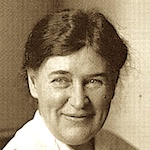
Willa Cather
1873 – 1948 CE
Modern day Lao Tzu
Wonderful novelist with a flare for evoking a deep appreciation for nature and the natural world, Willa Cather championed the values of self-sufficiency, independence, and harmony with nature. Nostalgic for the time when most people lived on farms, she used “the rising and setting of the sun” as a major theme and honored the struggle of exiled immigrants. Infusing meaningfulness and sacred outlook into simple, daily tasks she unknowingly continued the Zen spirit and understanding Lao Tzu wrote about so much longer before.

William Blake
1757 – 1827 CE
A poet, painter, and songwriter mainly unrecognized during his life and at the time considered mad, Blake is now called “far and away the greatest artist Britain has ever produced” and “a seminal figure in the history of poetry.” Not fully appreciated until more than 200 years after he died, he’s now considered one of the most powerful impacts on twentieth century culture with an enormous influence on Carl Jung, Aldous Huxley, poets like William Butler Yeats and Allen Ginsberg, songwriters like Bob Dylan and Van Morrison. The origin of graphic novels and fantasy art trace back to Blake.

William Carlos Williams
1883 – 1963 CE
Life-long physician, pediatrician, friend to Ezra Pound; Williams worked as a doctor by day, as a writer by night, merged poetry with painting, imagery with modernism. His literary experimentalism working to create a new art form was so radical it was even criticized by radical experimentalists. Overshadowed by the timing and work of T.S. Eliot, Williams abandoned and criticized this intellectual style favoring instead American colloquial English writing an epic poem of place about Paterson, NJ. Mentor to the Beat Poets and in particular Allen Ginsberg, he won the first National Book Award for Poetry, the Gold Medal for Poetry, and posthumously the Pulitzer Prize.
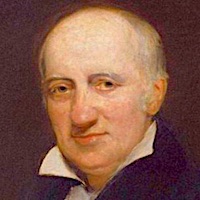
William Godwin
1756 – 1836 CE
Provocative and influential social, political, and literary critic
Mary Shelley’s father, married to pioneering feminist Mary Wollstonecraft, journalist, philosopher, publisher, translator, and author; Godwin became the first to promote utilitarianism and modern anarchism. He attacked aristocratic privilege, advocated the abolition of marriage, wrote numerous novels, and became a major influence on British literature and culture. His views on progress, life extension, and human perfectibility gave inspiration for his daughter’s novel, Frankenstein. He opposed Malthus, became a literary influence on Dickens and Poe, a political influence on Peter Kropotkin, libertarianism, and communism.
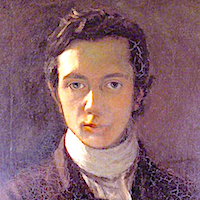
William Hazlitt
1778 – 1830 CE
One of the English languages best art and literature critics of all time
The most influential art critic of his age, considered the best essayist in the English language, and one of the English language’s greatest critics; Hazlitt befriended and helped Coleridge, Wordsworth, Keats, Jeremy Bentham, Stendhal and many of the 19th century’s most important writers. The keen psychological insight that makes him still relevant today however, didn’t go over very well in his own time. Both Wordsworth and Coleridge retaliated to his criticism by spreading negative rumors. Also a poet, journalist, and philosopher; he was devoted to his work but seldom popular enough to earn sufficient income, he had to depend on his wife’s independent wealth. When she left him, he continued his writing but sunk into poverty, illness, depression, and was “excommunicated from all decent society.”
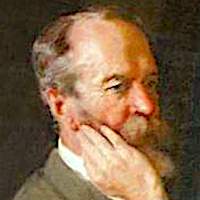
William James
1842 – 1910 CE
"Father of American psychology”
"Father of American psychology,” and one of the most significant American philosophers; William James established the philosophical school called pragmatism, functional psychology, and radical empiricism. His wealthy father wanted William and his brother Henry to be educated in a way free from dogma and goal-oriented career study. This led William into the fields of chemistry, physiology, anatomy, a medical degree, and a Harvard professorship where he set up the first American experimental psychology laboratory and became the first to offer a U. S. psychology course. Suffering through severe mental depression and serious health issues, he turned to philosophy and an evolved understanding of the self as a spiritual essence, a continual stream of consciousness much deeper and more meaningful than our material and social identifications.
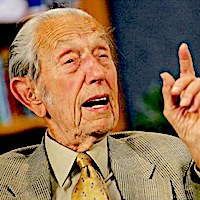
William Montgomery Watt
1909 – 2006 CE
"The Last Orientalist"
One of the most respected non-Muslim commentators on Islam, historian, Anglican priest and professor; Watt wrote classic biographies about Muhammad. He thought Muhammad was like an Old Testament prophet and emphasized his efforts to achieve more social justice. His books are criticized by Muslims who have a hard time appreciating Christianity and by Christians who have trouble appreciating Isla

William Wordsworth
1770 – 1850 CE
Orphaned at an early age, connected with the common man while wandering through Europe on foot, caught up in both the ups and downs of the French Revolution, and Britain's only Poet Laureate who wrote no official verse; Wordsworth defined poetry as "the spontaneous overflow of powerful feelings” and along with Samuel Coleridge, used poems based in common language to help launch the Romantic Age of literature. A student of John "Walking" Stewart who blended yoga and Eastern wisdom from India with western pantheism, he published some of the most influential poetry in Western literature.
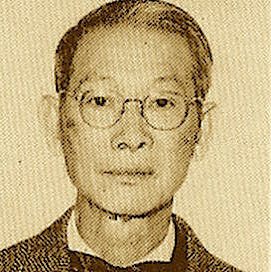
Wing-tsit Chan 陳榮捷
1901 – 1994 CE
Chinese academic, scholar and professor; Chan exemplifies the traditional, “objective” scholastic and led his life strictly in that mold getting a Ph.D. from Harvard and teaching in colleges the rest of his life while translating and writing hundreds of barely-read scholarly books and papers. An exception was his 1963 book, A Source Book in Chinese Philosophy that became an influential but dry source for the new academic field of Asian studies. Though probably not that full of understanding in itself, it exposed Westerners to quotations, names, and ideas with the potential to open doors of insight and wisdom.
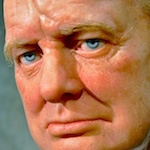
Winston Churchill
1874 – 1965 CE
At the top of world politics for 50 years and one of the most influential leaders in all history, Churchill was also an accomplished artist, an author who won the Nobel Prize in Literature, and amateur bricklayer who bred butterflies. A Cassandra of his time, he very early and almost alone warned of Hitler and Nazi Germany, Stalin and the Soviet threat, and Gandhi’s approach to Indian Independence leading to the Islamic consequences we’re suffering today. Overcoming a serious speech impediment, his radio broadcasts and communications held Britain together when they were standing almost alone against Hitler, helped bring vital US support, and win WW II.
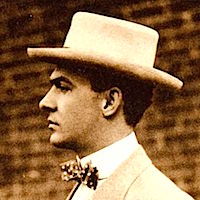
Witter Bynner (Emanuel Morgan)
1881 – 1968 CE
Translator, poet, and scholar; Bynner traveled and lived in China, intensely studied Chinese culture, and worked for 11 years translating T'ang Dynasty poems. A student of George Santayana at Harvard, he was a conscientious objector during World War I, and championed the women’s suffrage movement. Writing more than 39 books himself, he also actively supported poets and artists becoming friends with D.H. Lawrence, Georgia O'Keeffe, Carl Sandburg, Ansel Adams, Willa Cather, Igor Stravinsky, Robert Frost, W. H. Auden, and Aldous Huxley. Sponsoring Kahlil Gibran, he helped him publish The Prophet.
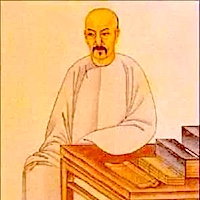
Zhang Xuecheng 章学诚 章学诚 (Chang Hsüeh-ch'eng)
1738 – 1801 CE
A famous historian, philosopher, and writer who was mainly unknown during his lifetime dying in poverty with few friends; Zhang Xuecheng's fame only began almost 100 years after he died. A revolutionary thinker, he crossed the status quo view that Confucianism is based on timeless principles and described it as an evolving set of realizations deepening as it faced and explained contemporary changes. He condemned self-serving partisanship, encouraged diversity, and individuation. A true advocate for the words over the sense, he emphasized the need to transcend language rather than becoming a slave to concepts. His focus on China's difficult struggle to blend the strong Taoist, Buddhist, and Confucian traditions into what's called now neo-Confucianism; has a powerful relevance to our own time of intense cultural, political, and religious amalgamation.
Quotes (1 Quotes)

“These peoples are superior to all other Asiatics in antiquity, art, intellect, wisdom, policy, and in their taste for philosophy... they dispute the palm, in these matters, with the most enlightened peoples of Europe. [1750]”
Comments: Click to comment
Chinese Eras
Xia Dynasty 夏 (2100 – 1600 BCE)
Shang Dynasty 殷代 (1600 – 1046 BCE)
Western Zhou 西周 (1046 – 771 BCE)
Eastern Zhou 東周 (770 – 256 BCE)
Spring and Autumn period 春秋时代 (770 – 476 BCE)
Warring States period 春秋时代 (476 – 221 BCE)
Qin Dynasty 秦朝 (221 – 206 BCE)
Three Kingdoms 三國時代 (220 – 280 CE)
Southern and Northern 南北朝 (420 – 589 CE)
Tang Dynasty 唐朝 (618 – 907 CE)
5 Dynasties 10 Kingdoms (907 – 960 CE)
5 Kingdom of Dali 大理国 (937 – 1253 CE)
Western Xia 西夏 (1038 – 1227 CE)
Southern Song (1127 – 1279 CE)
Comments (0)